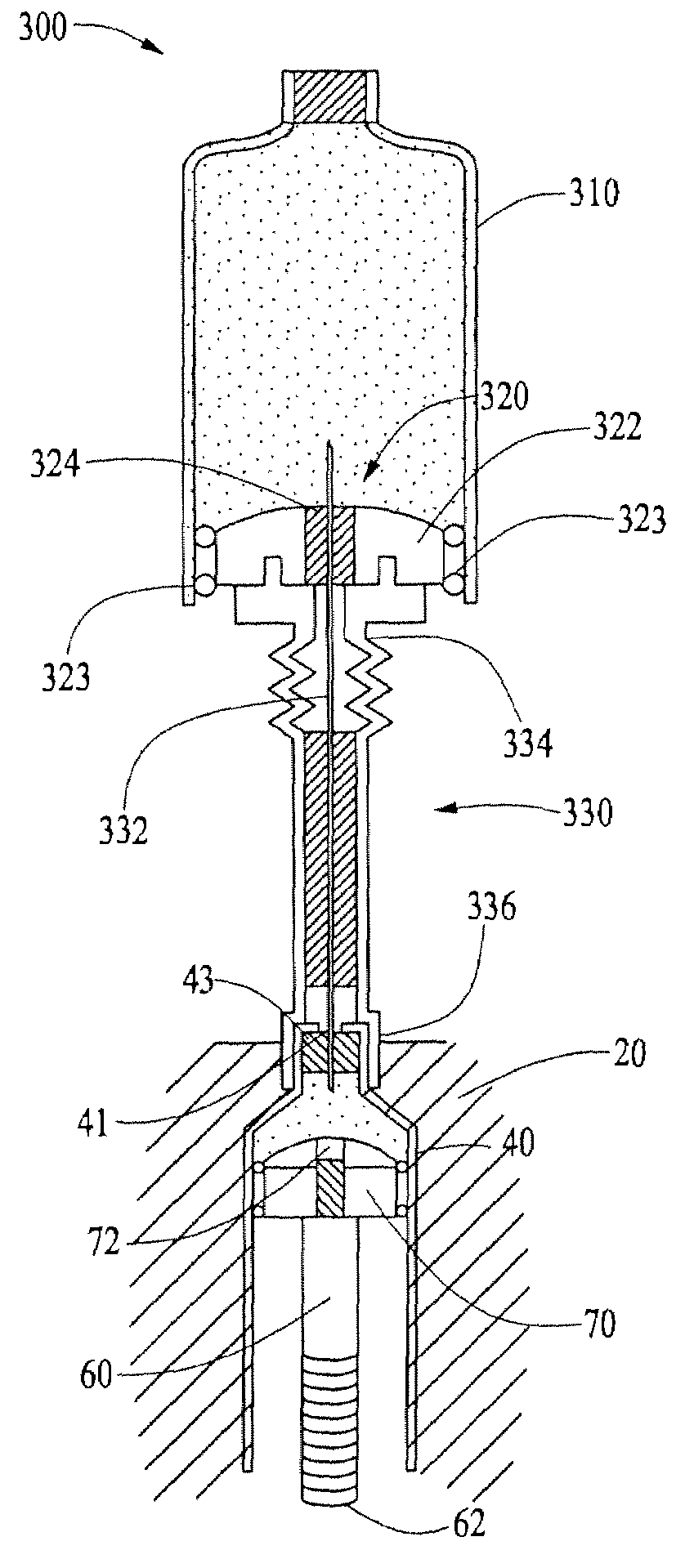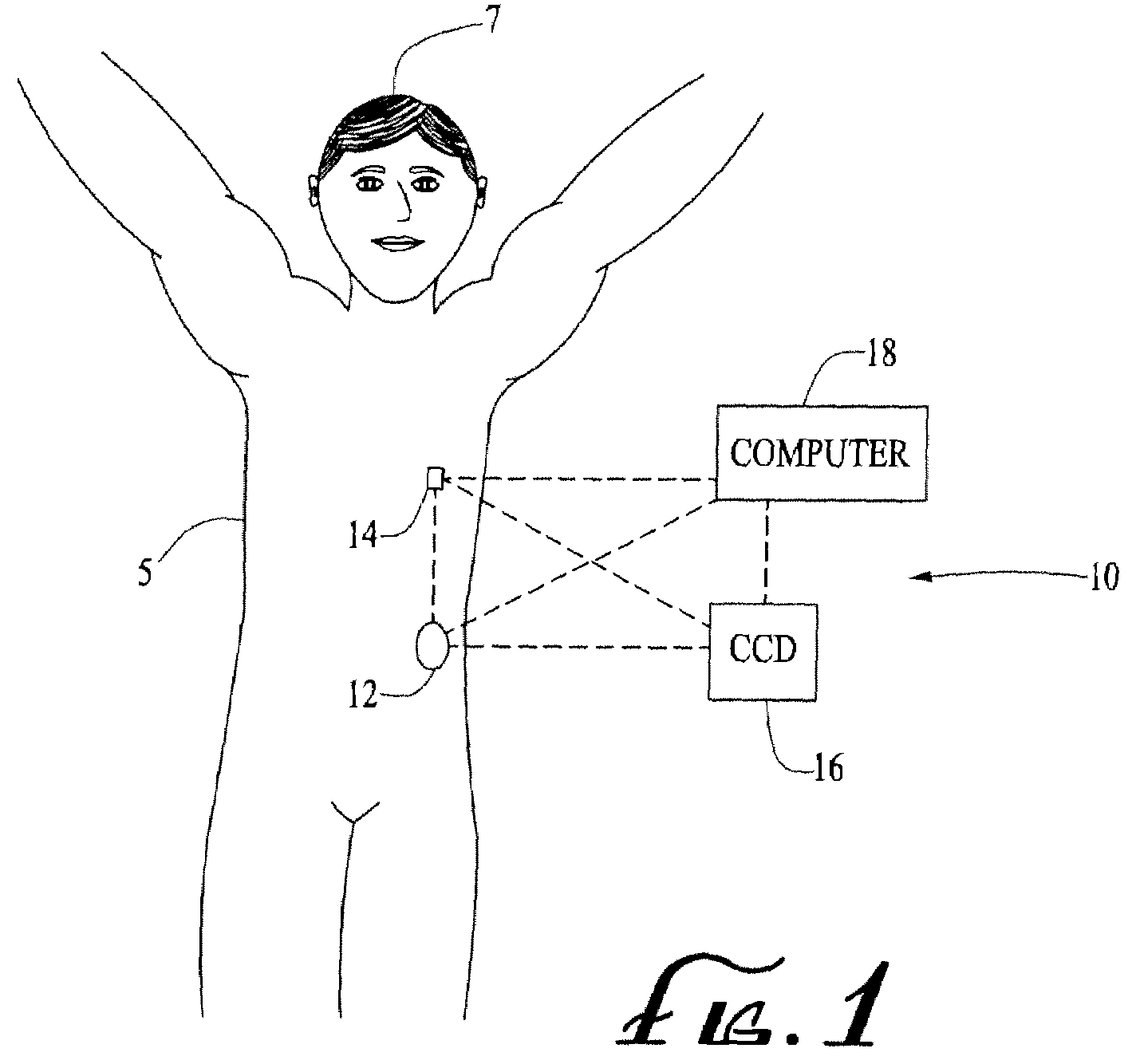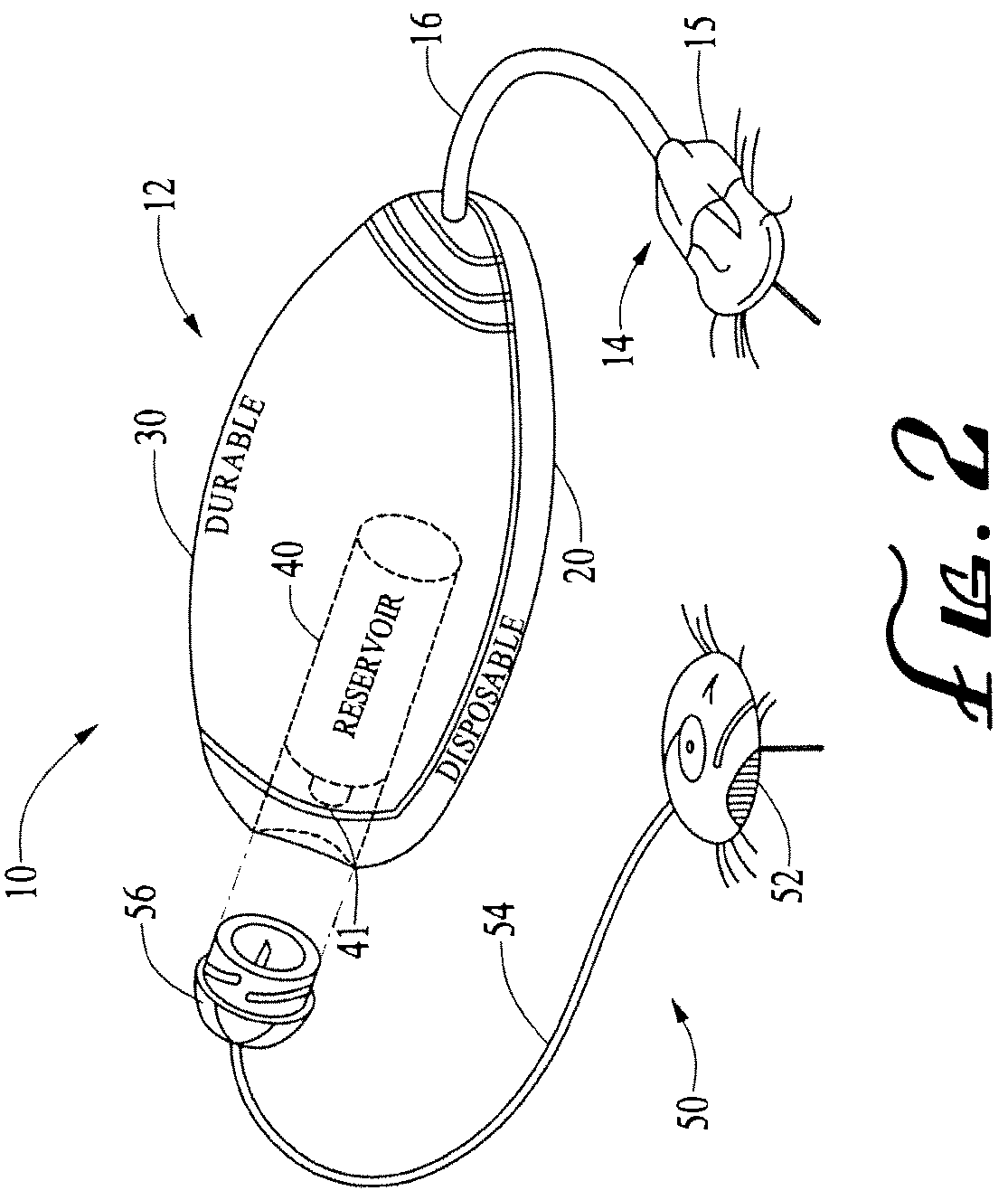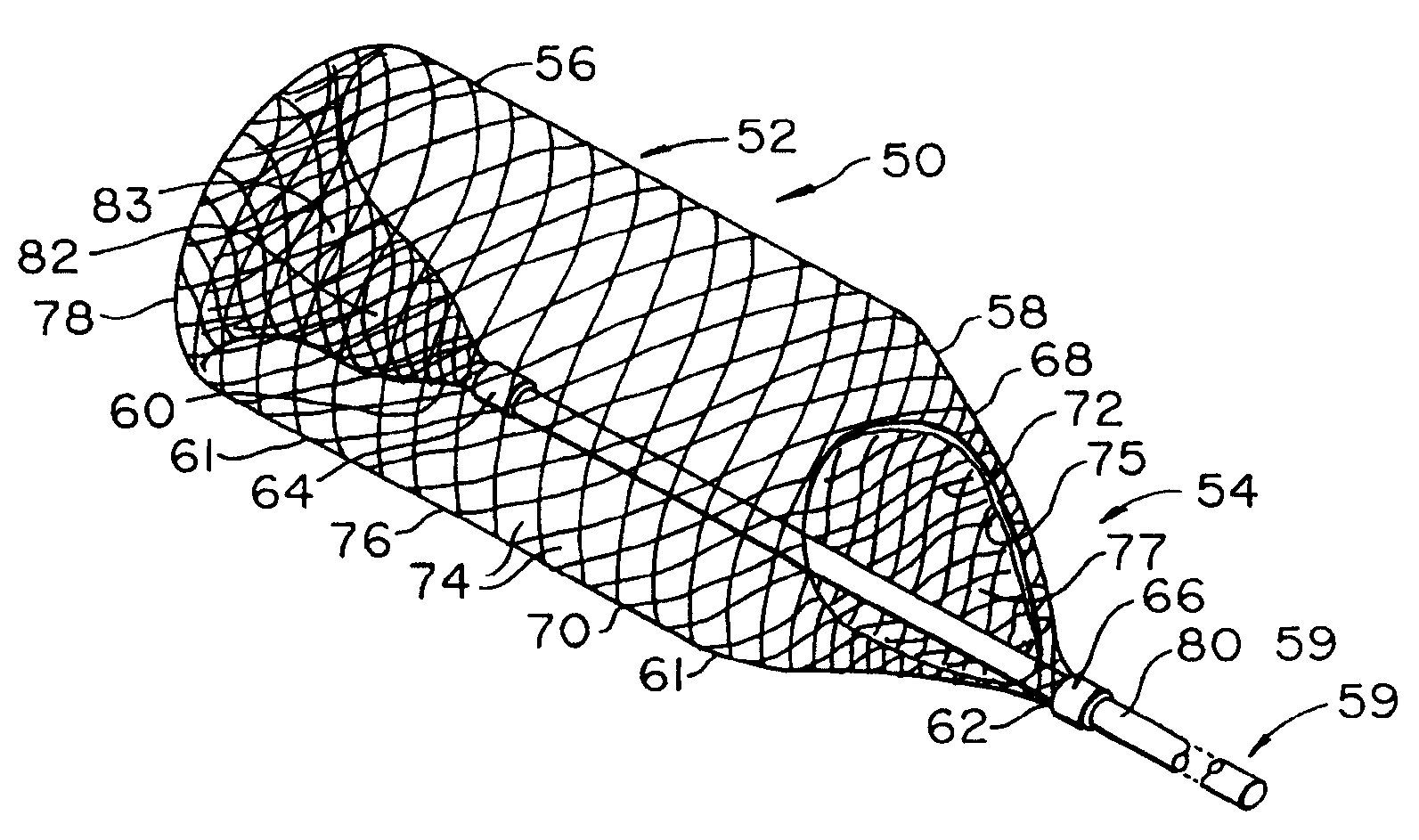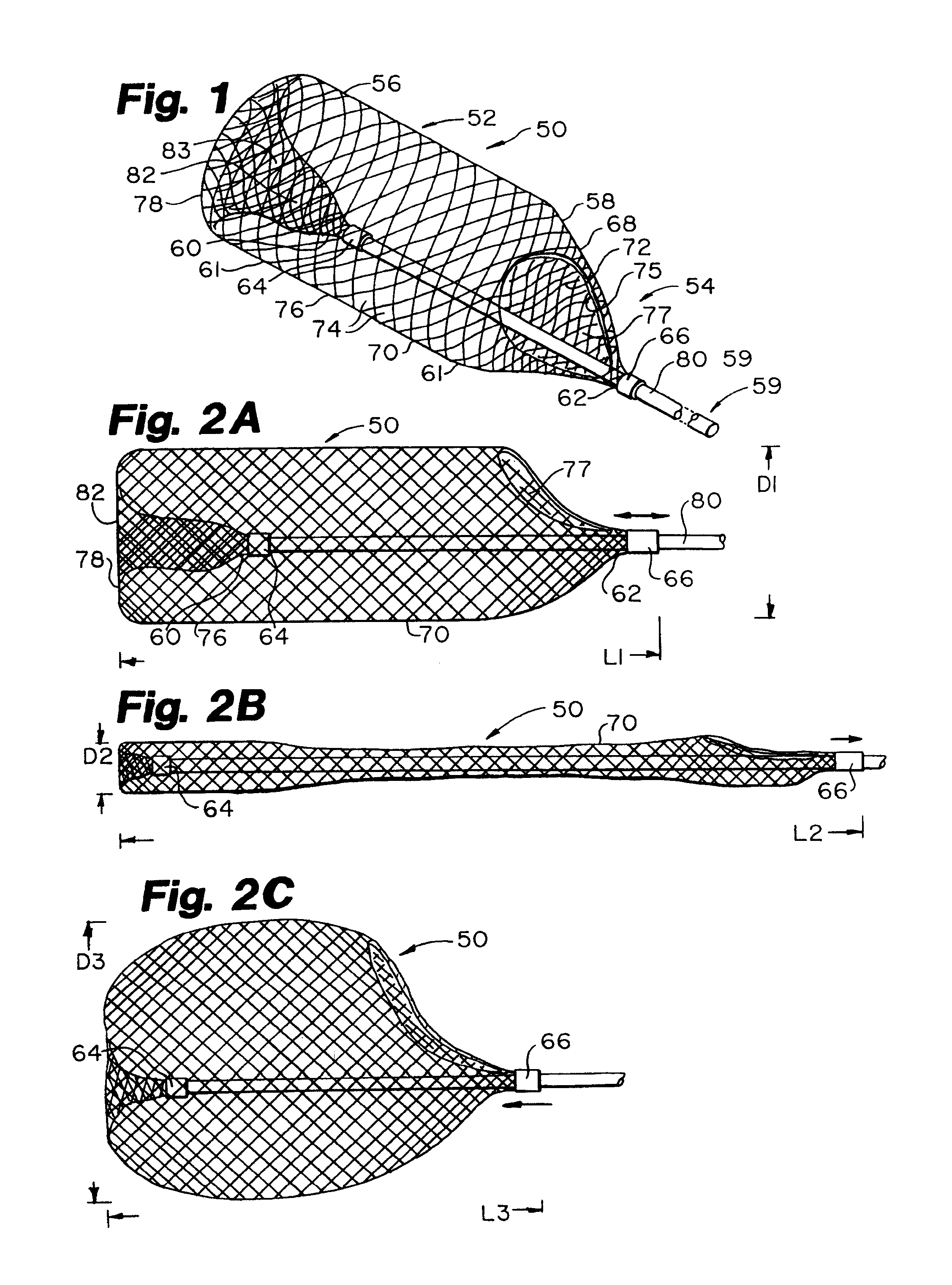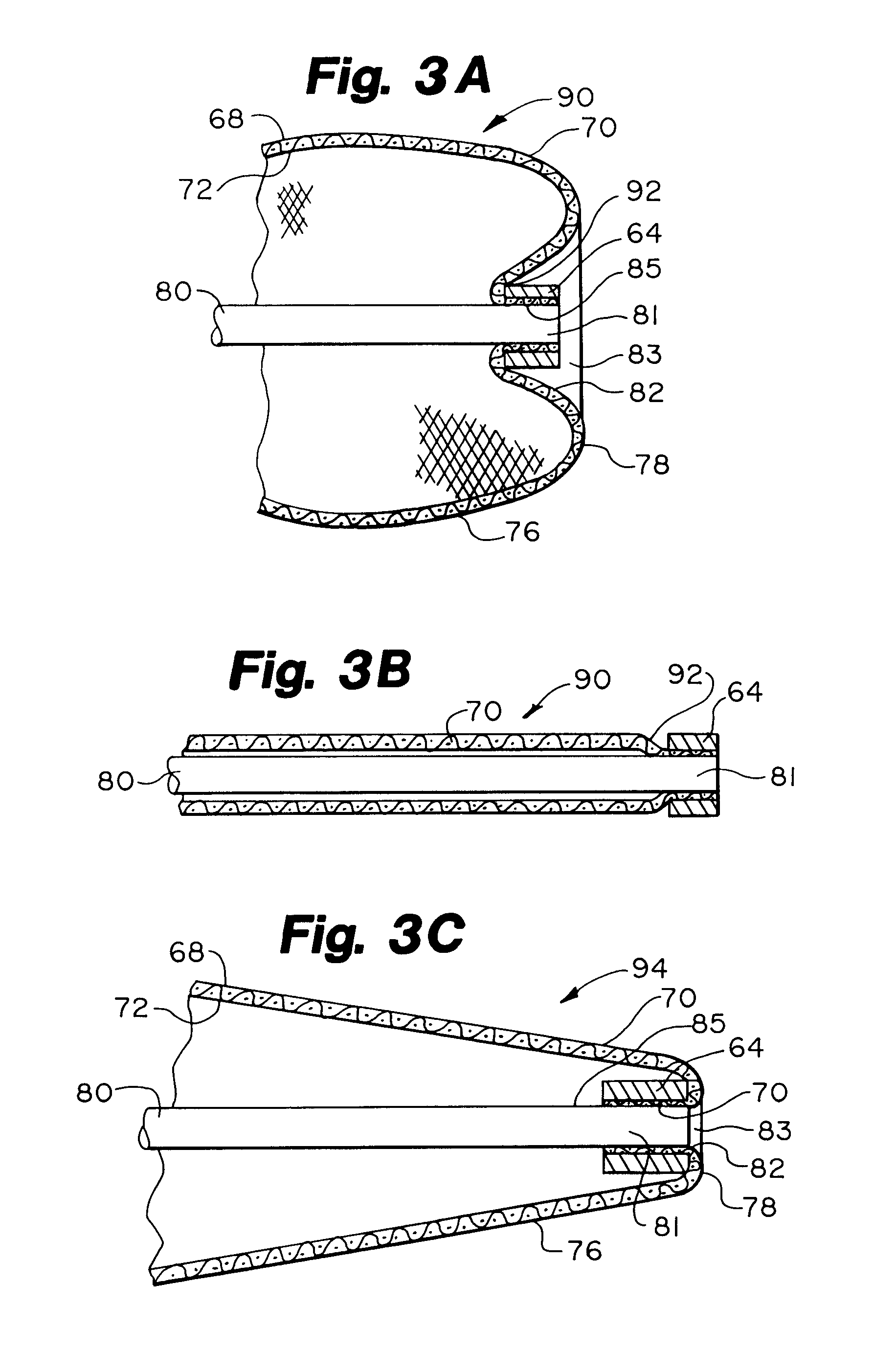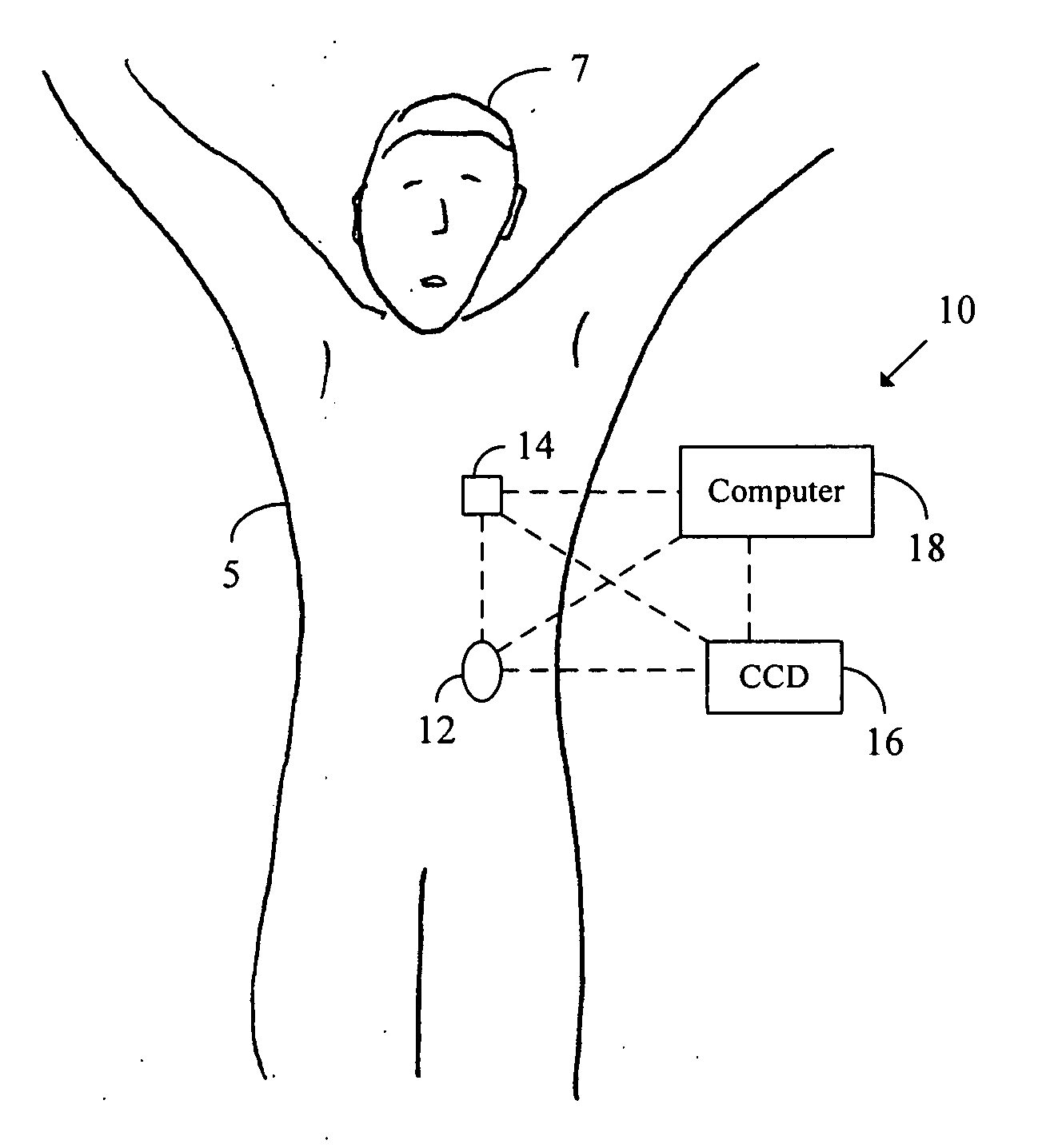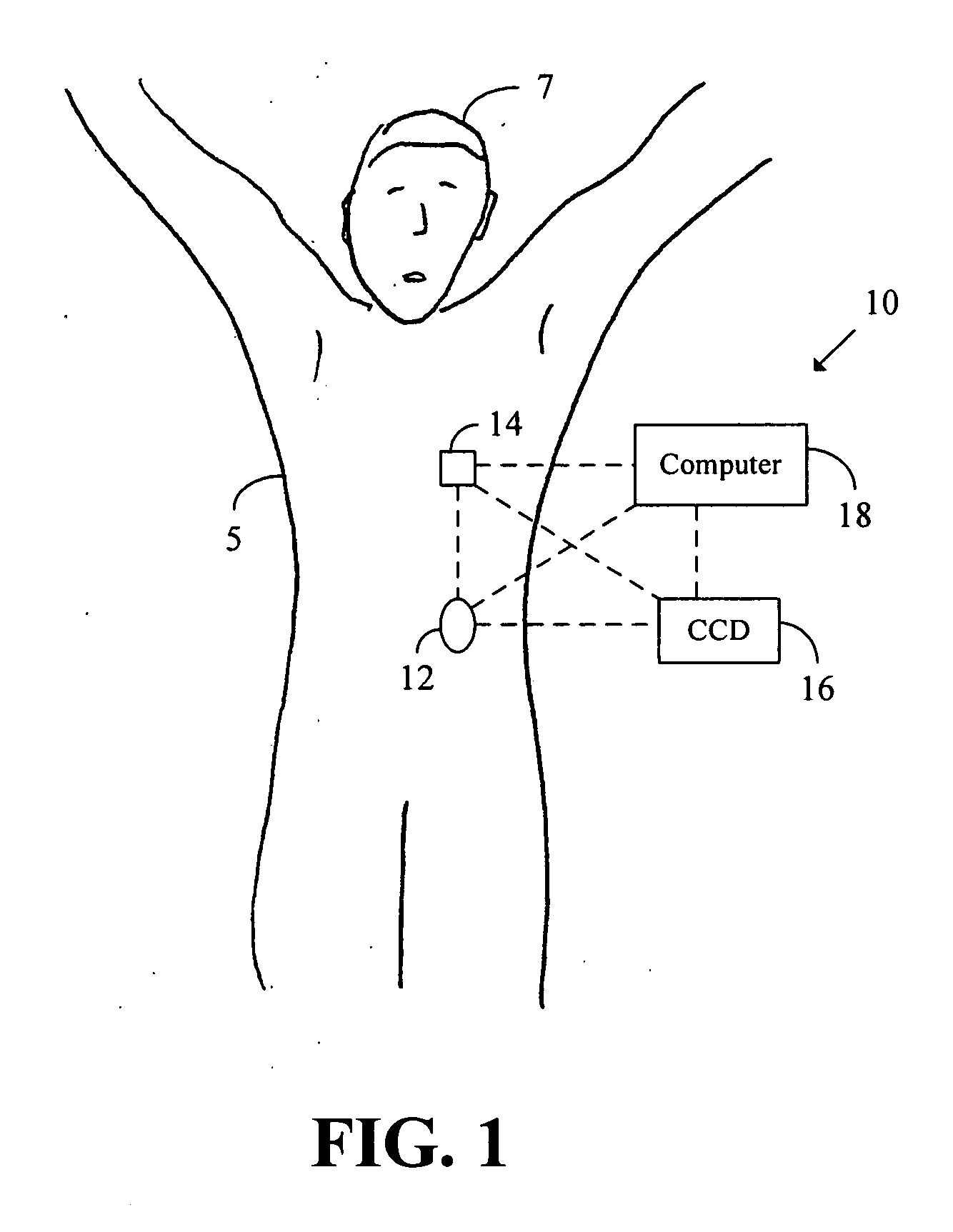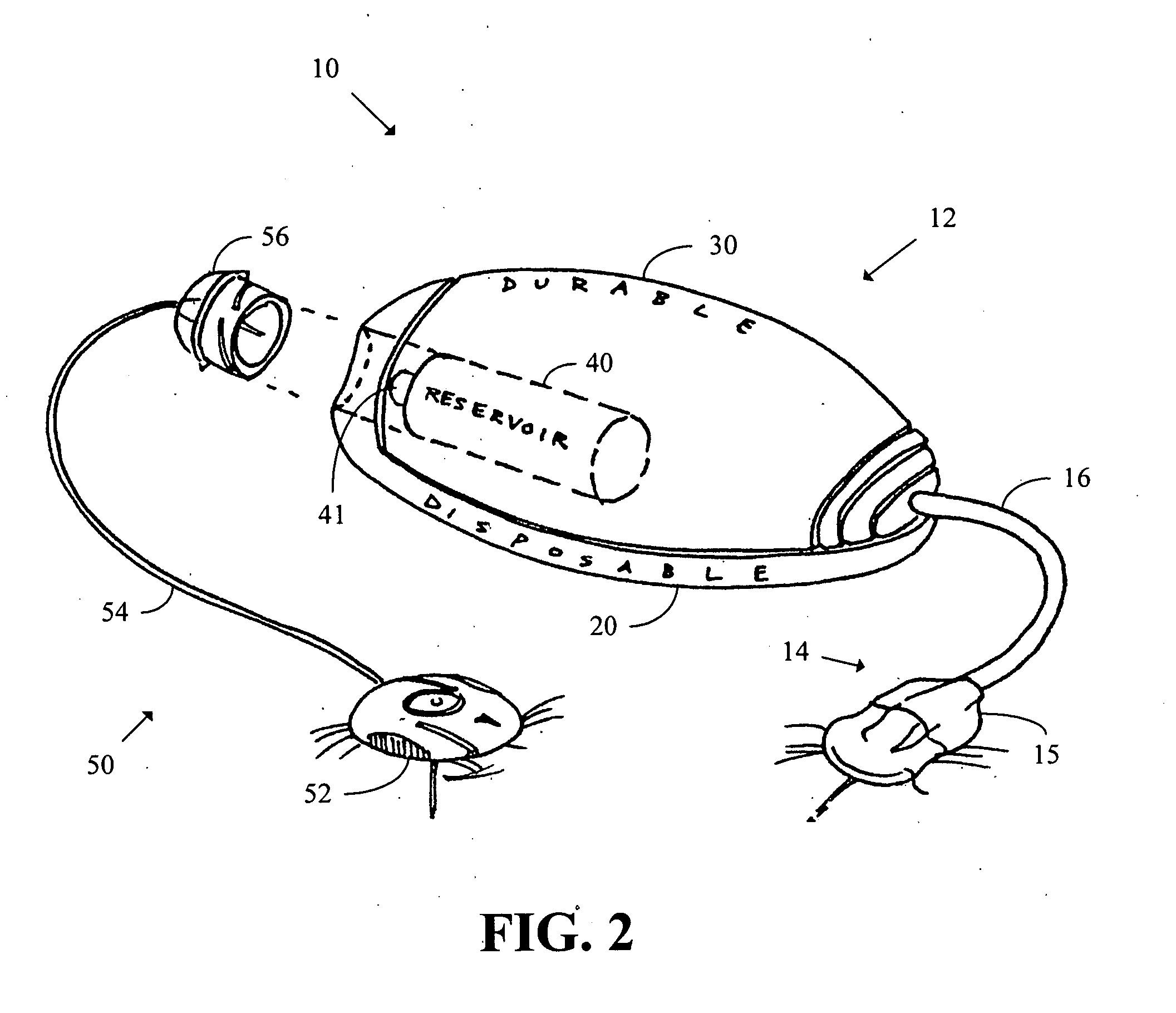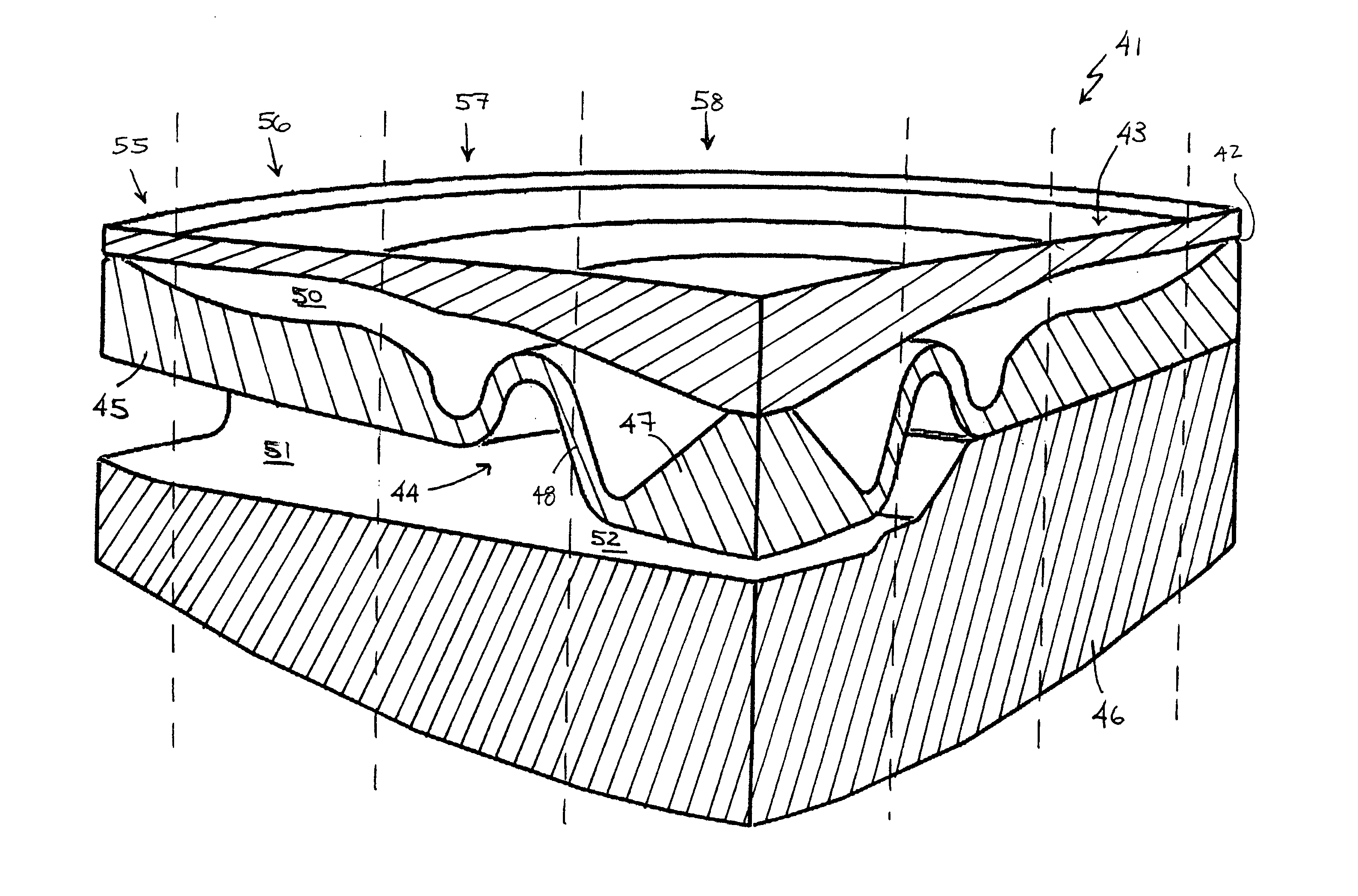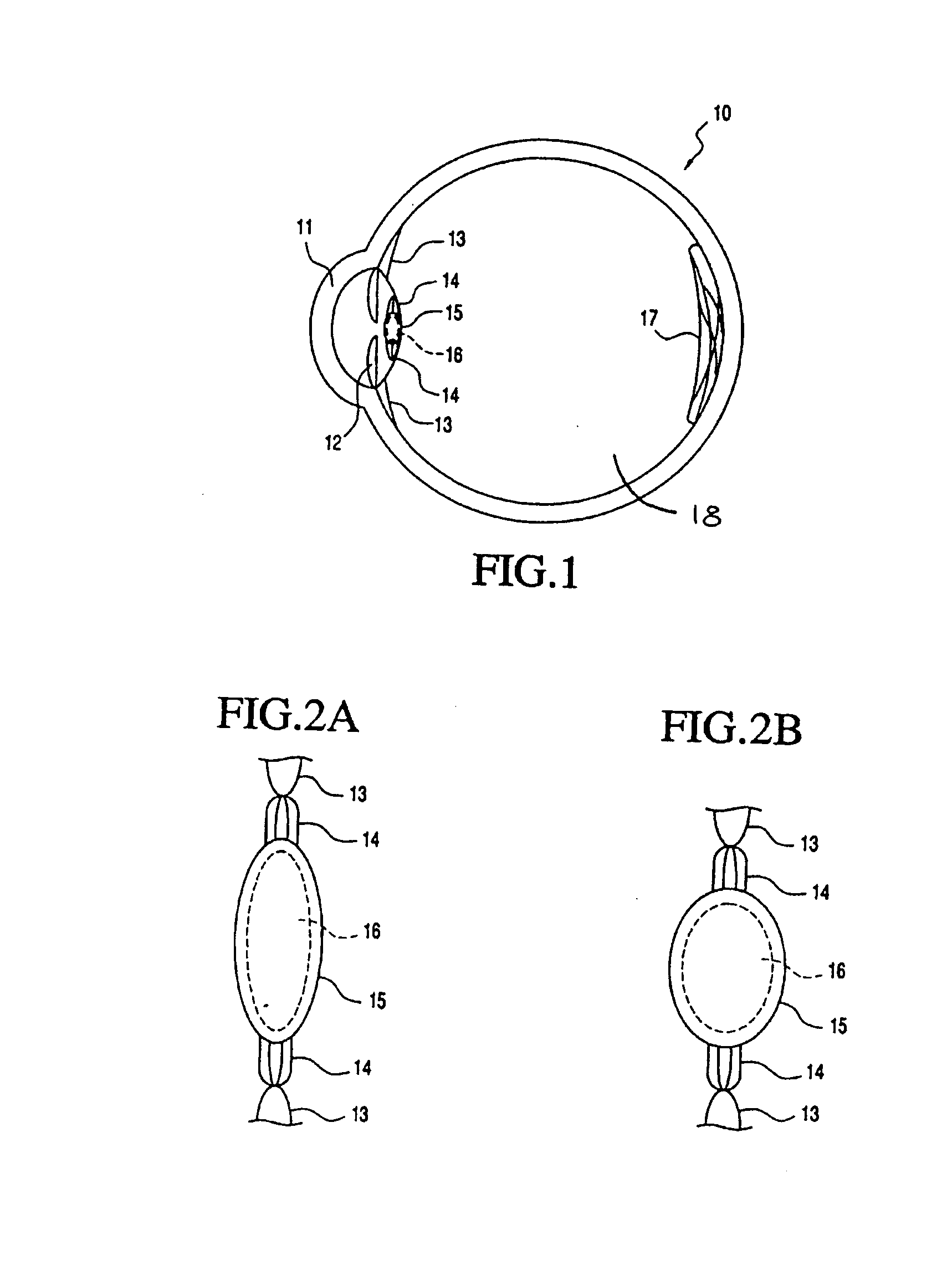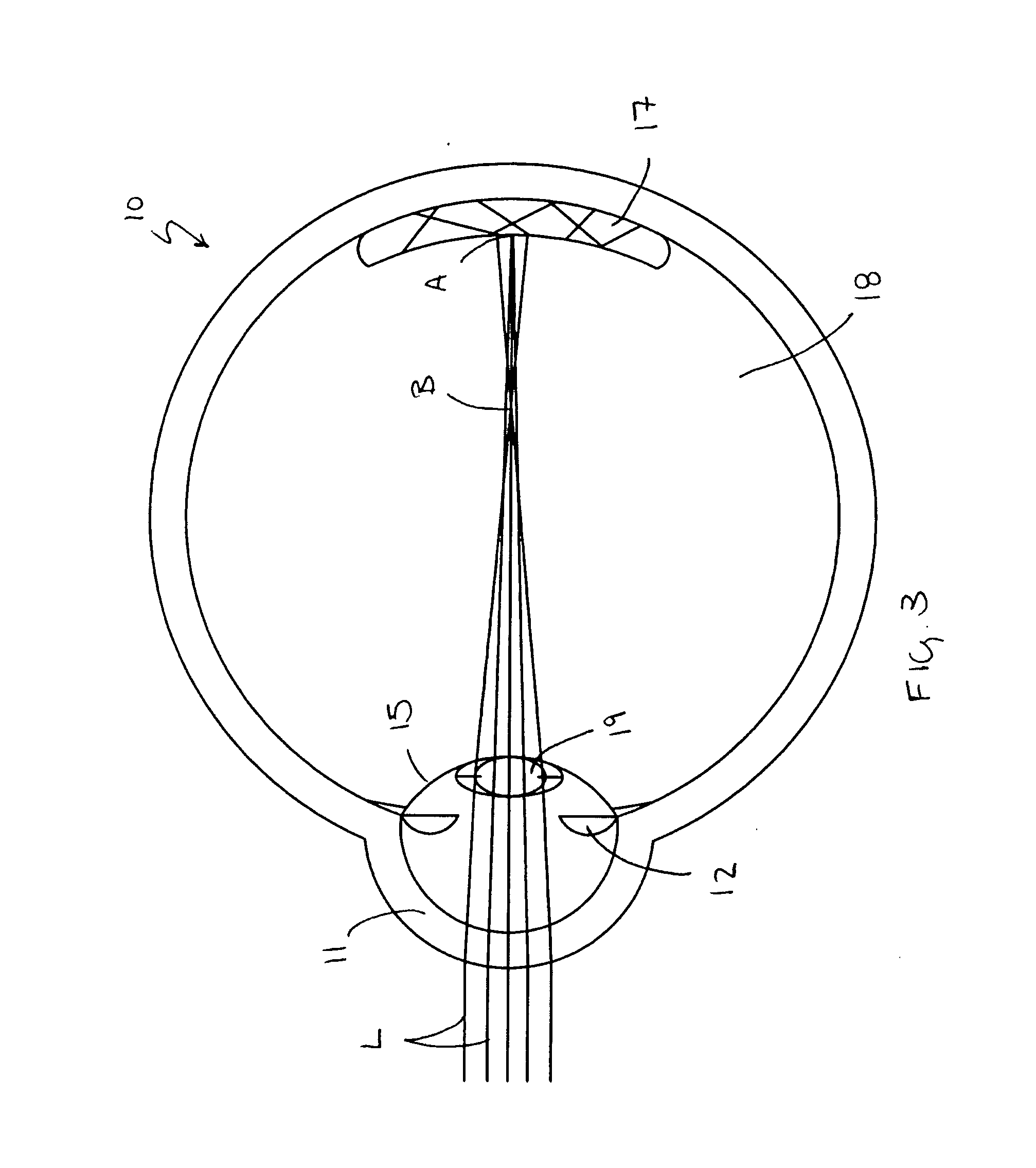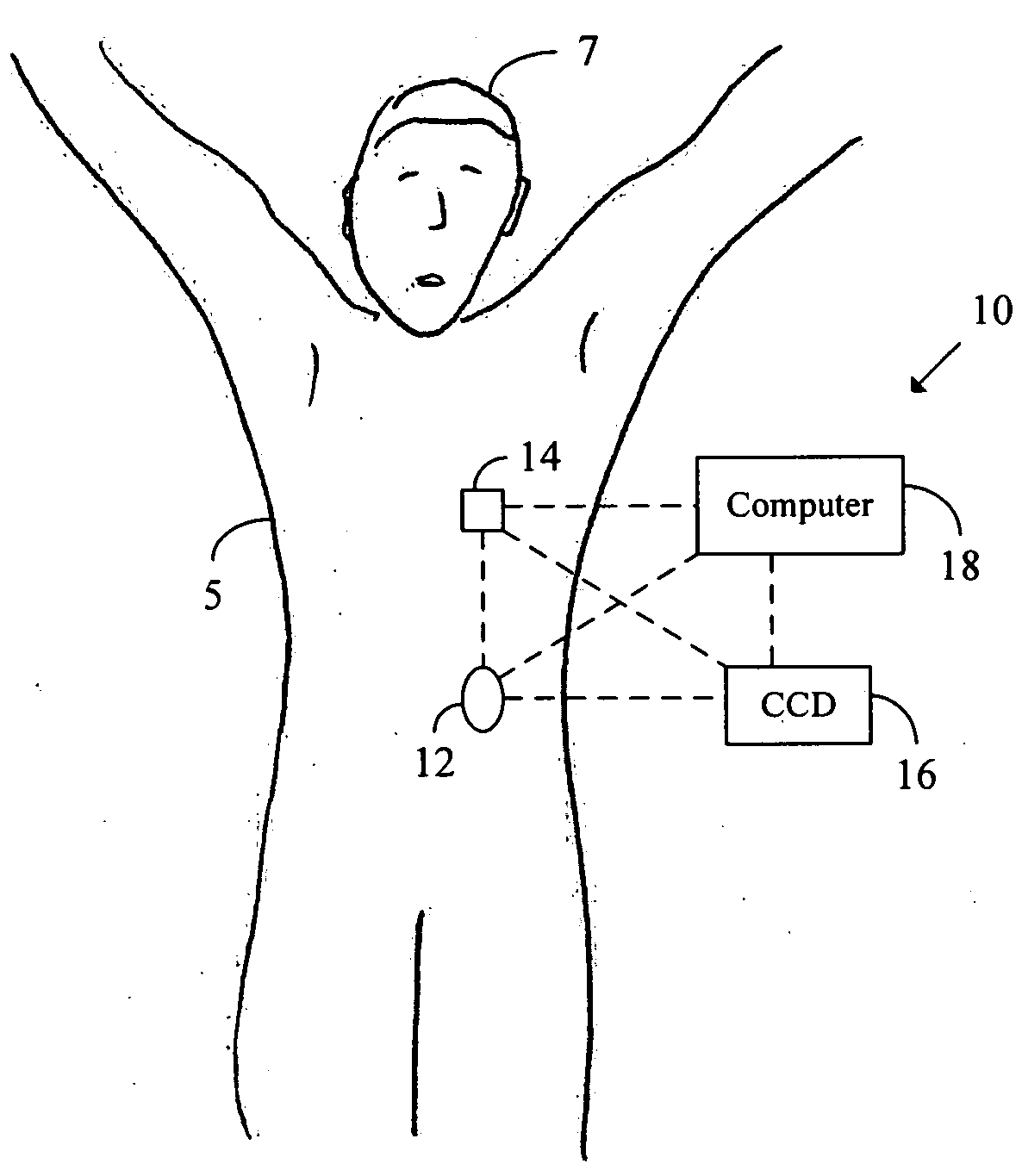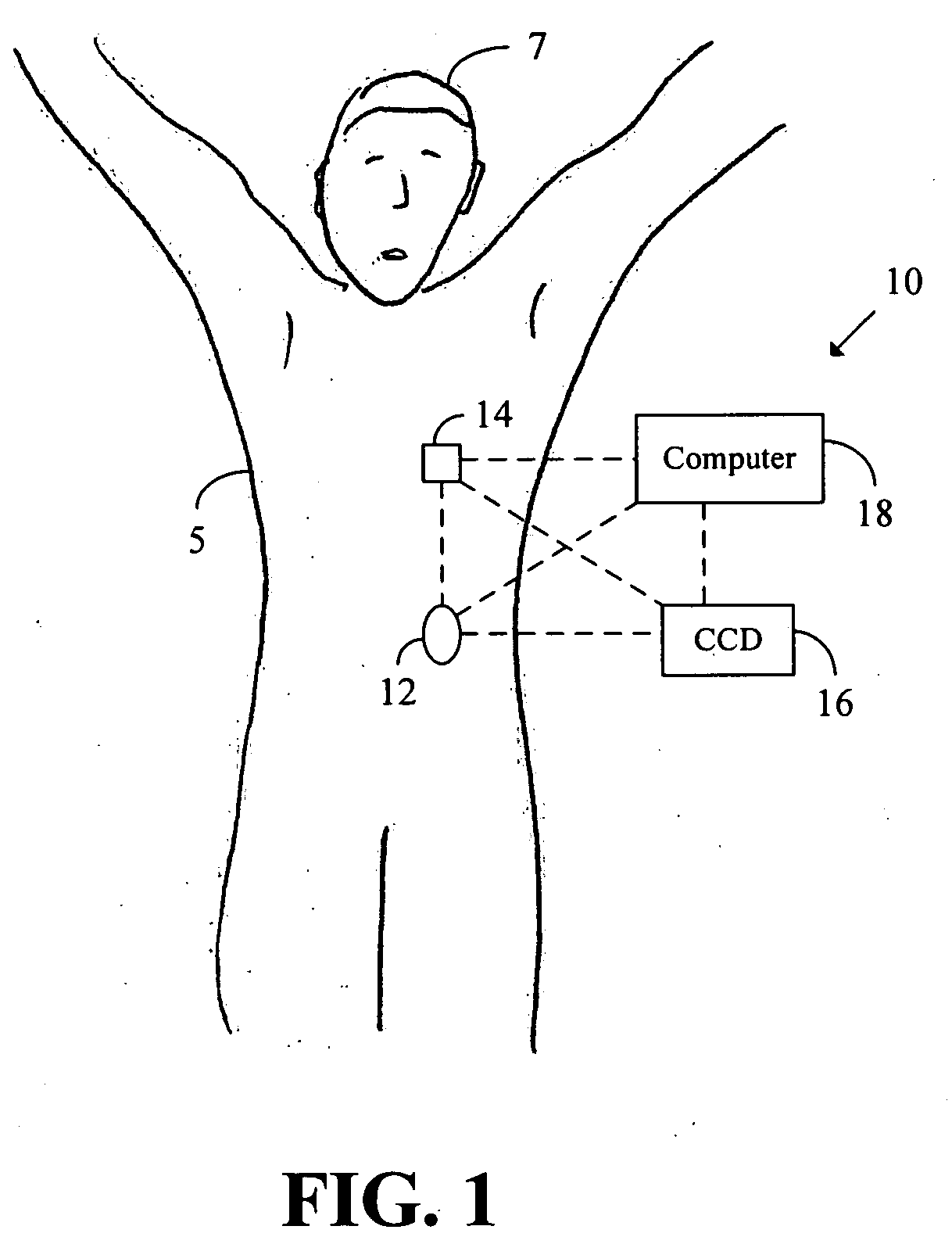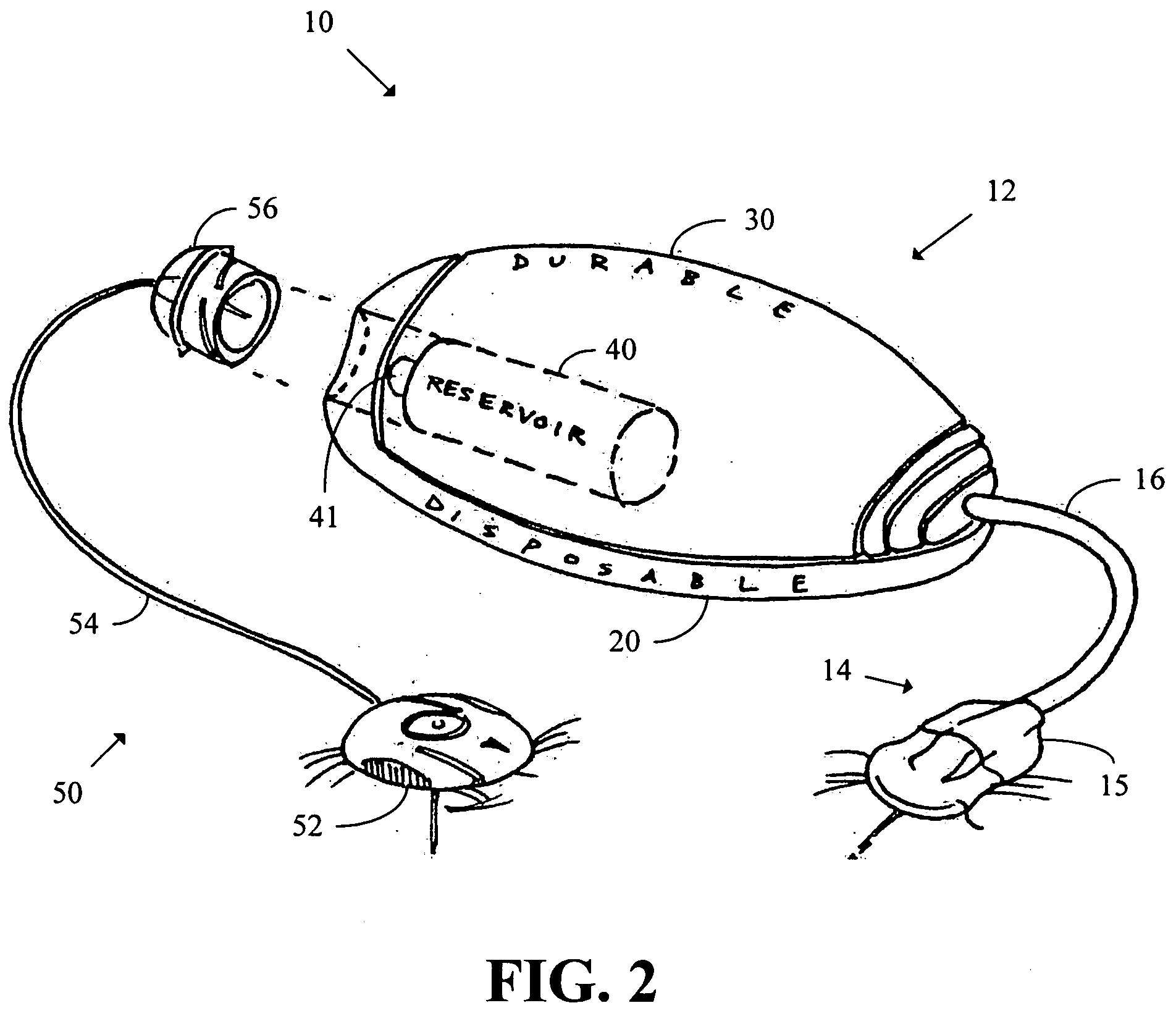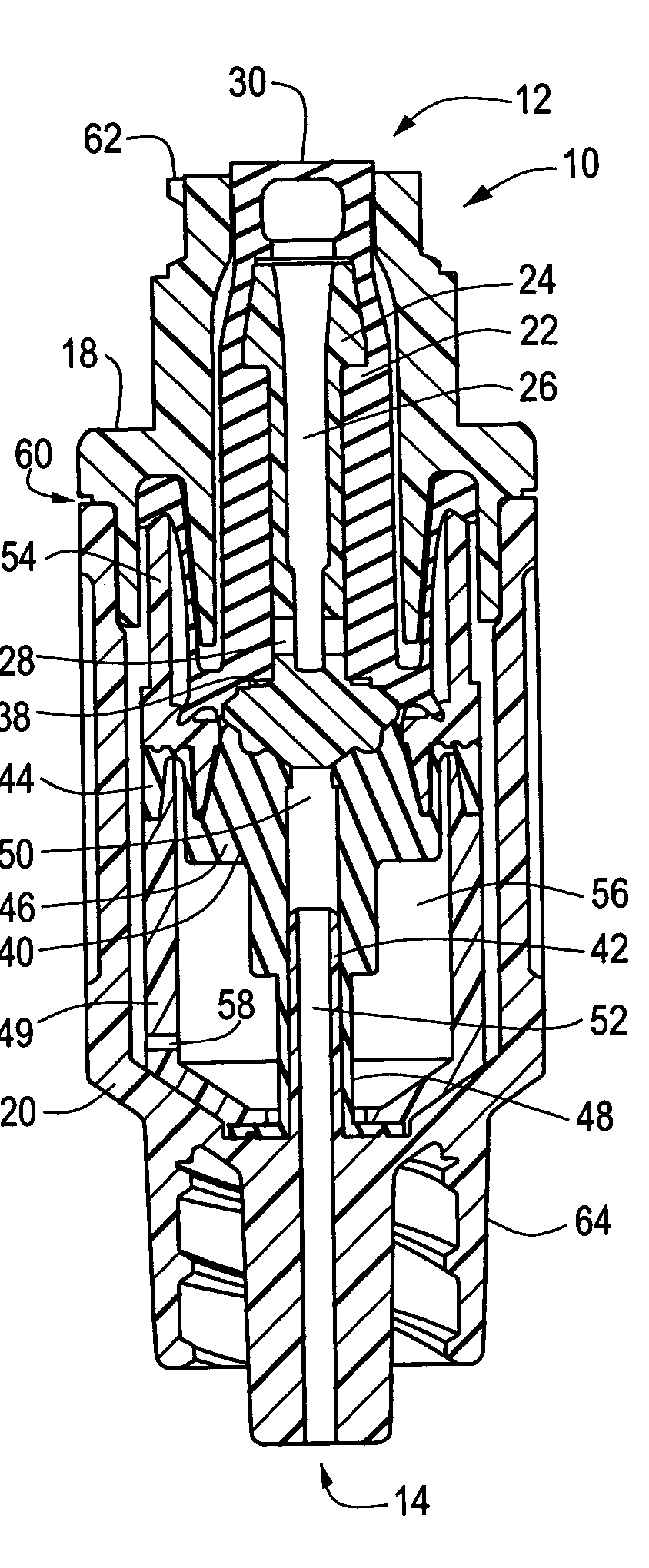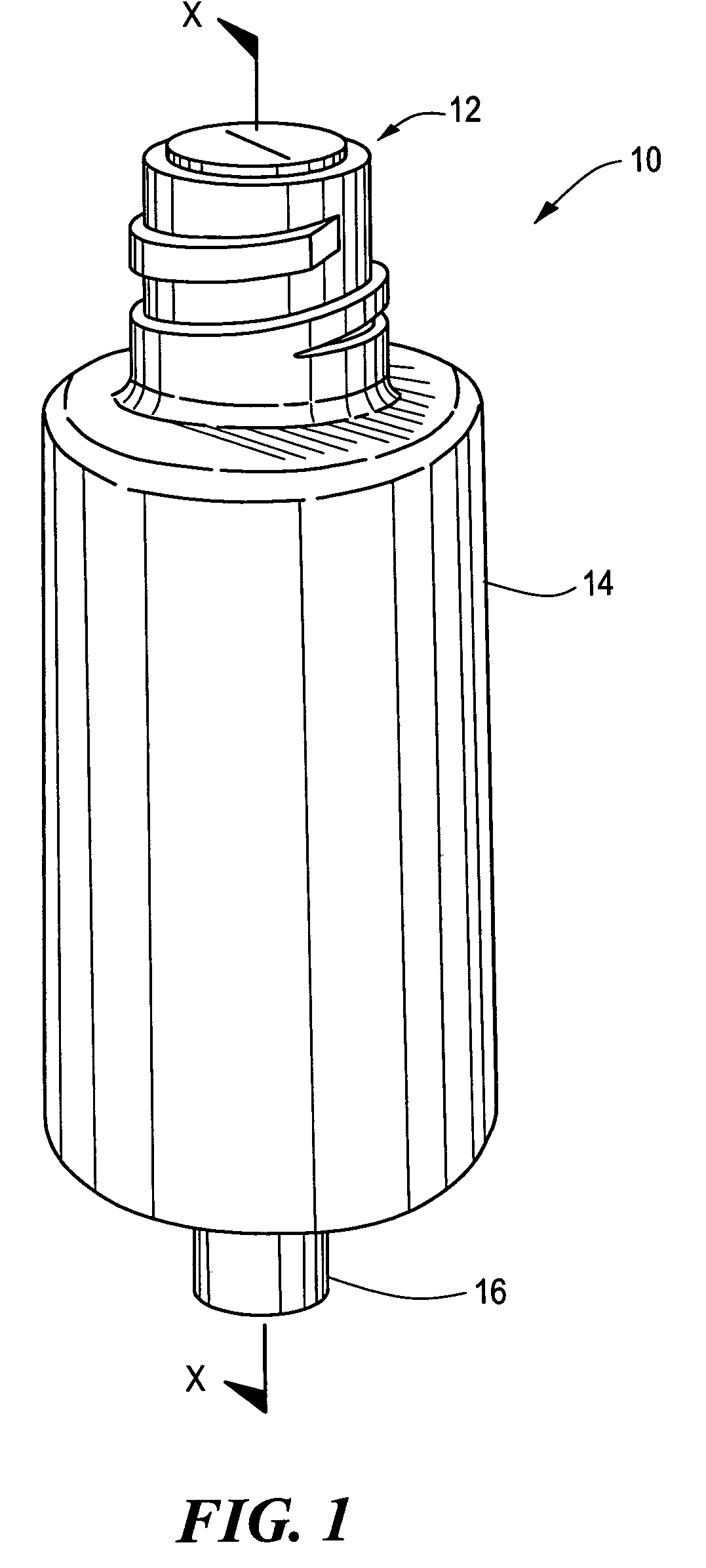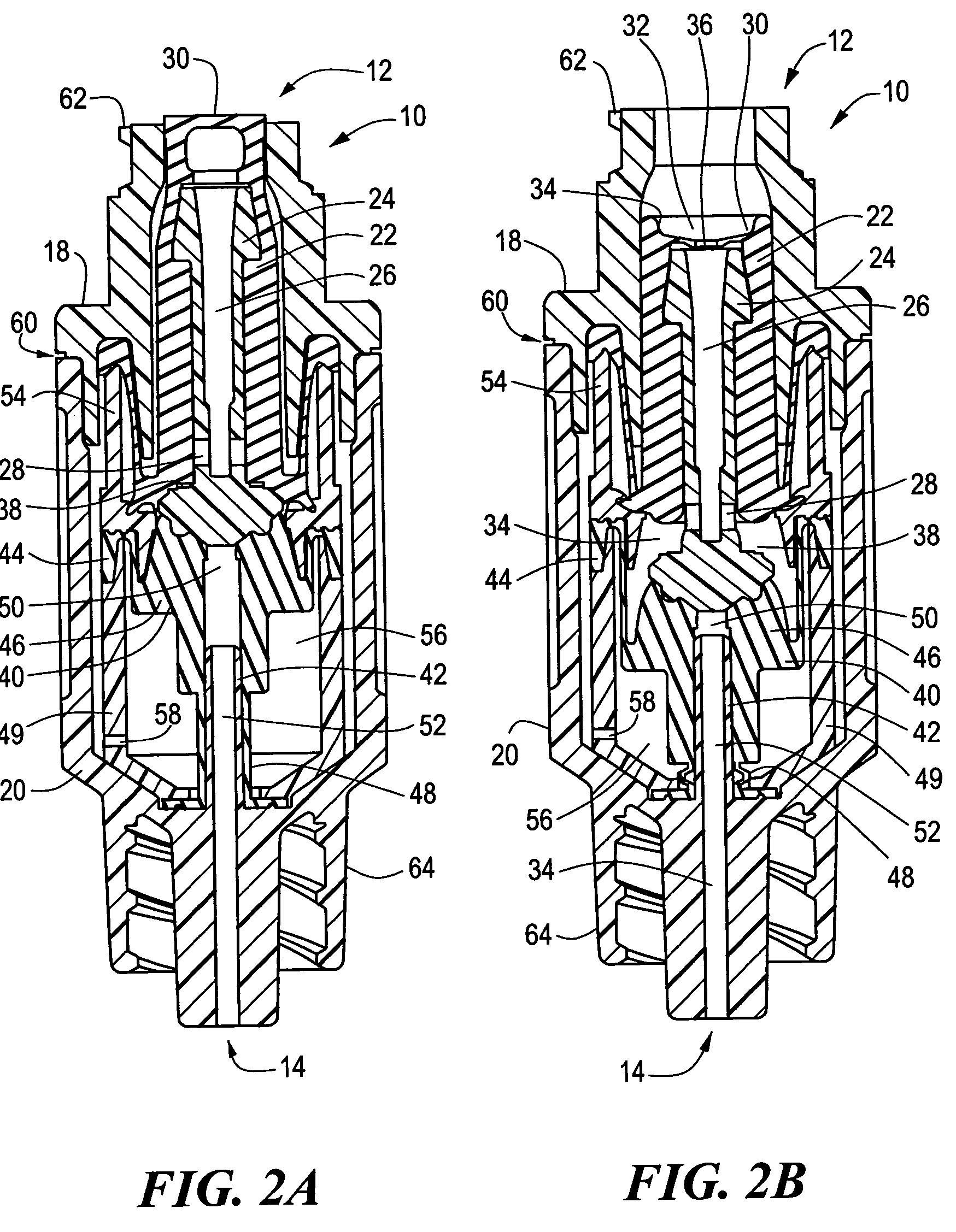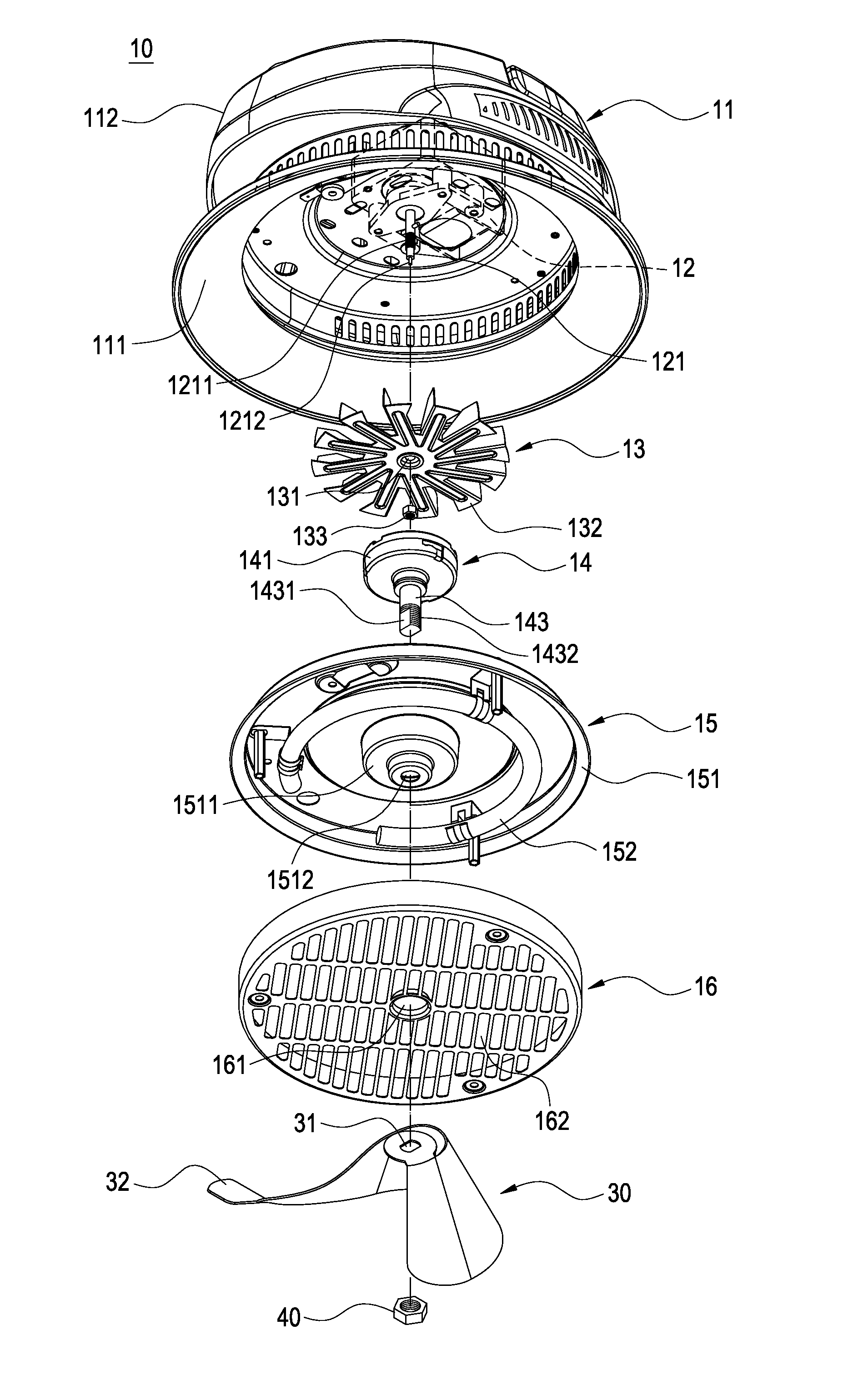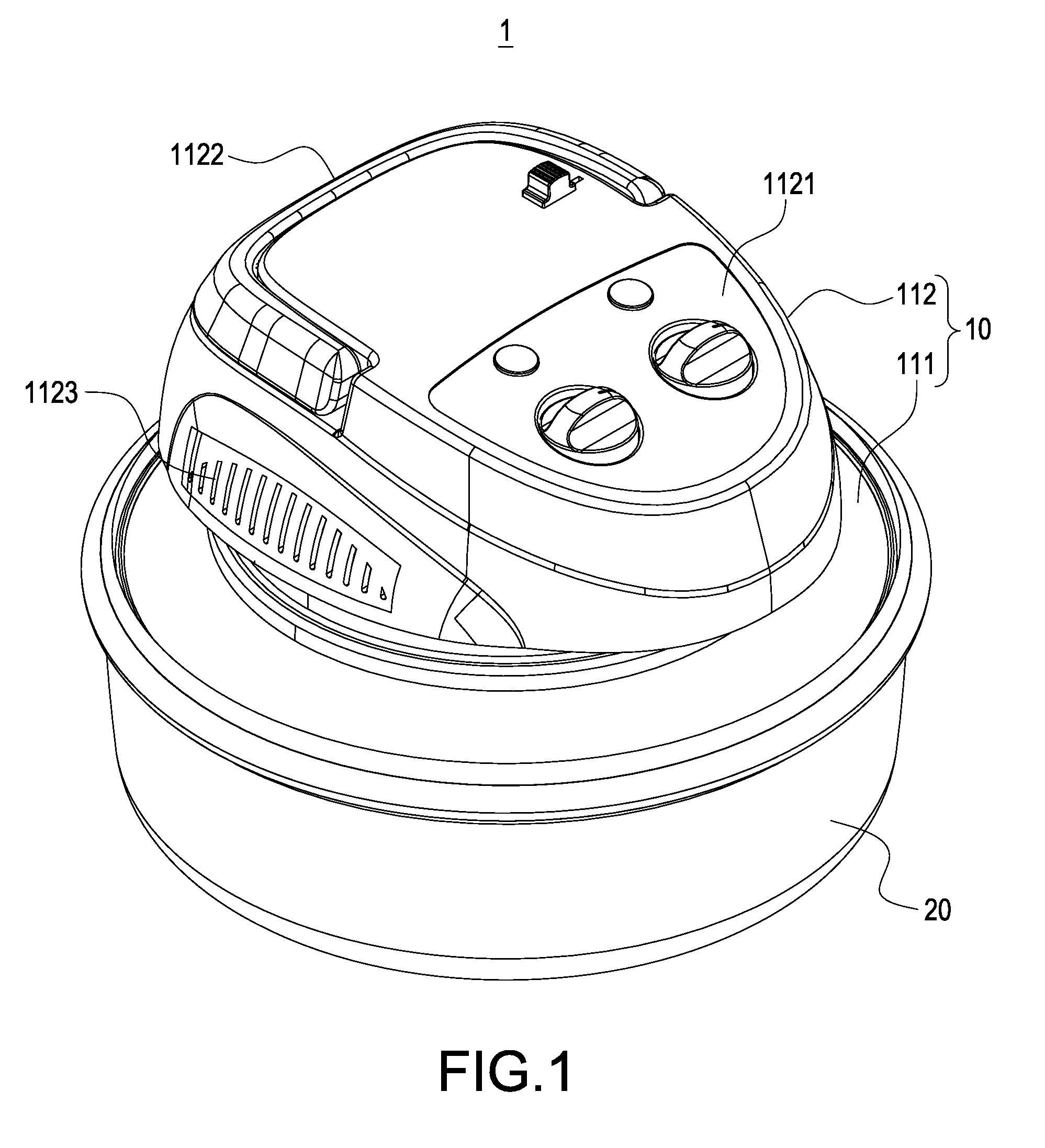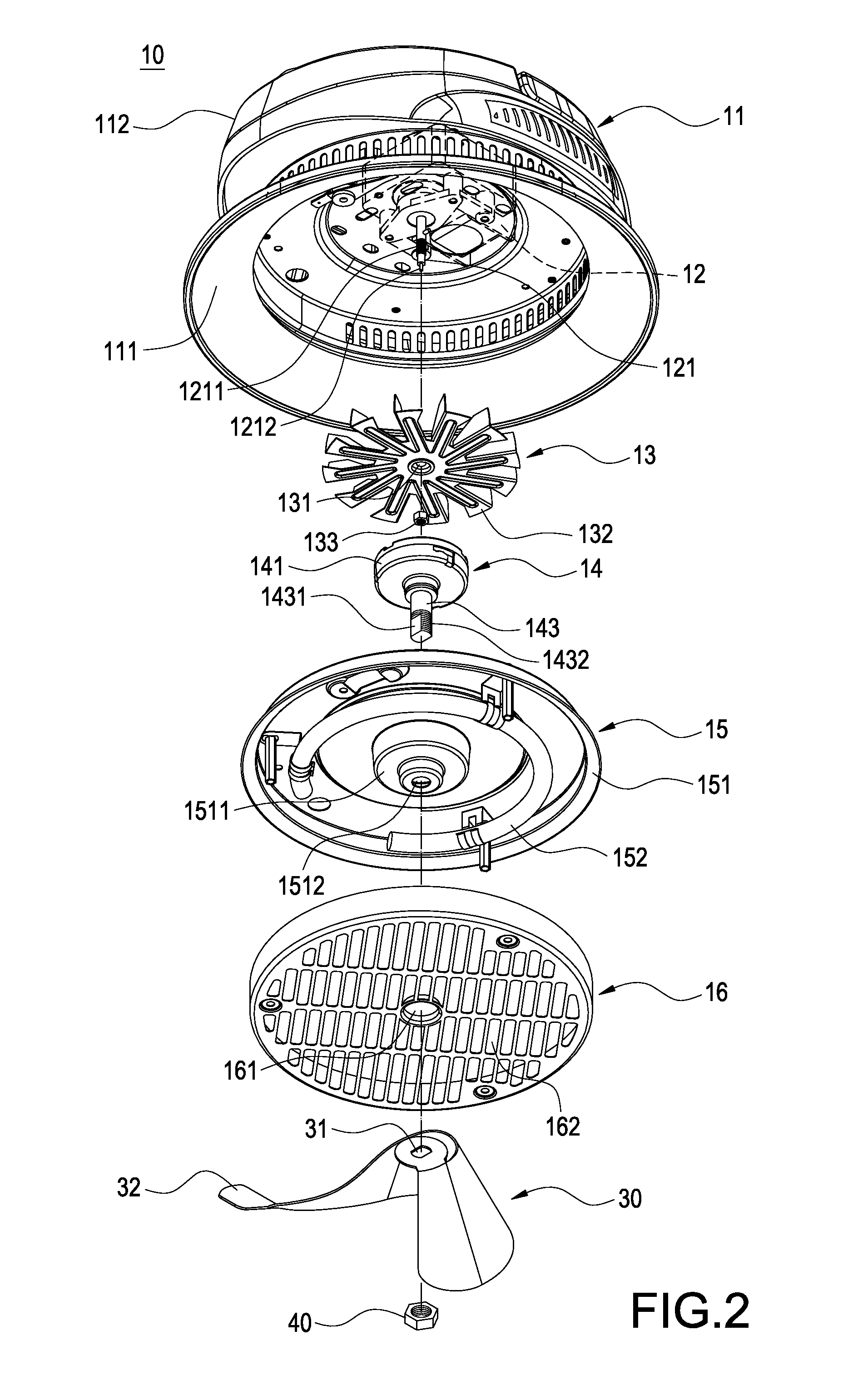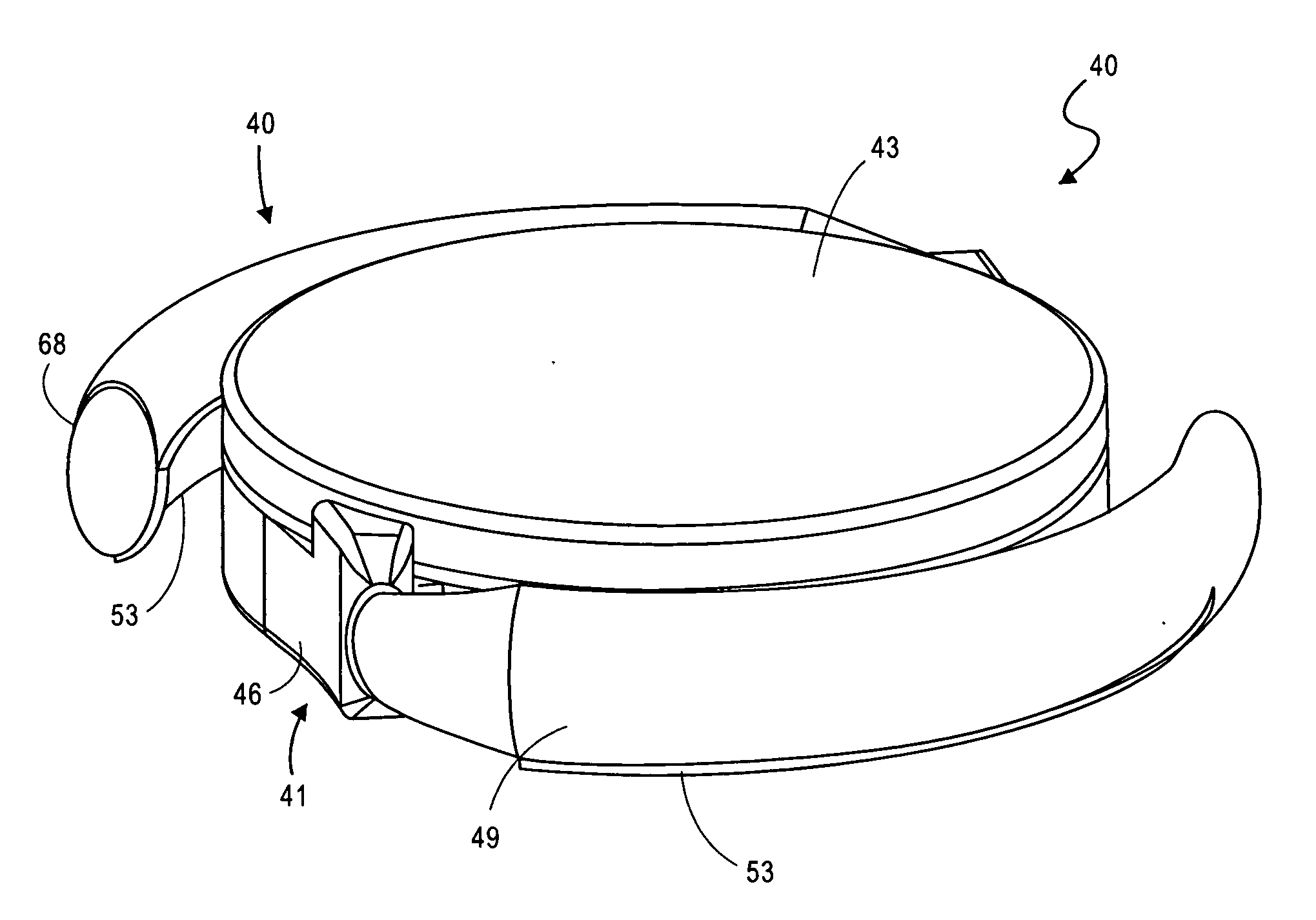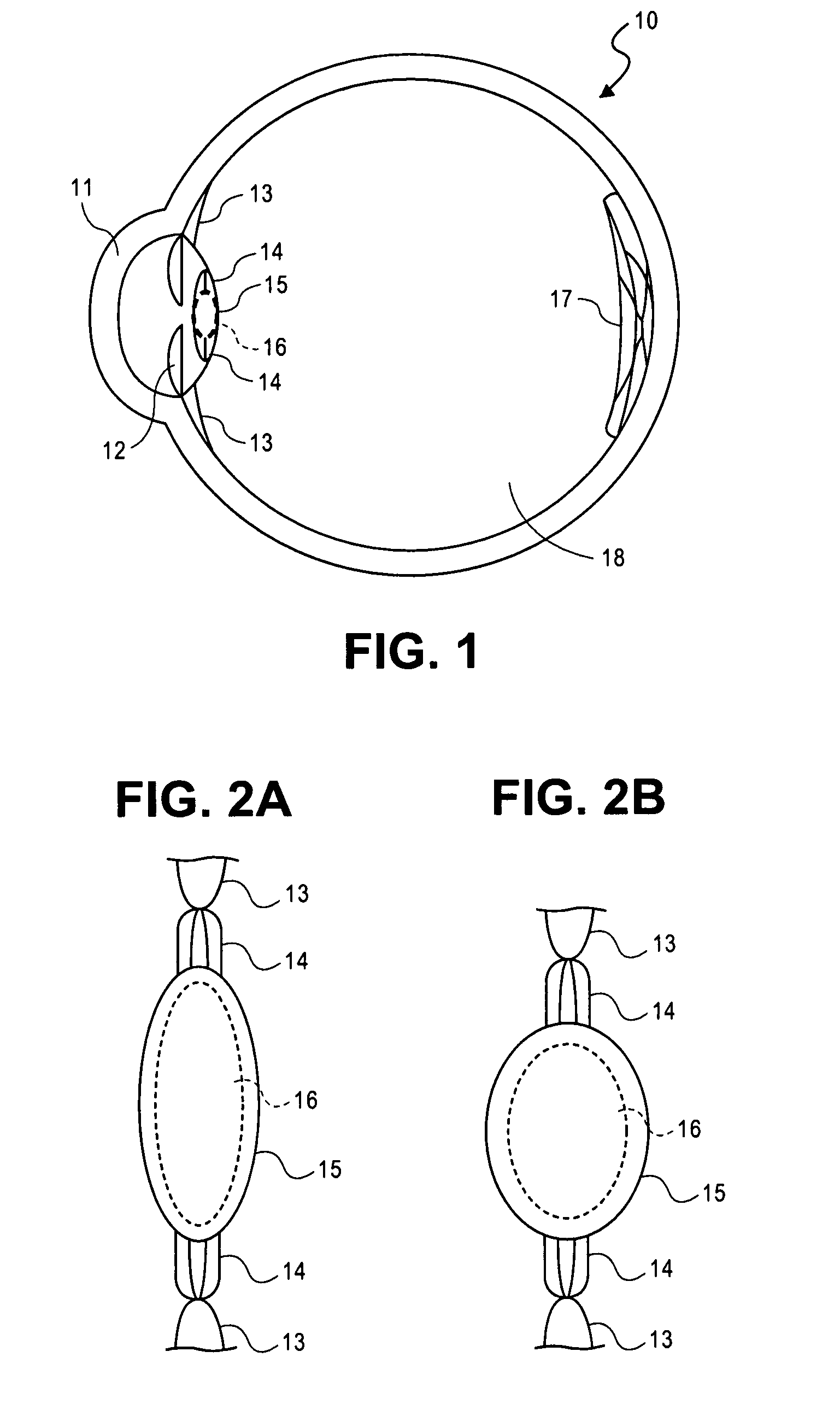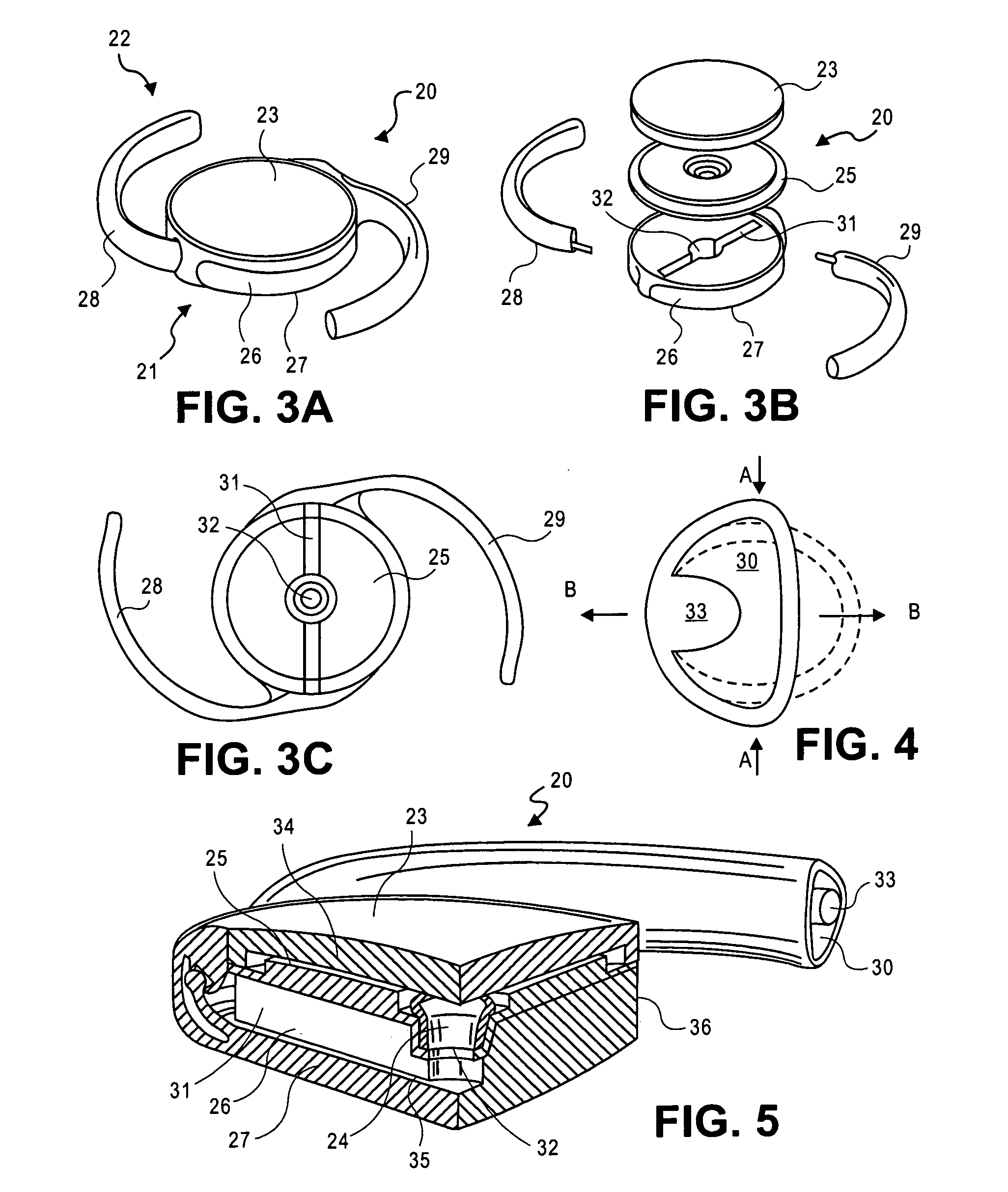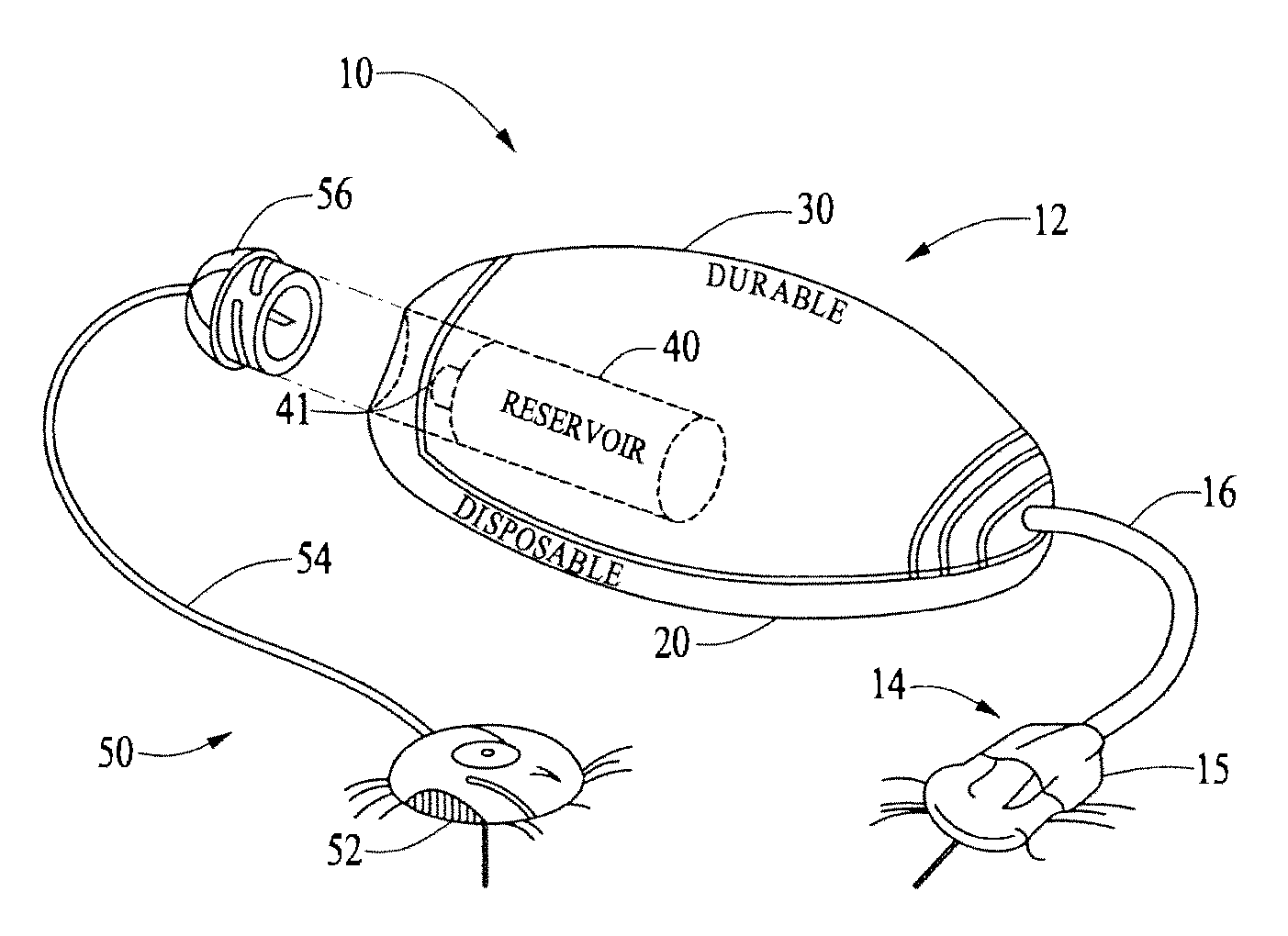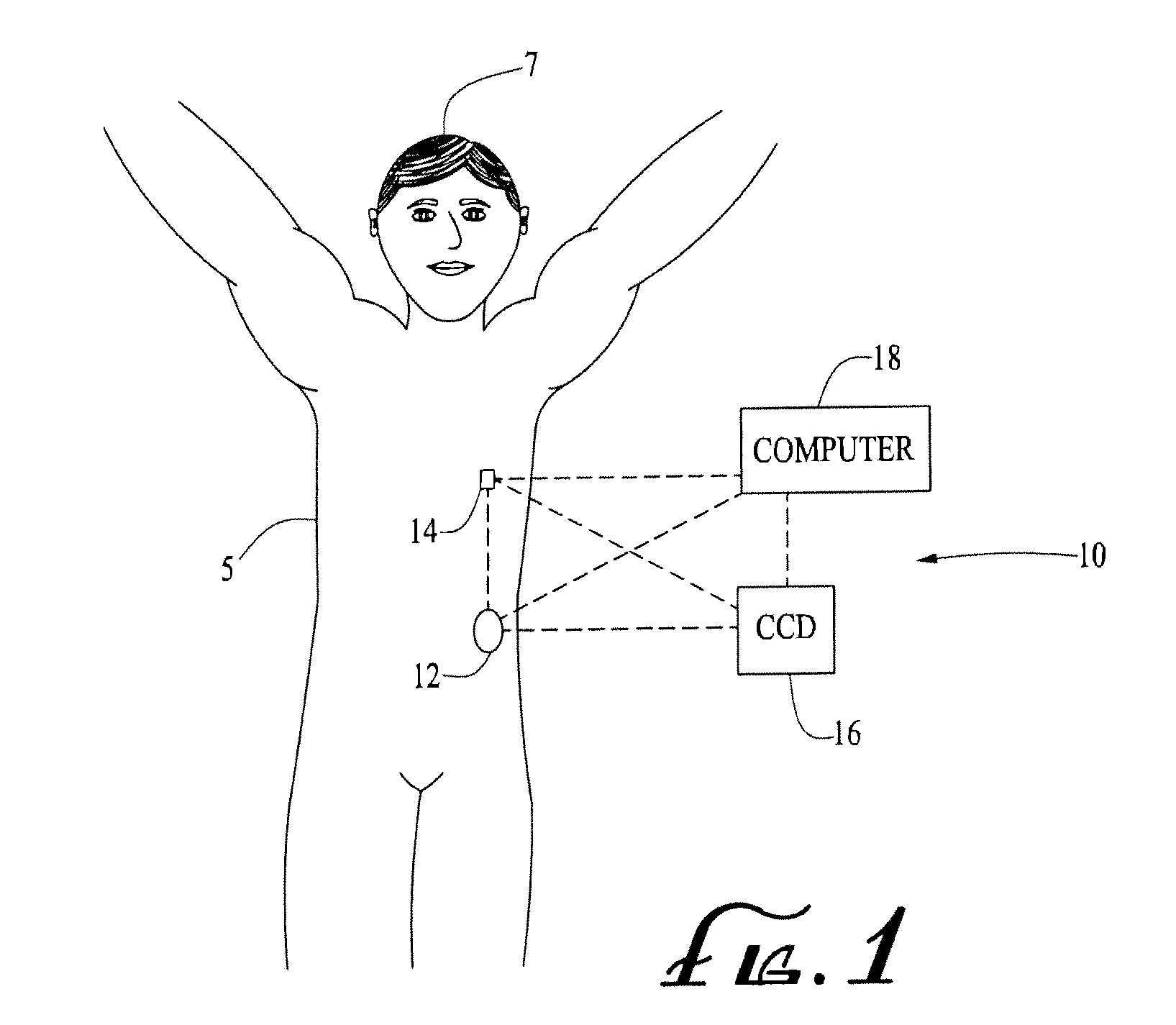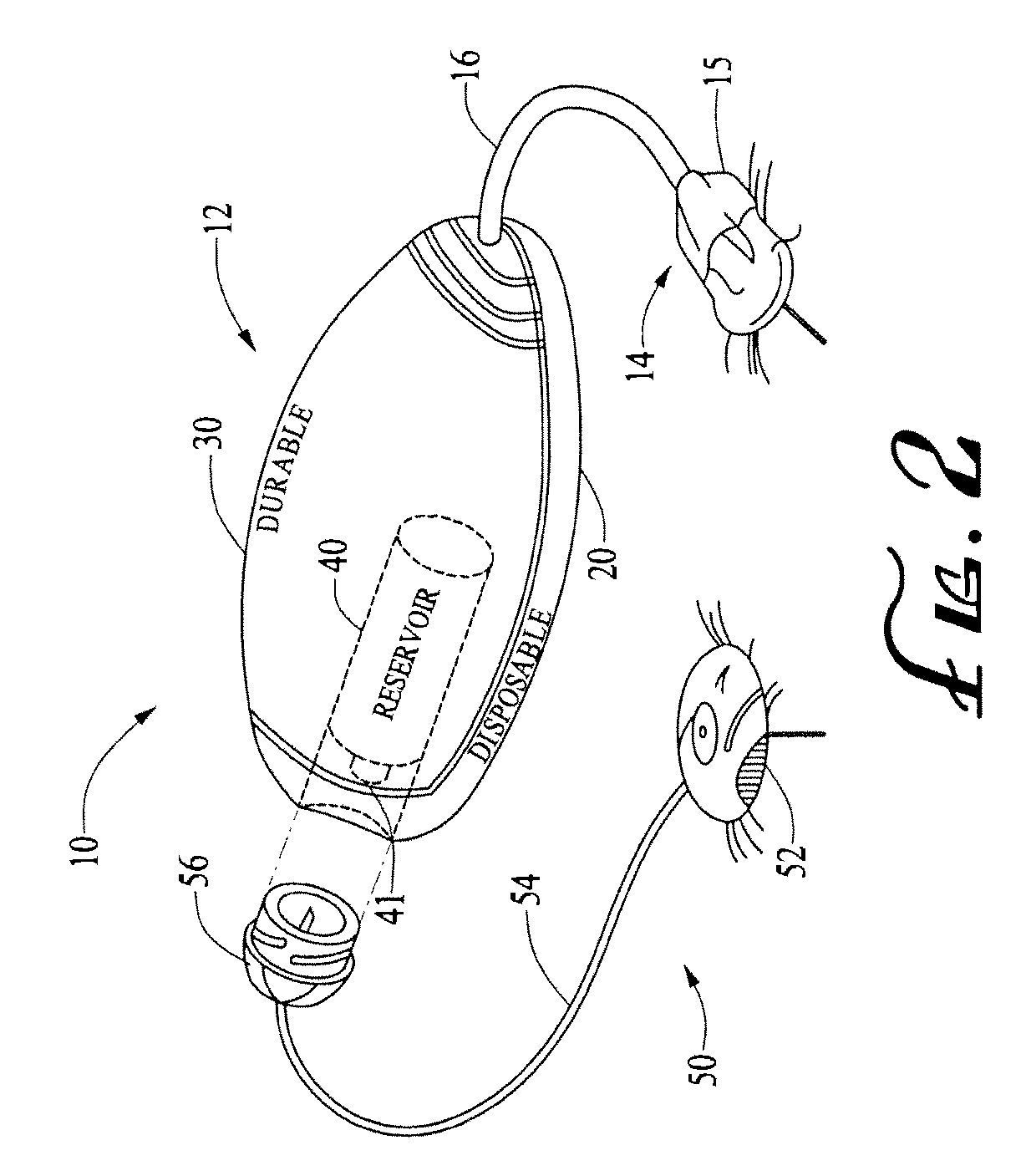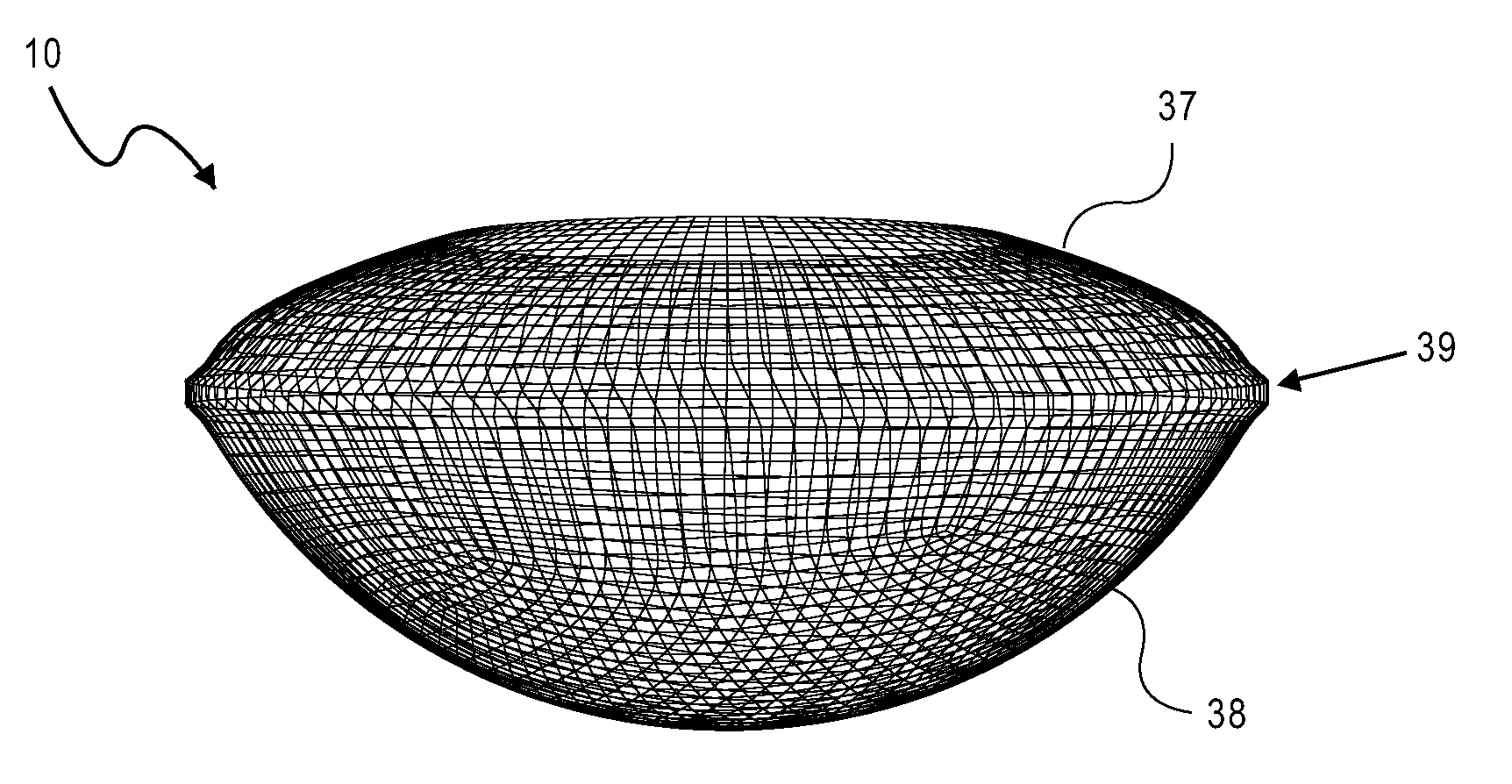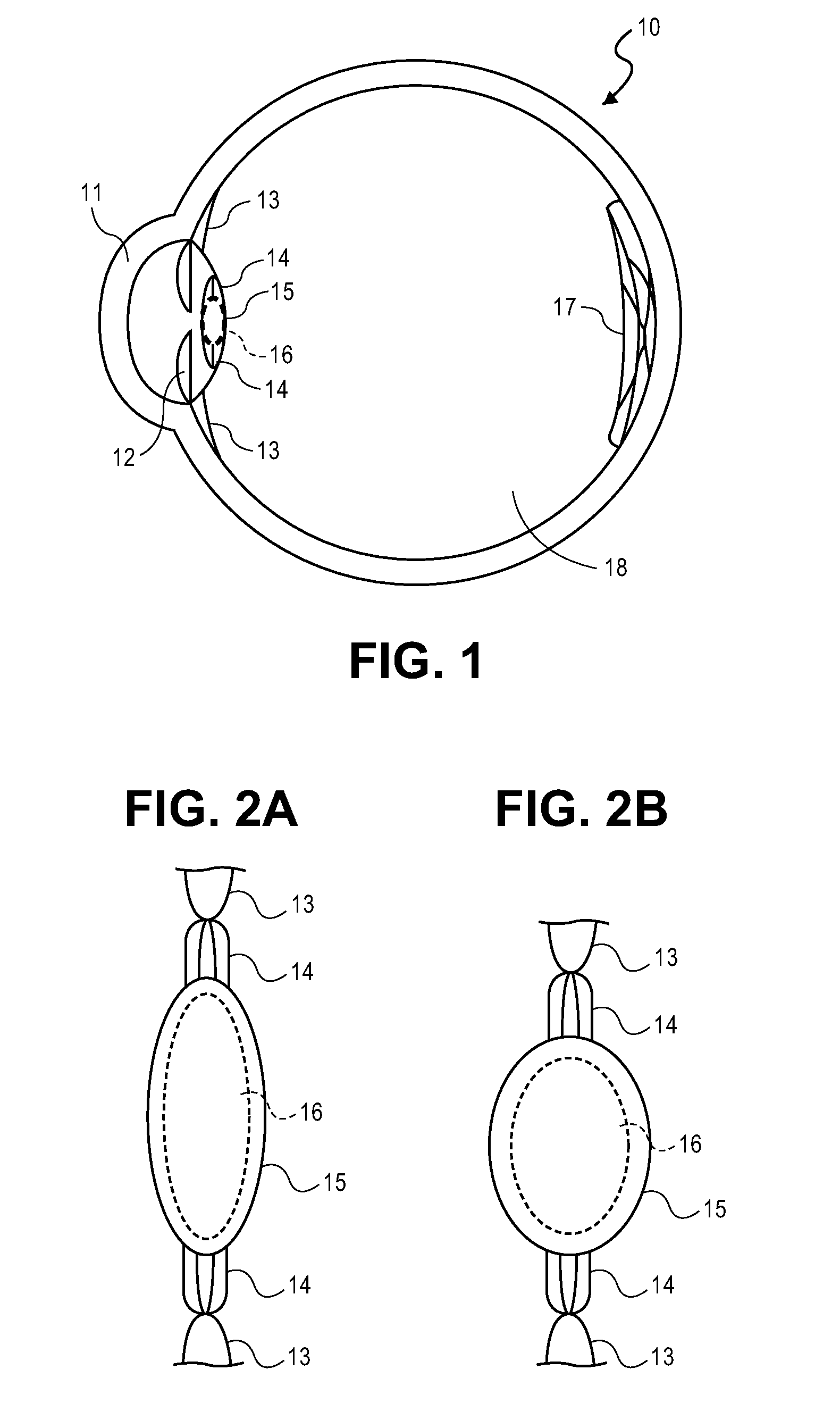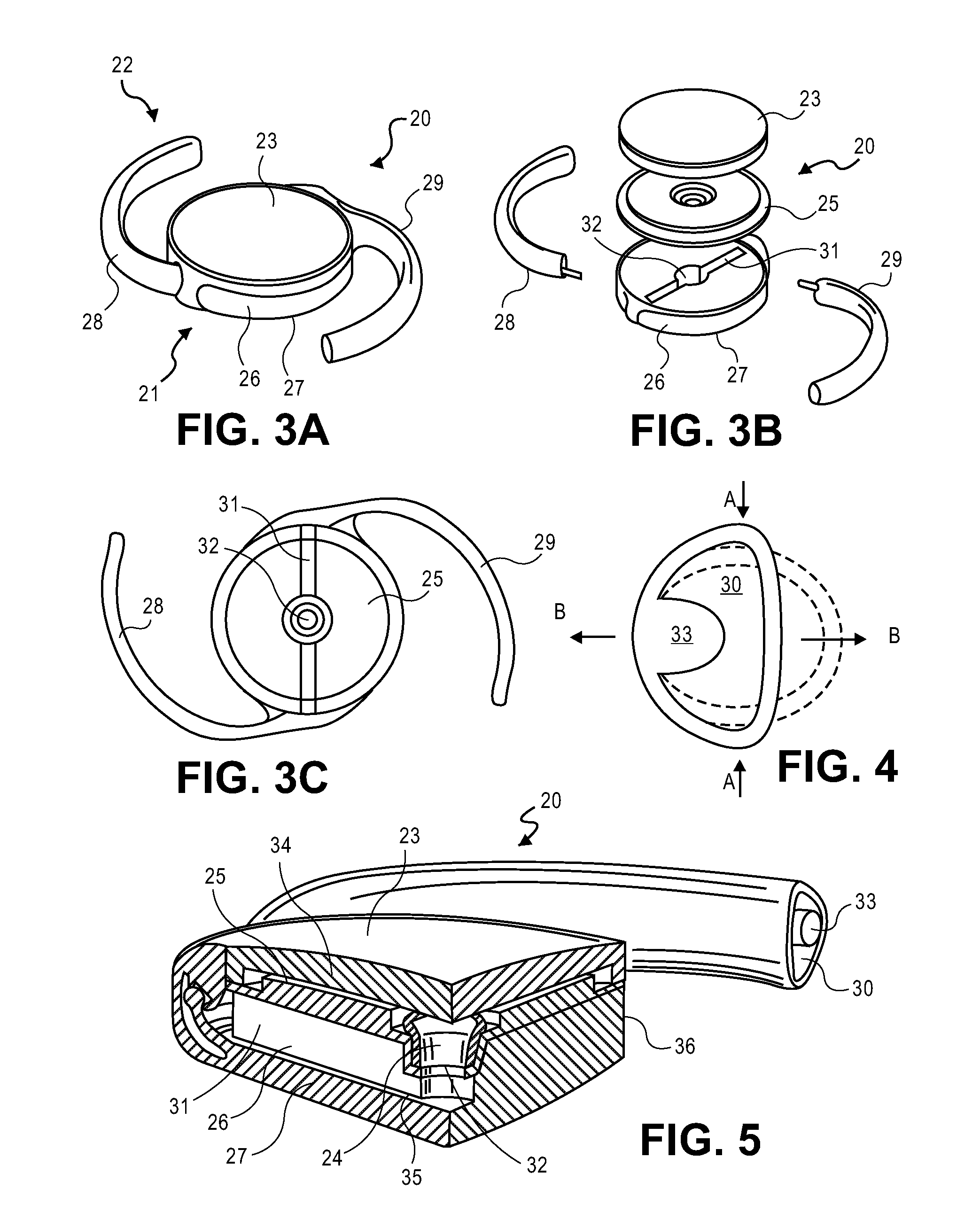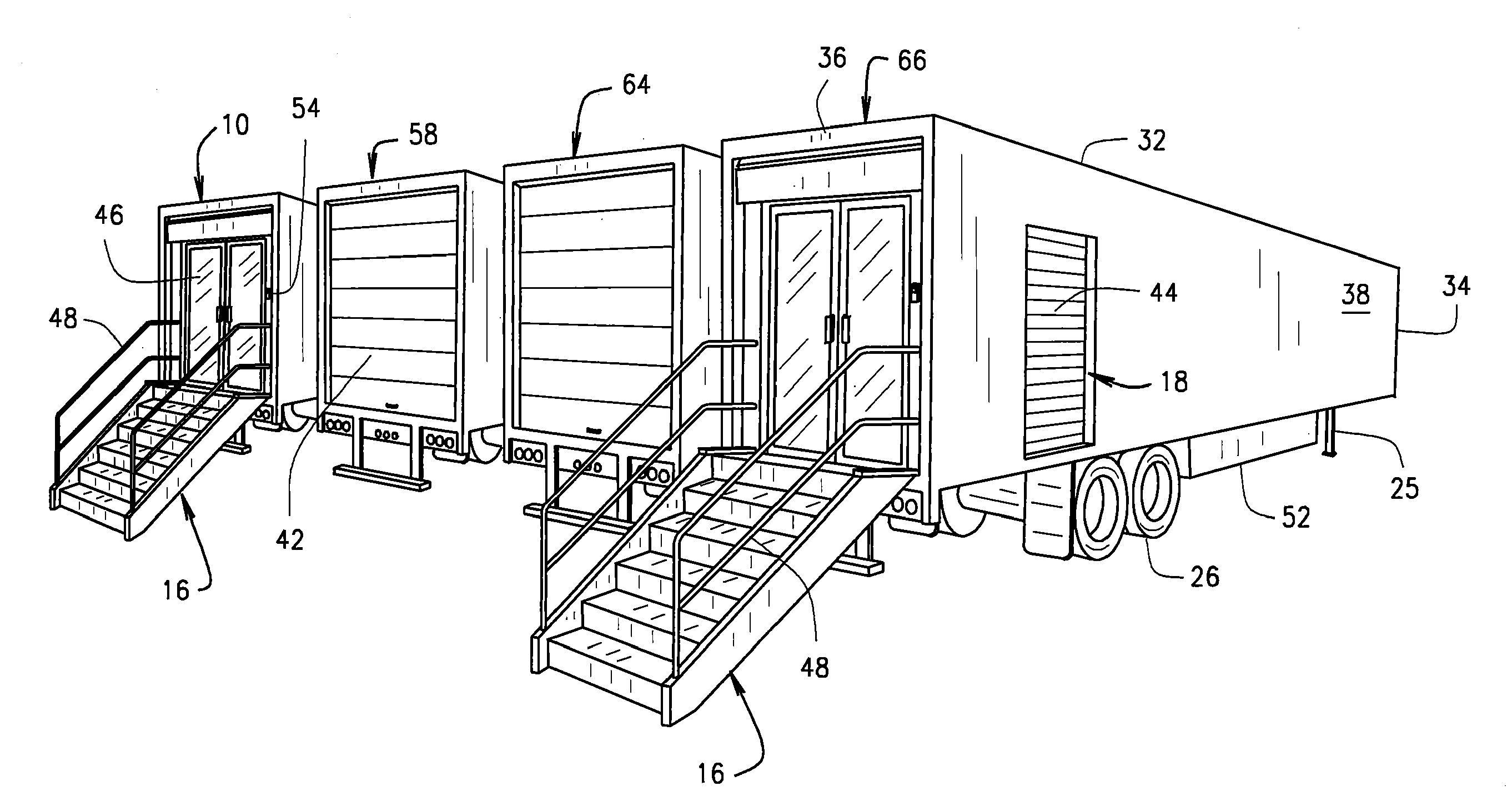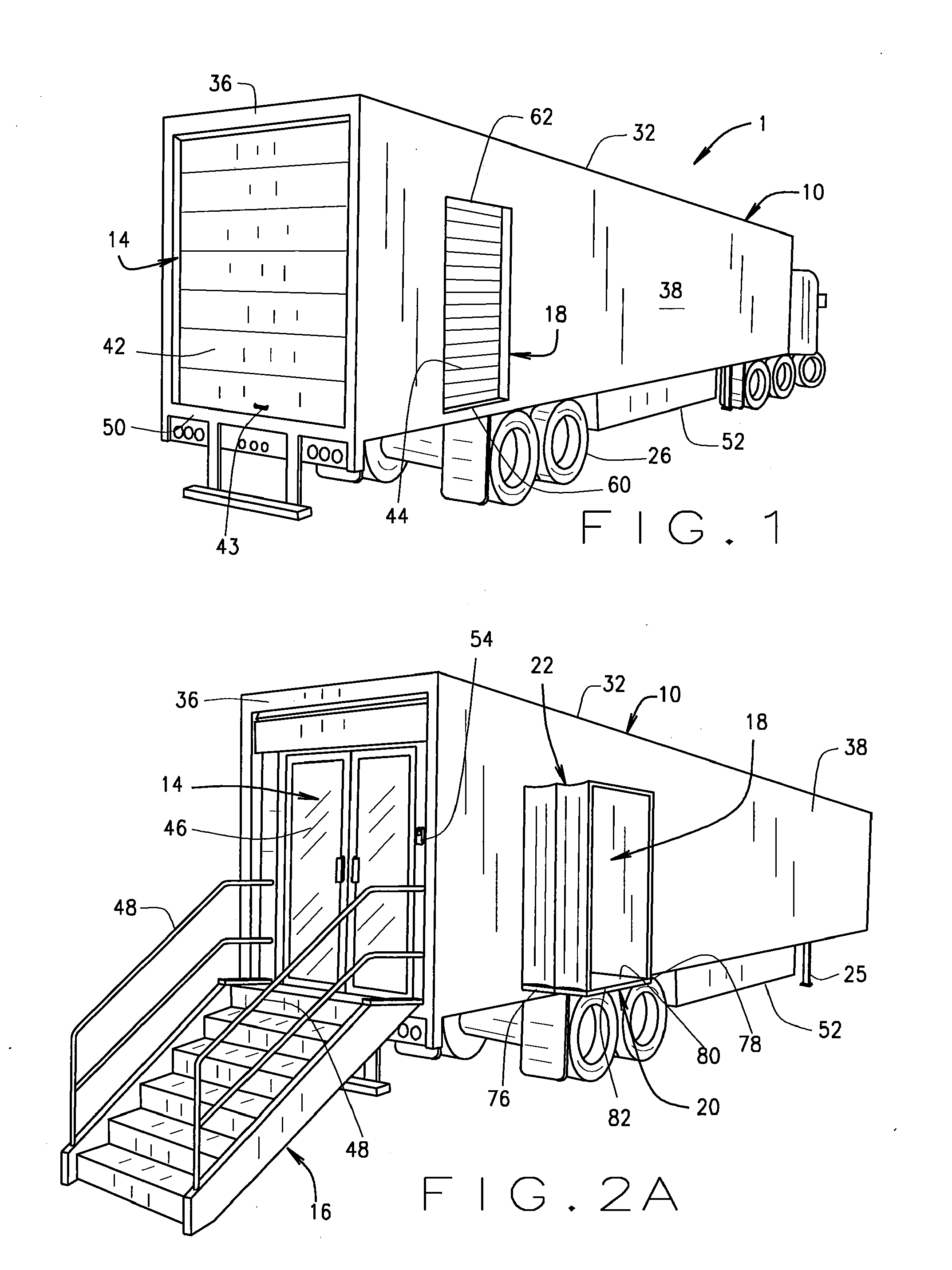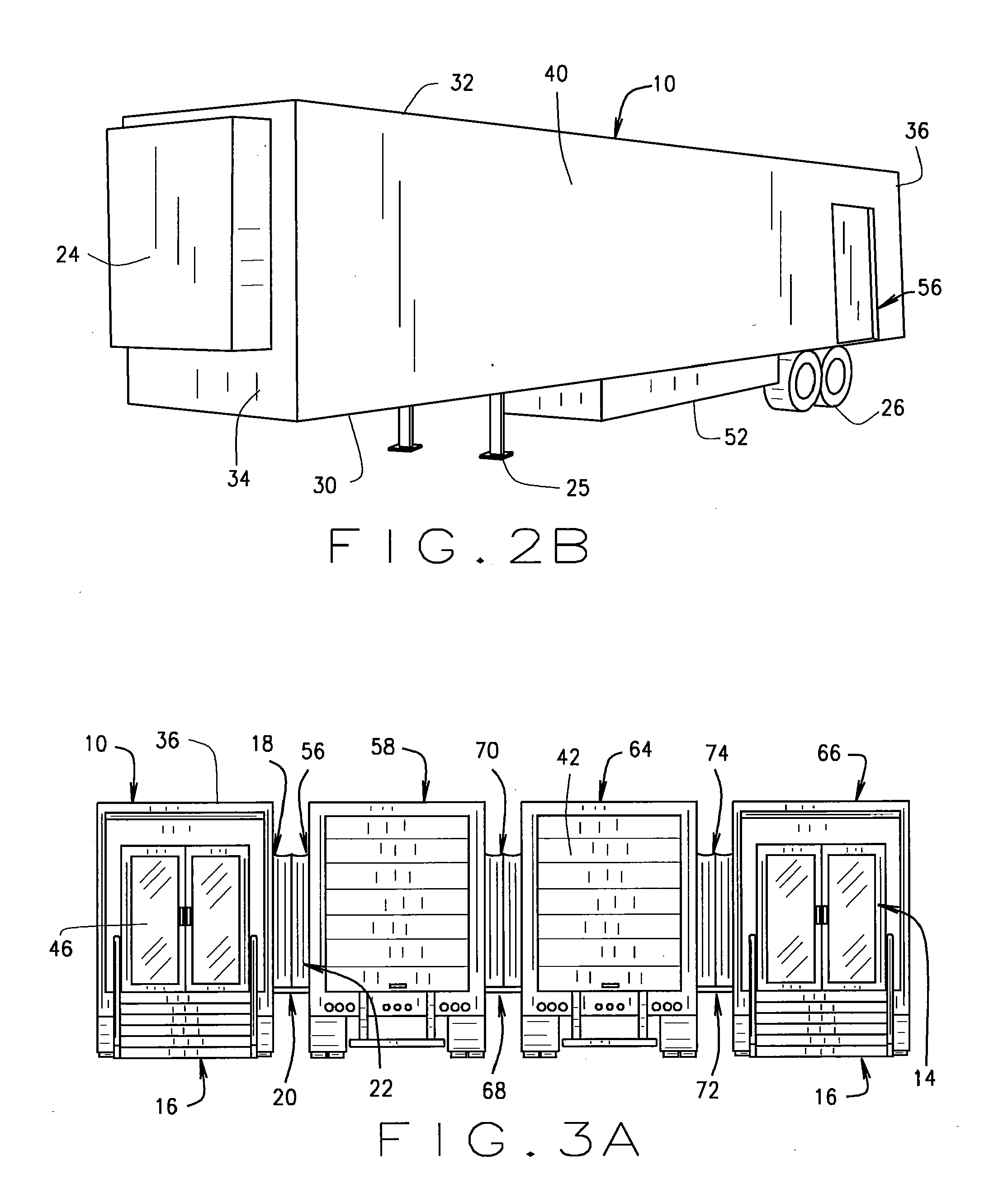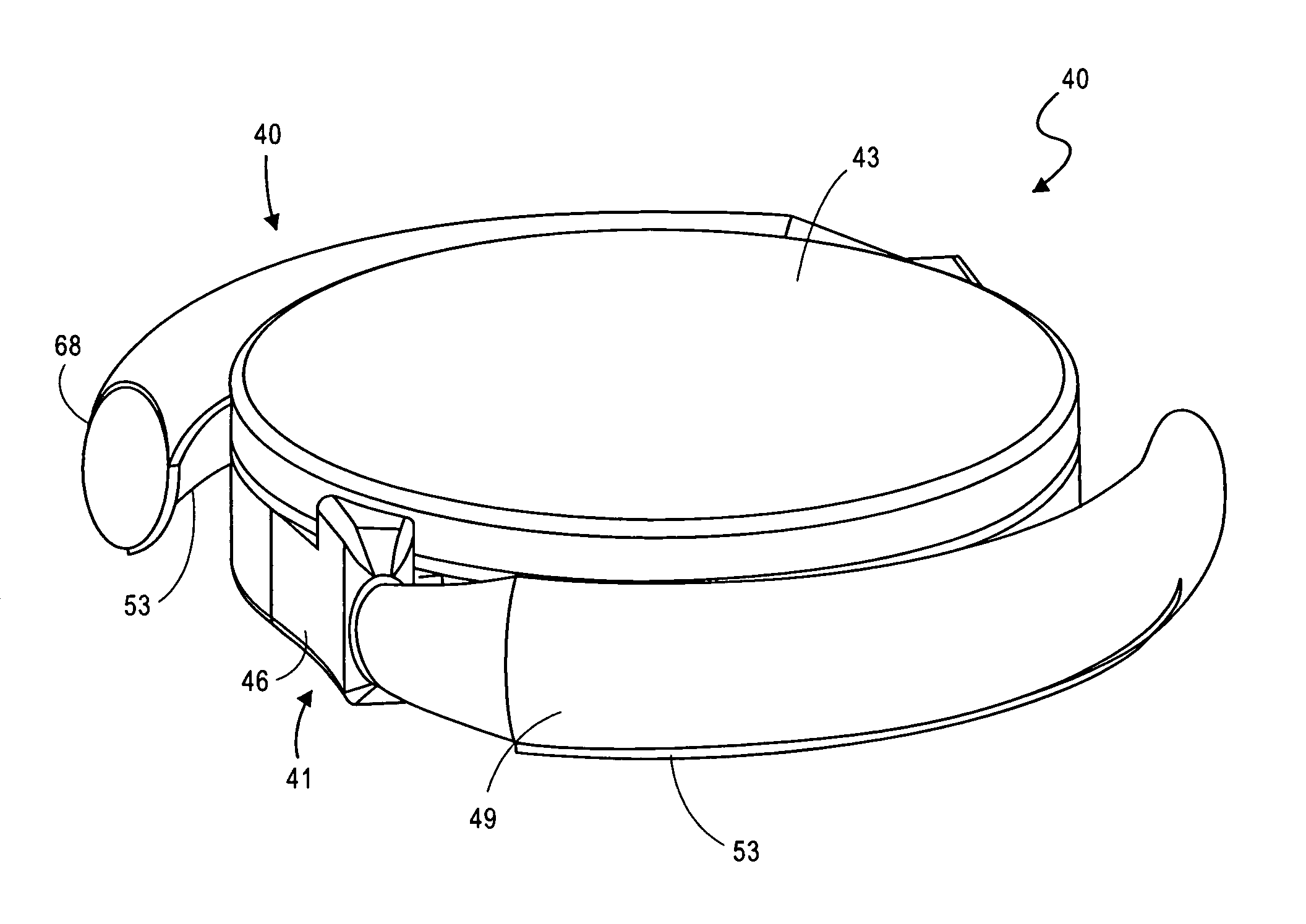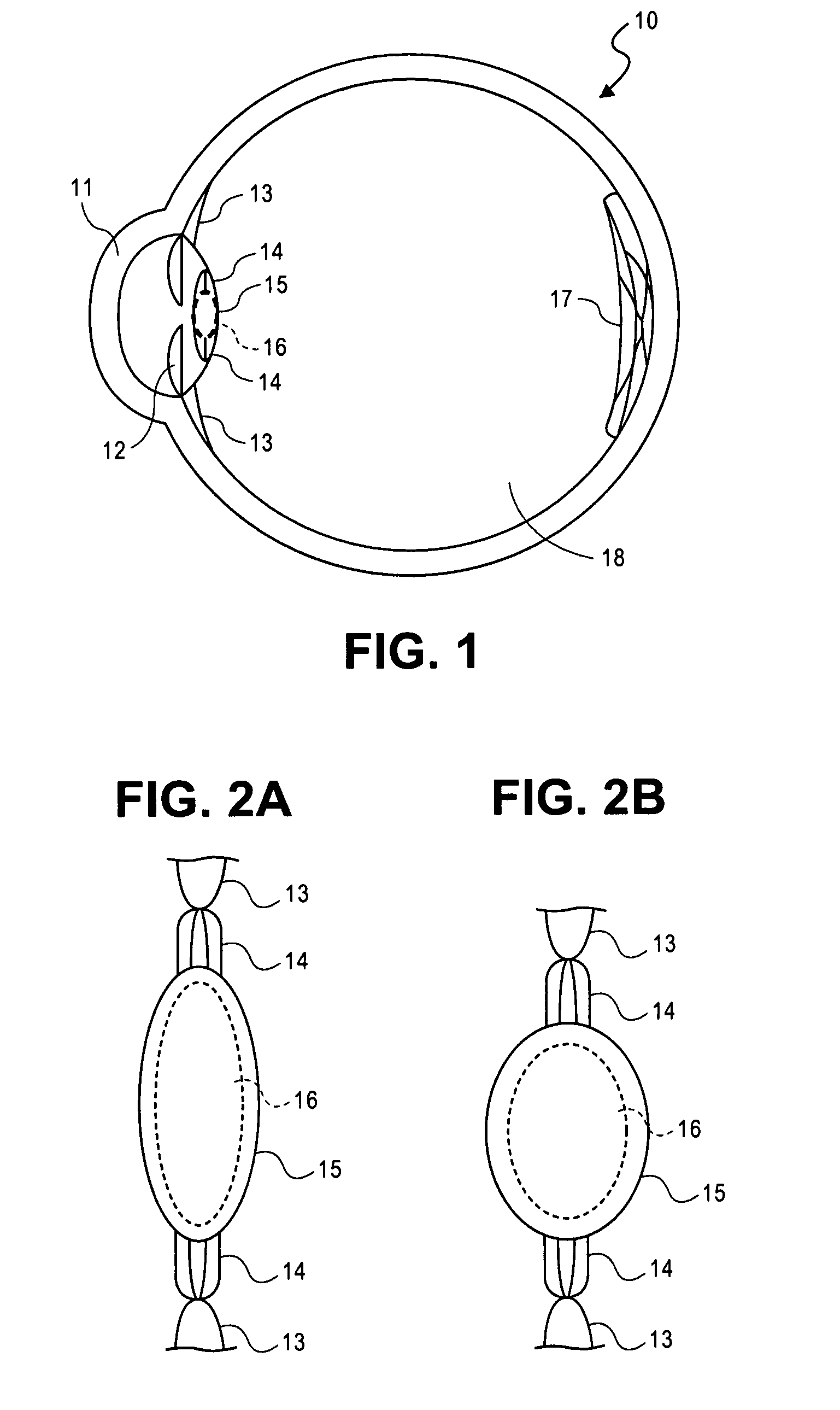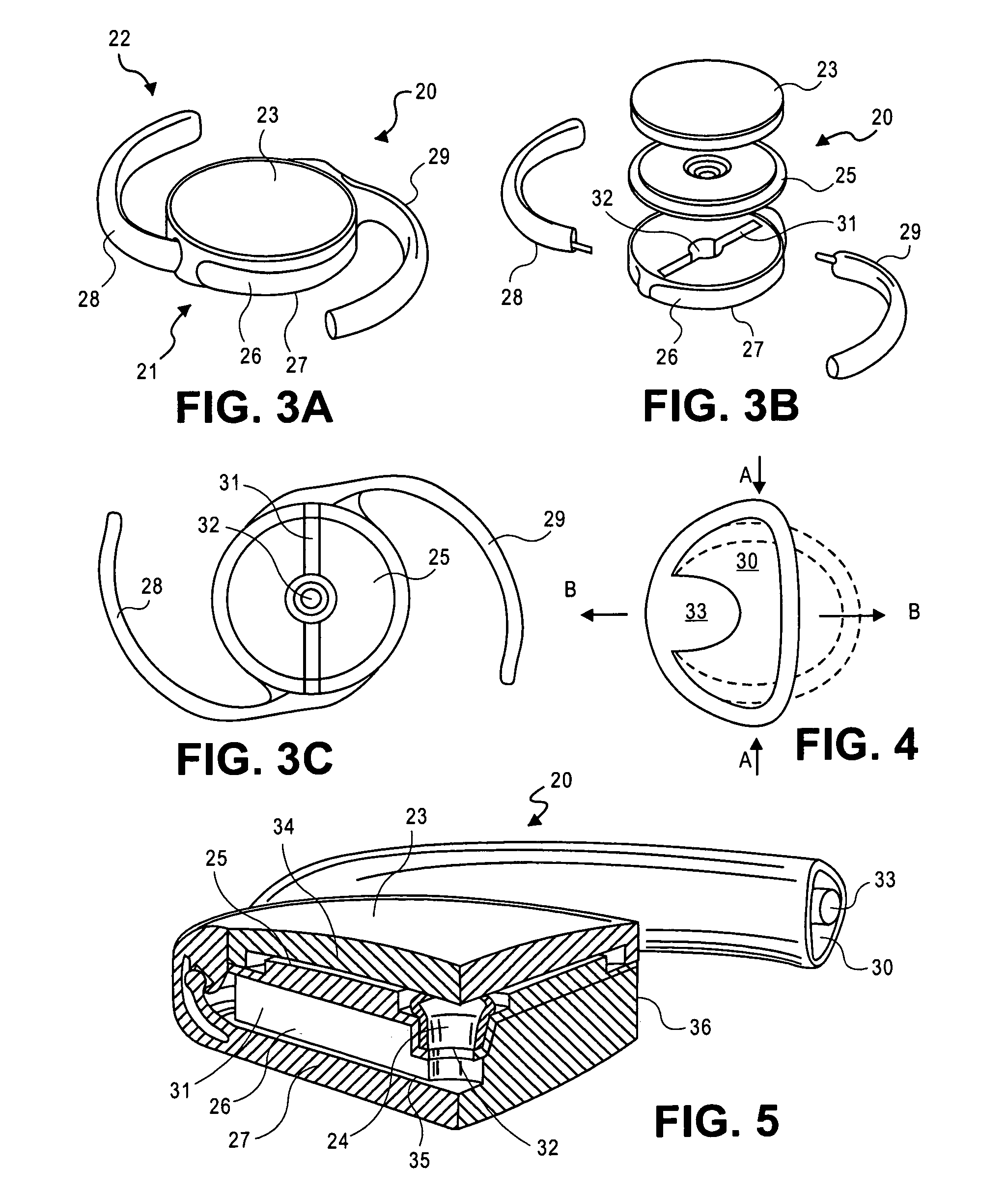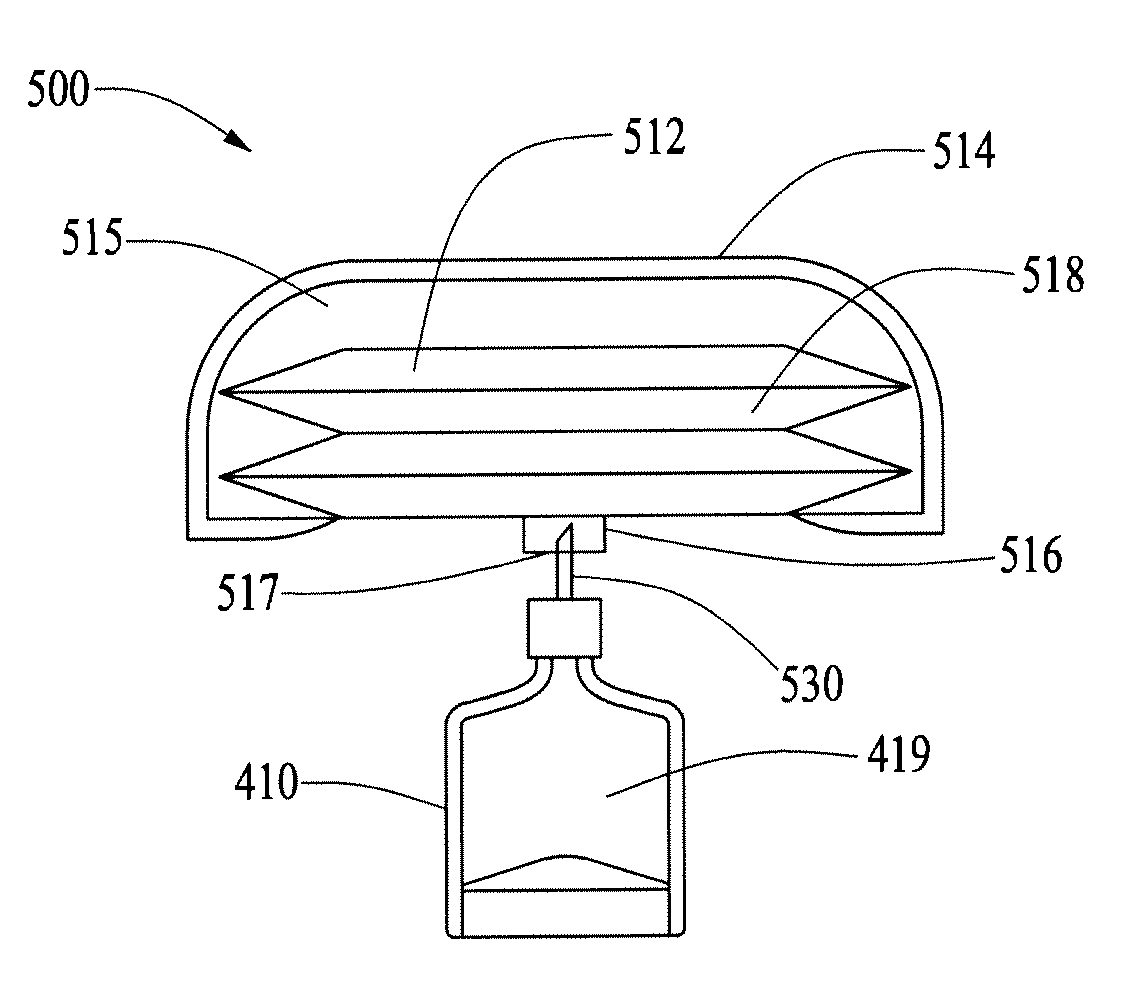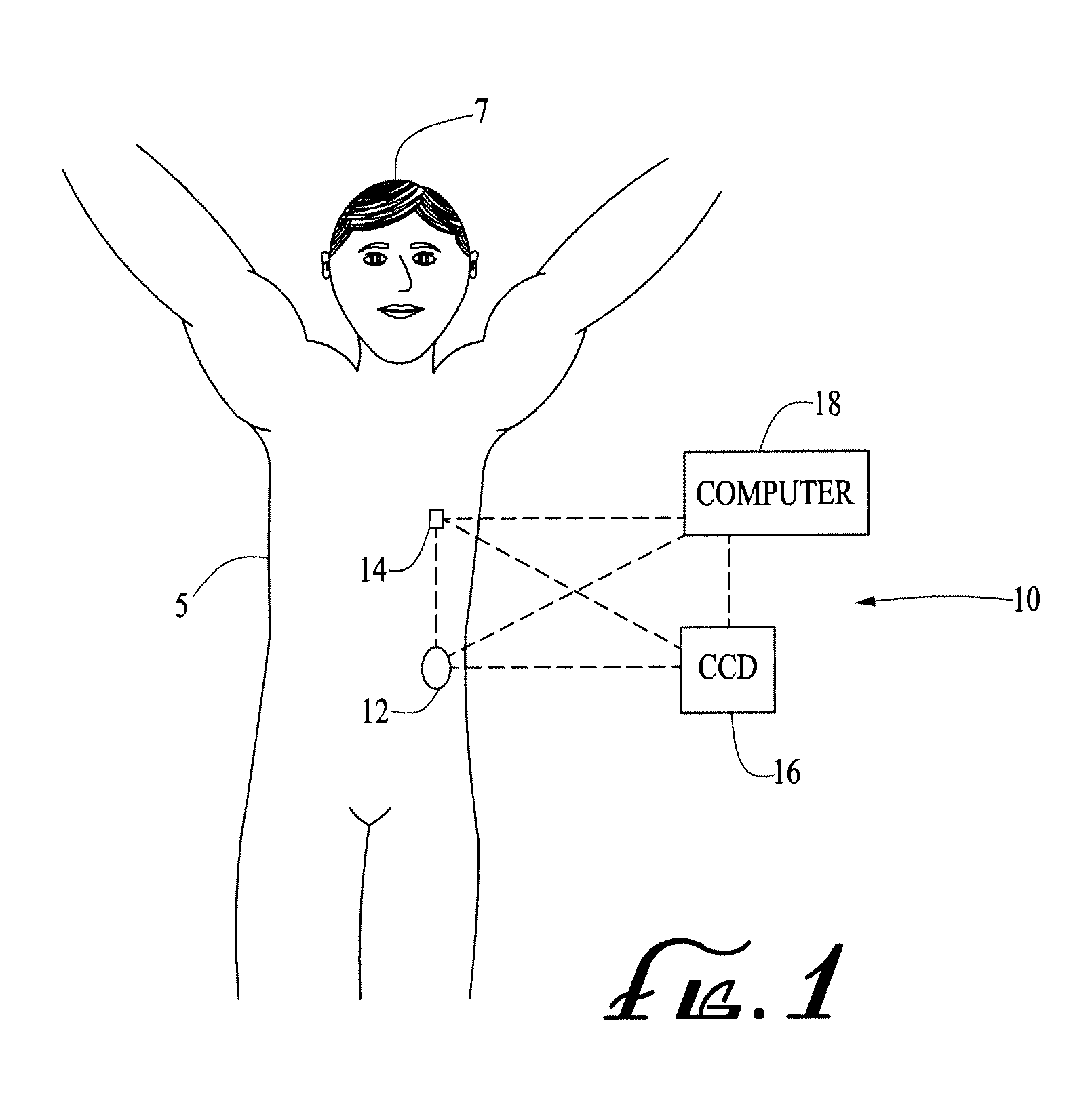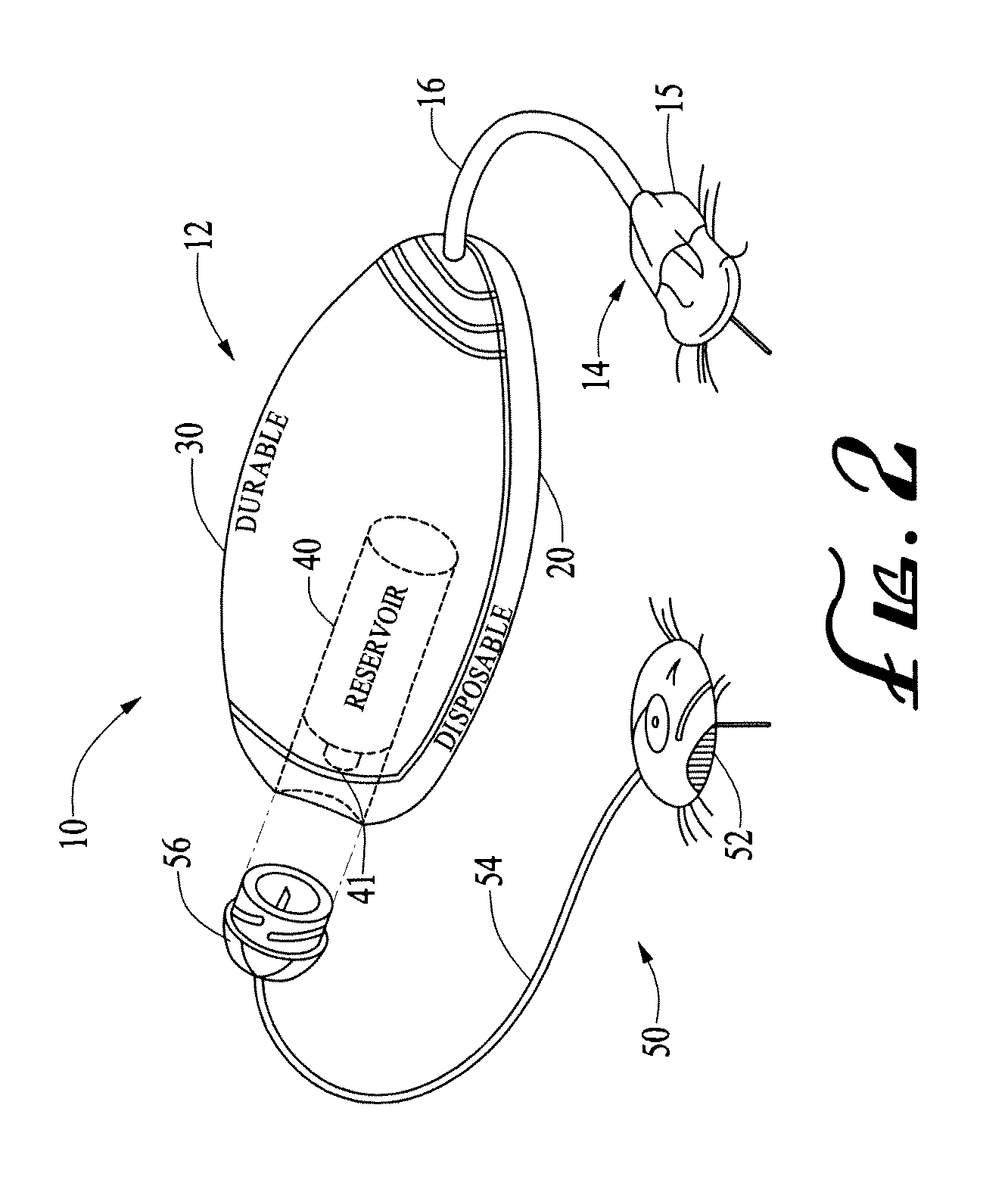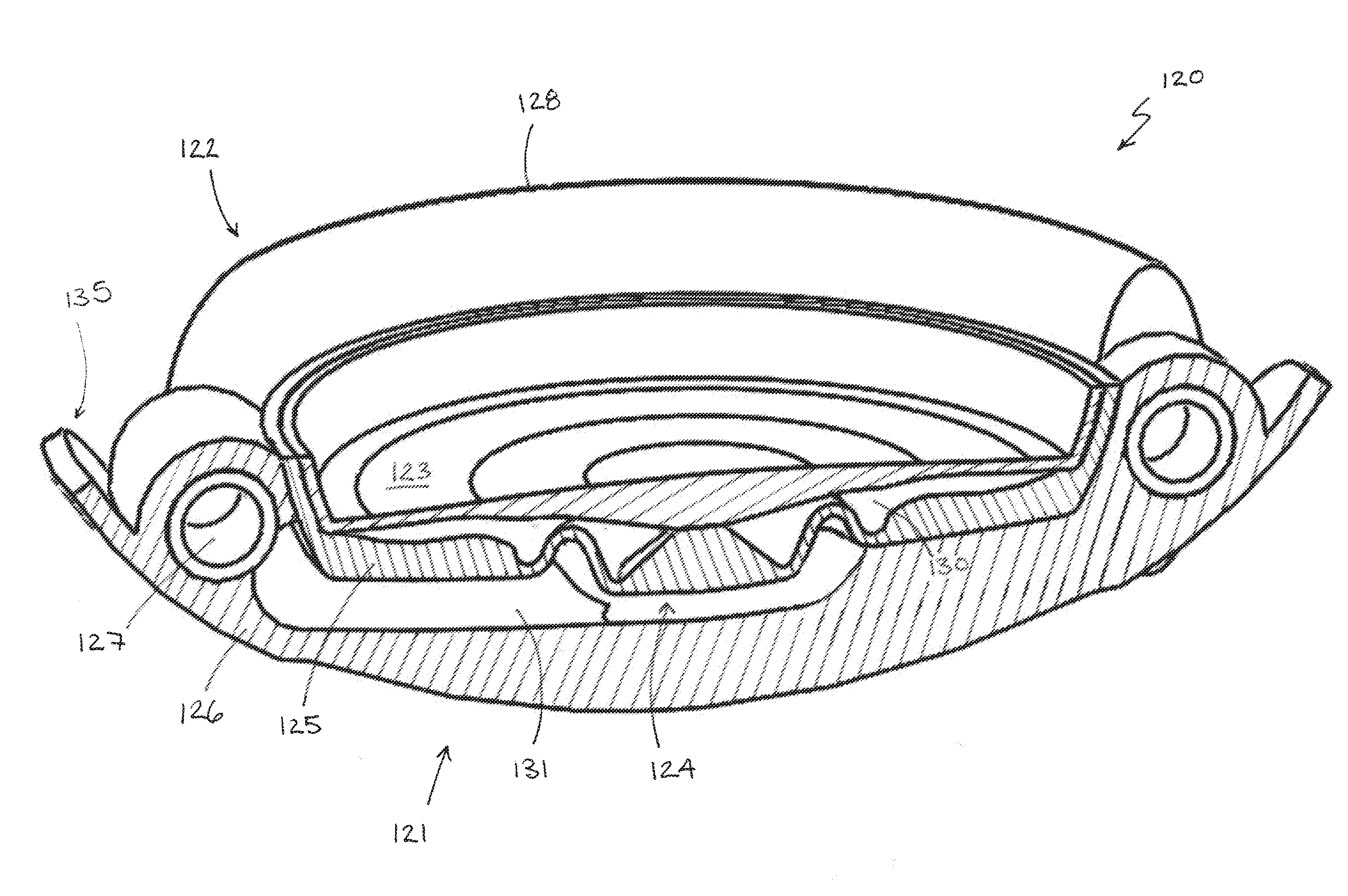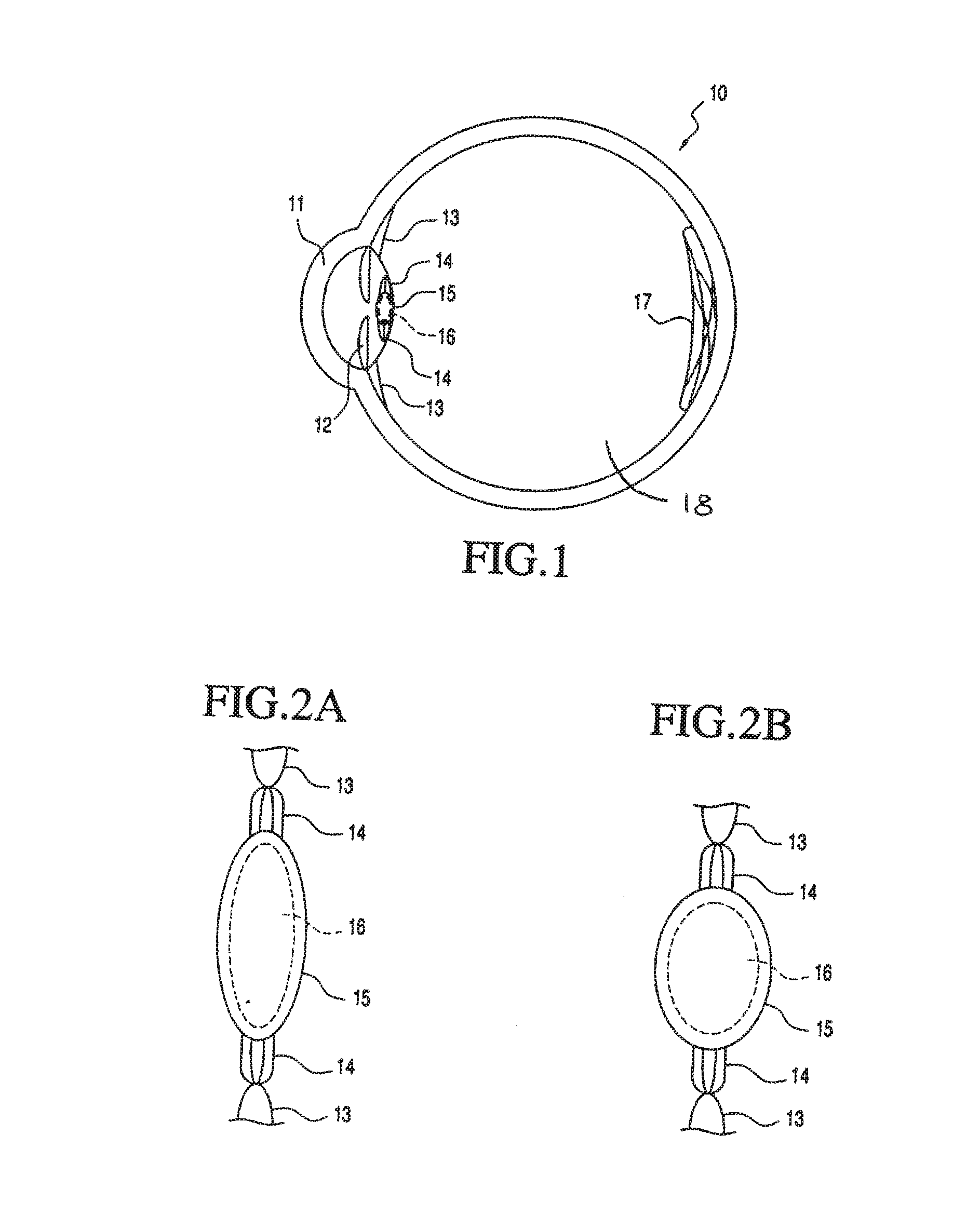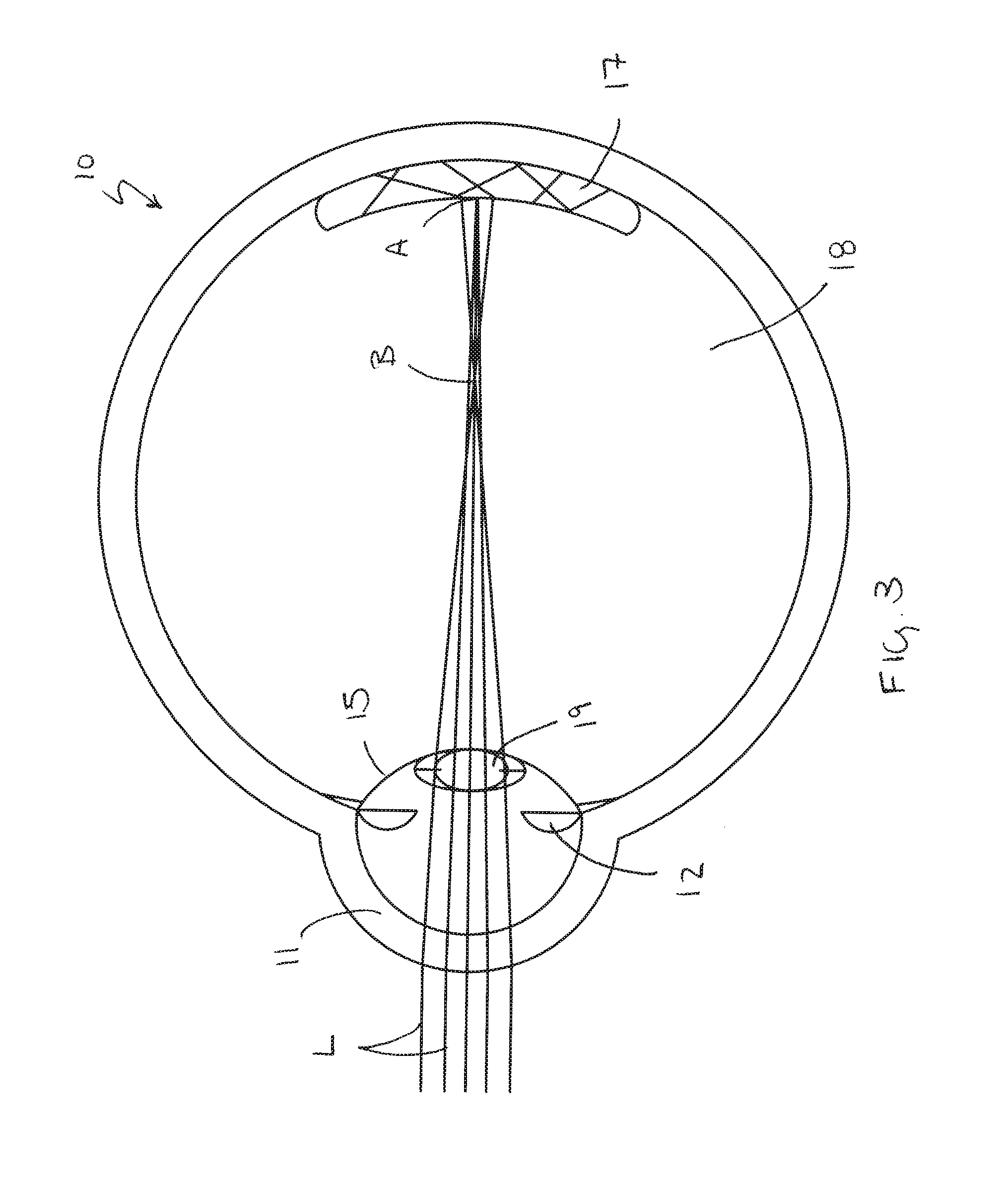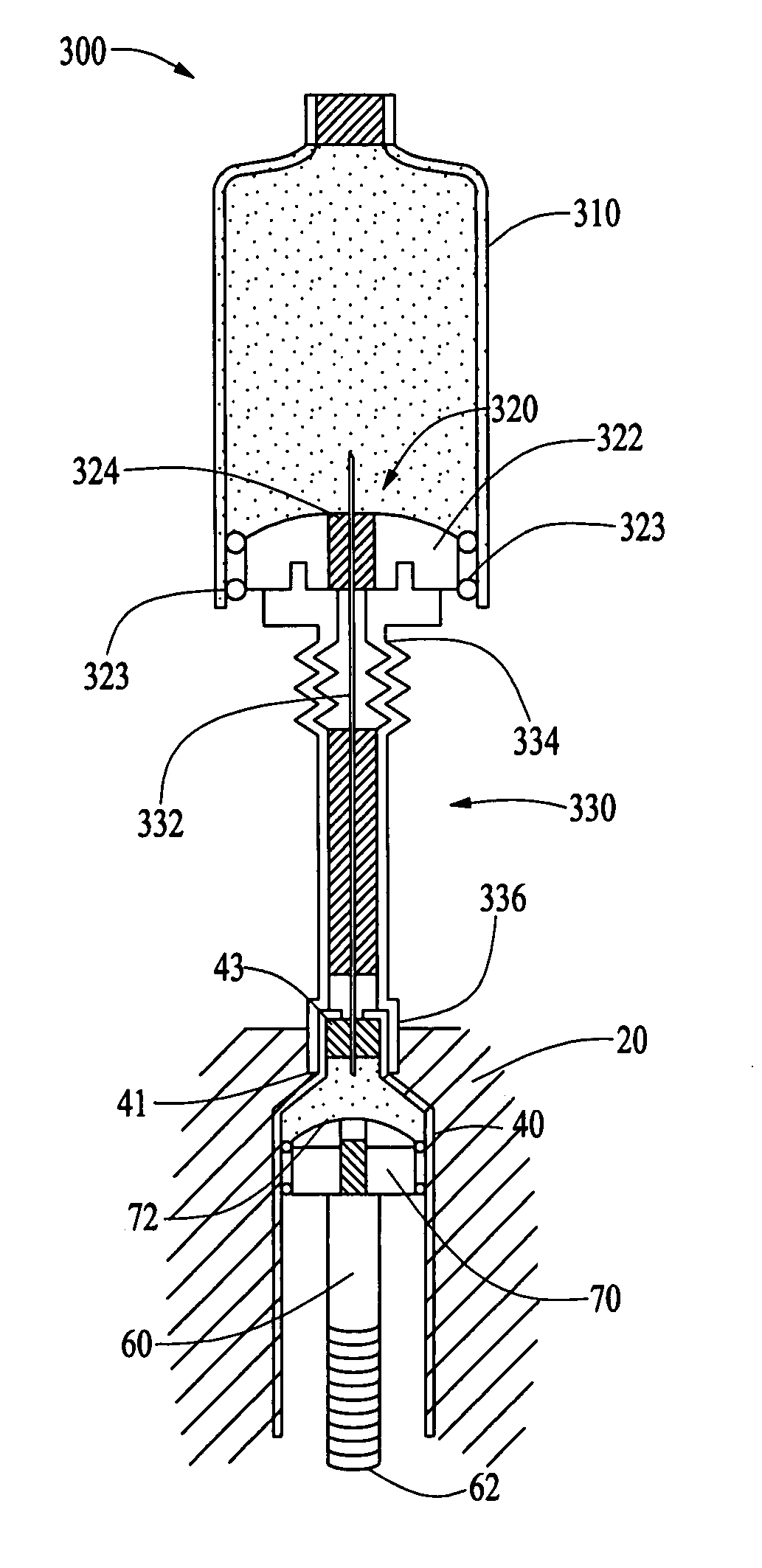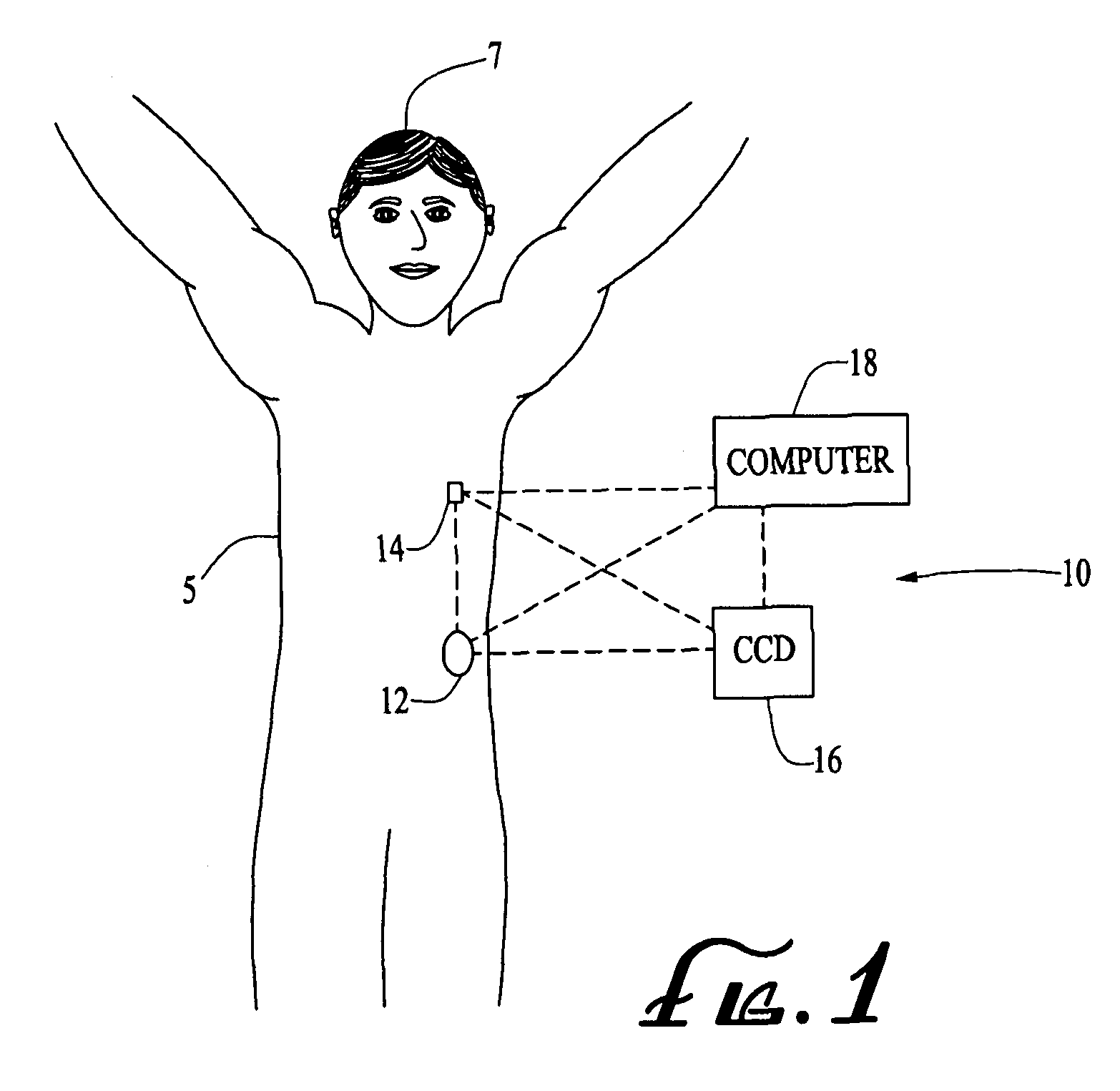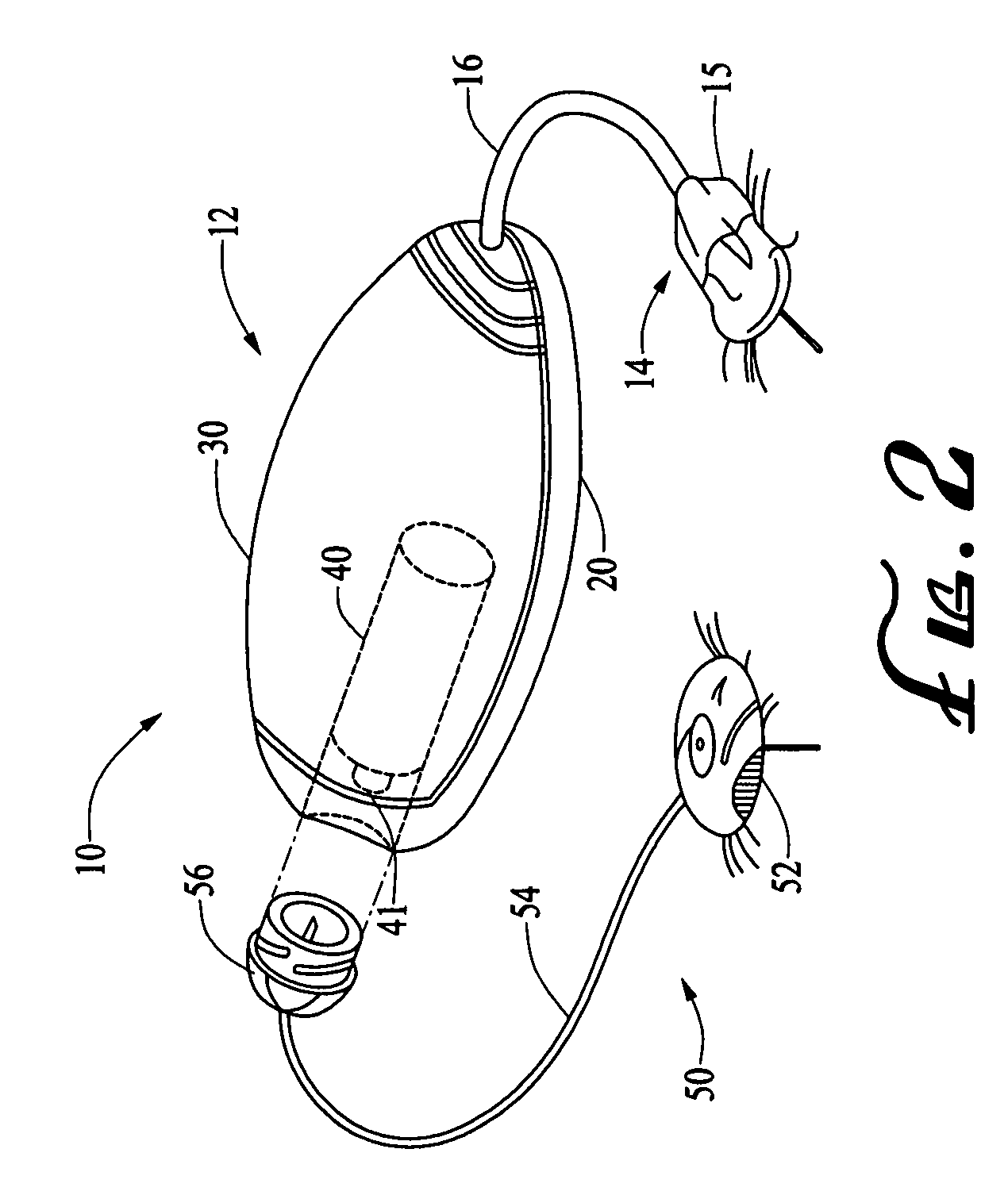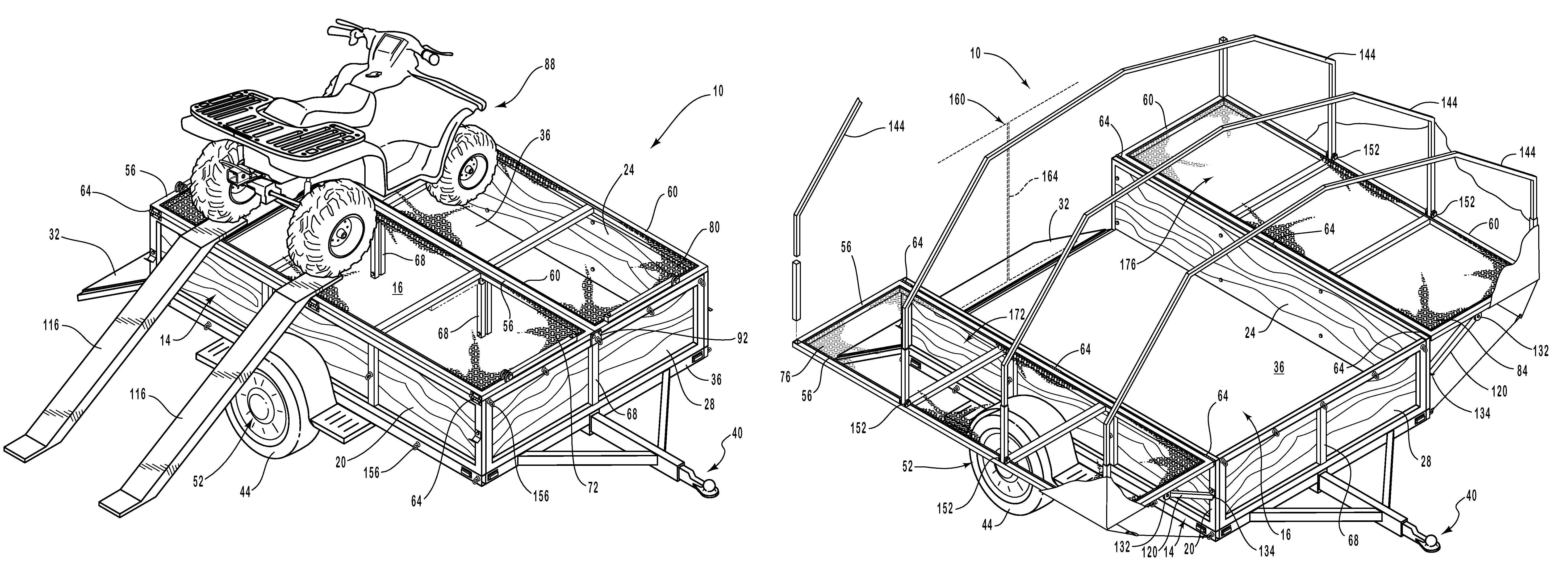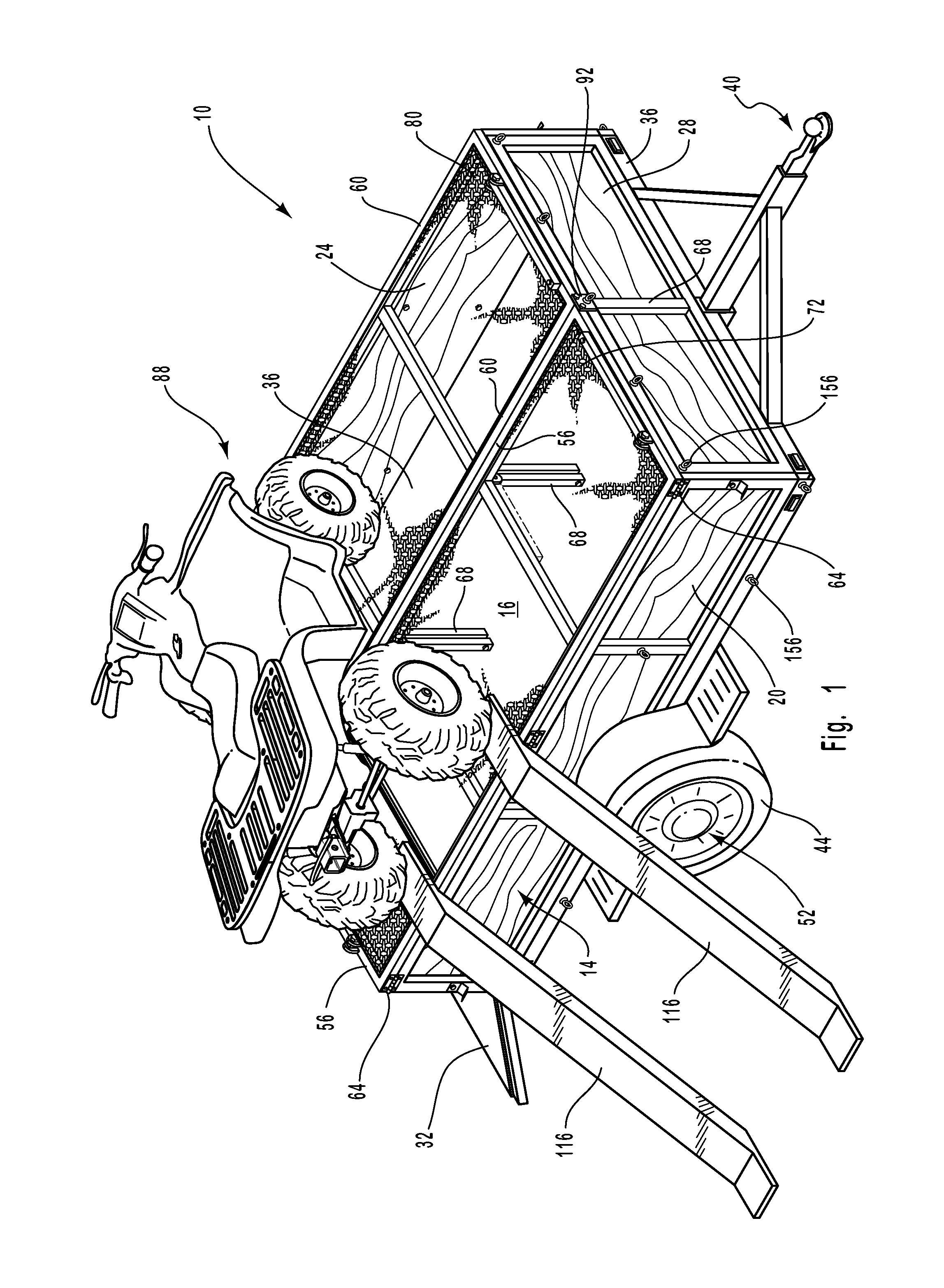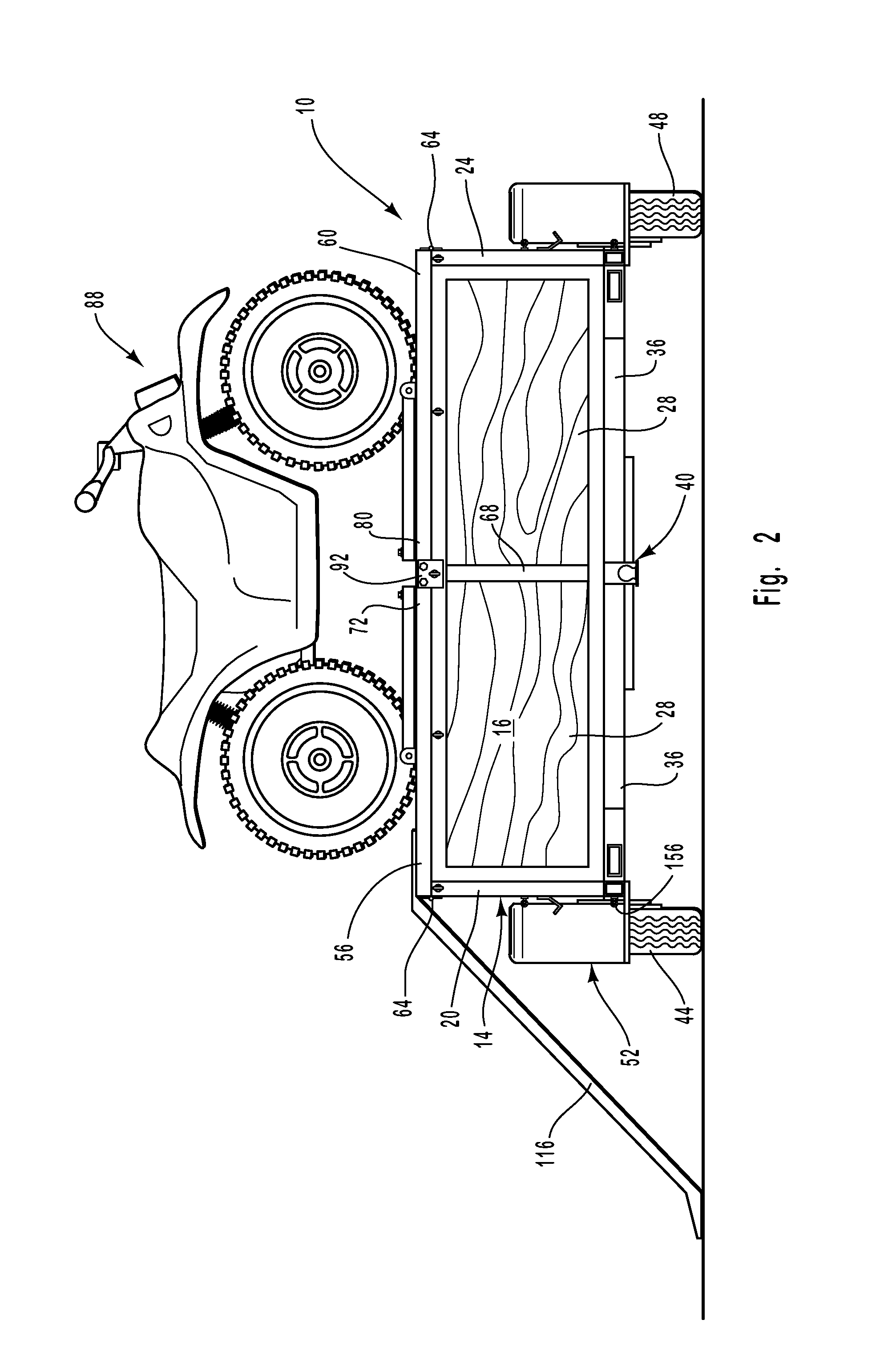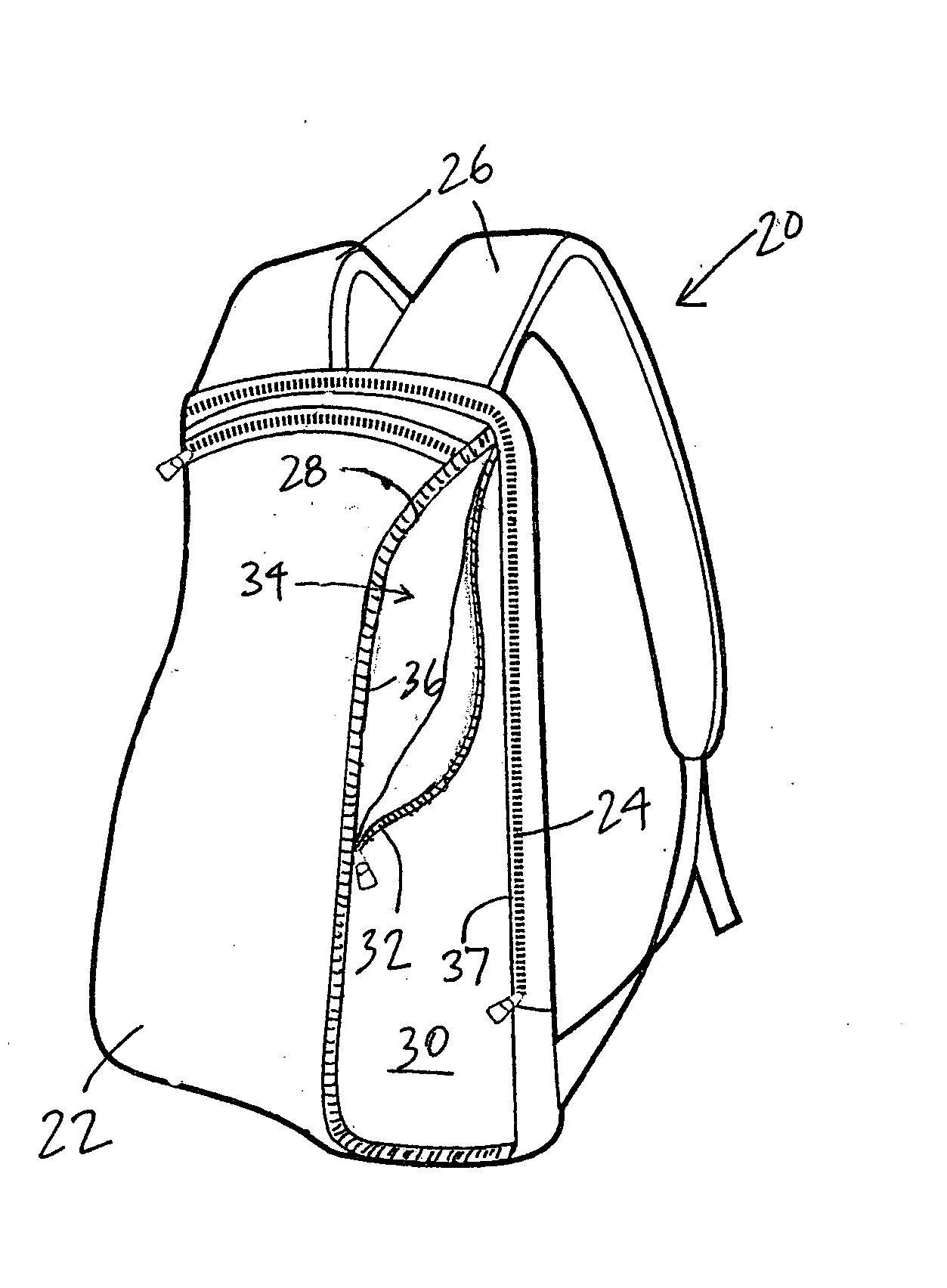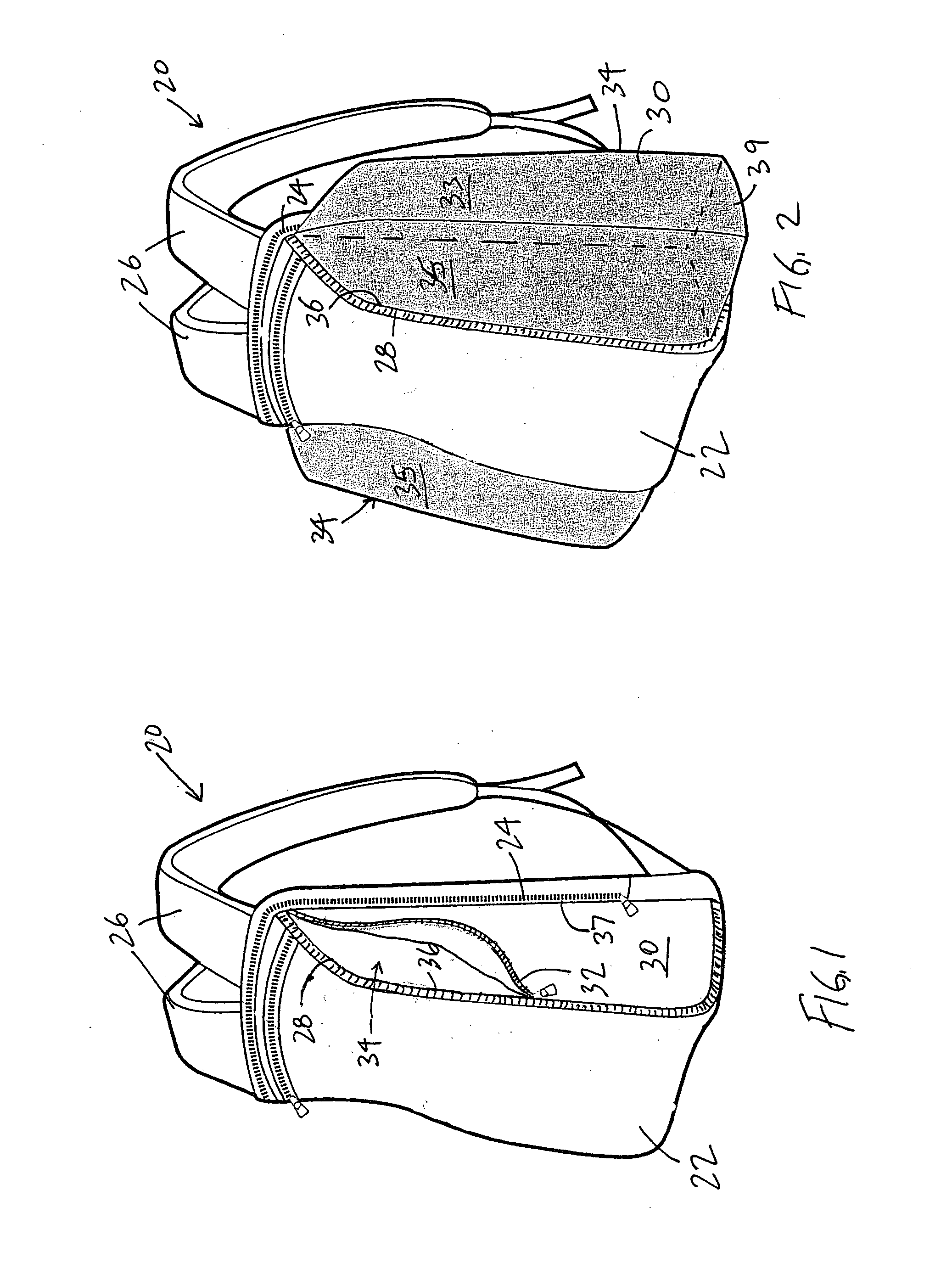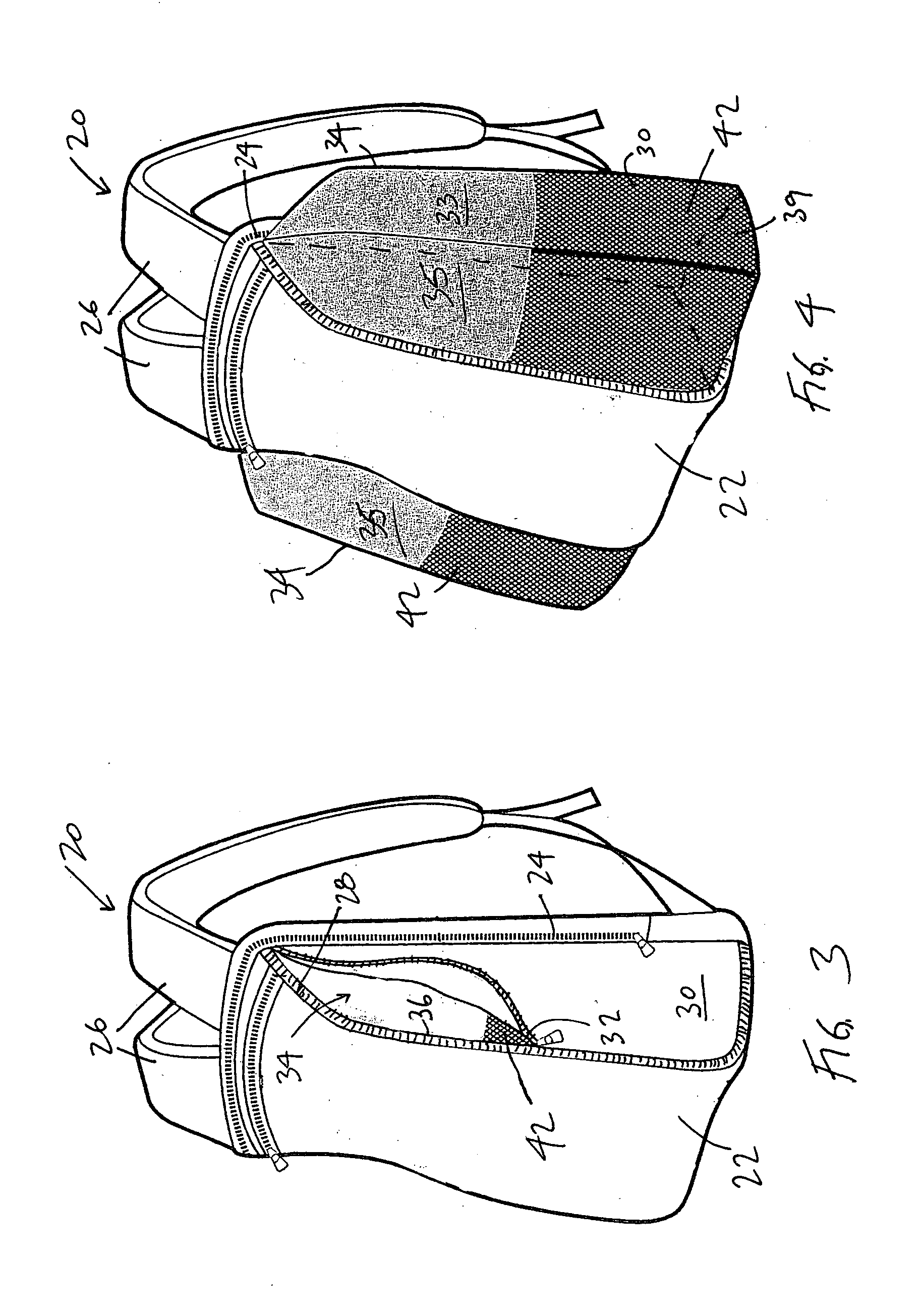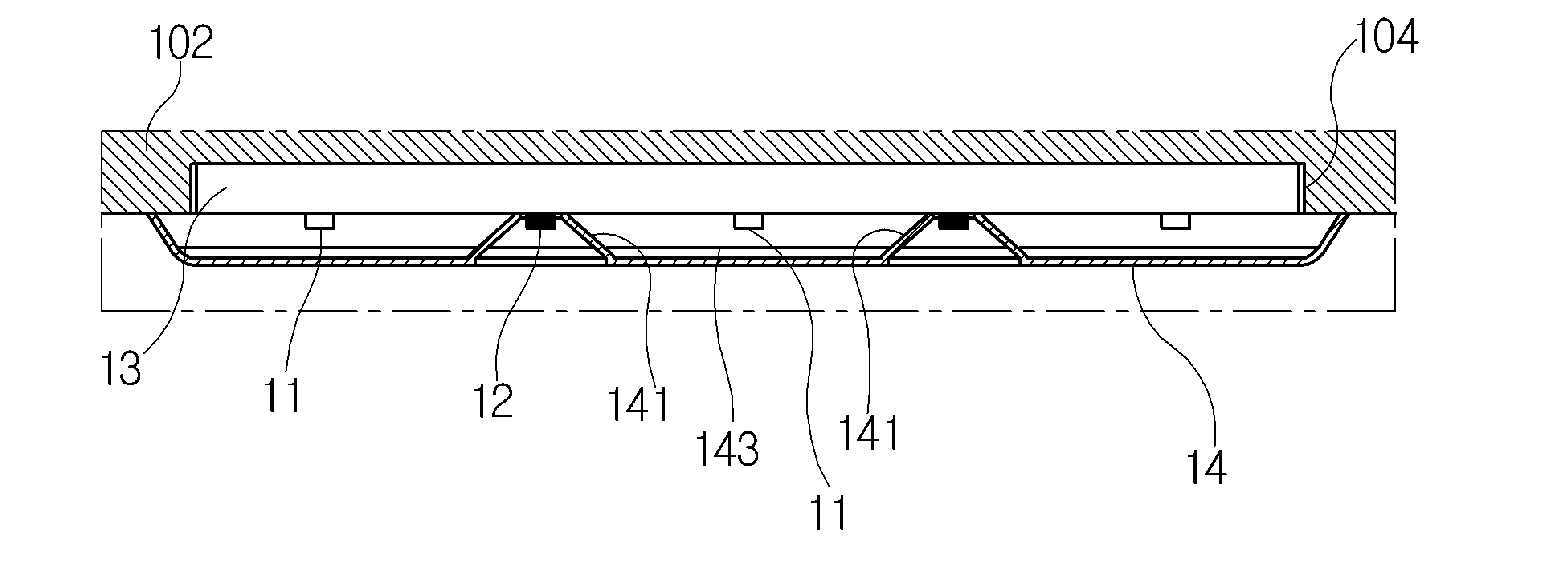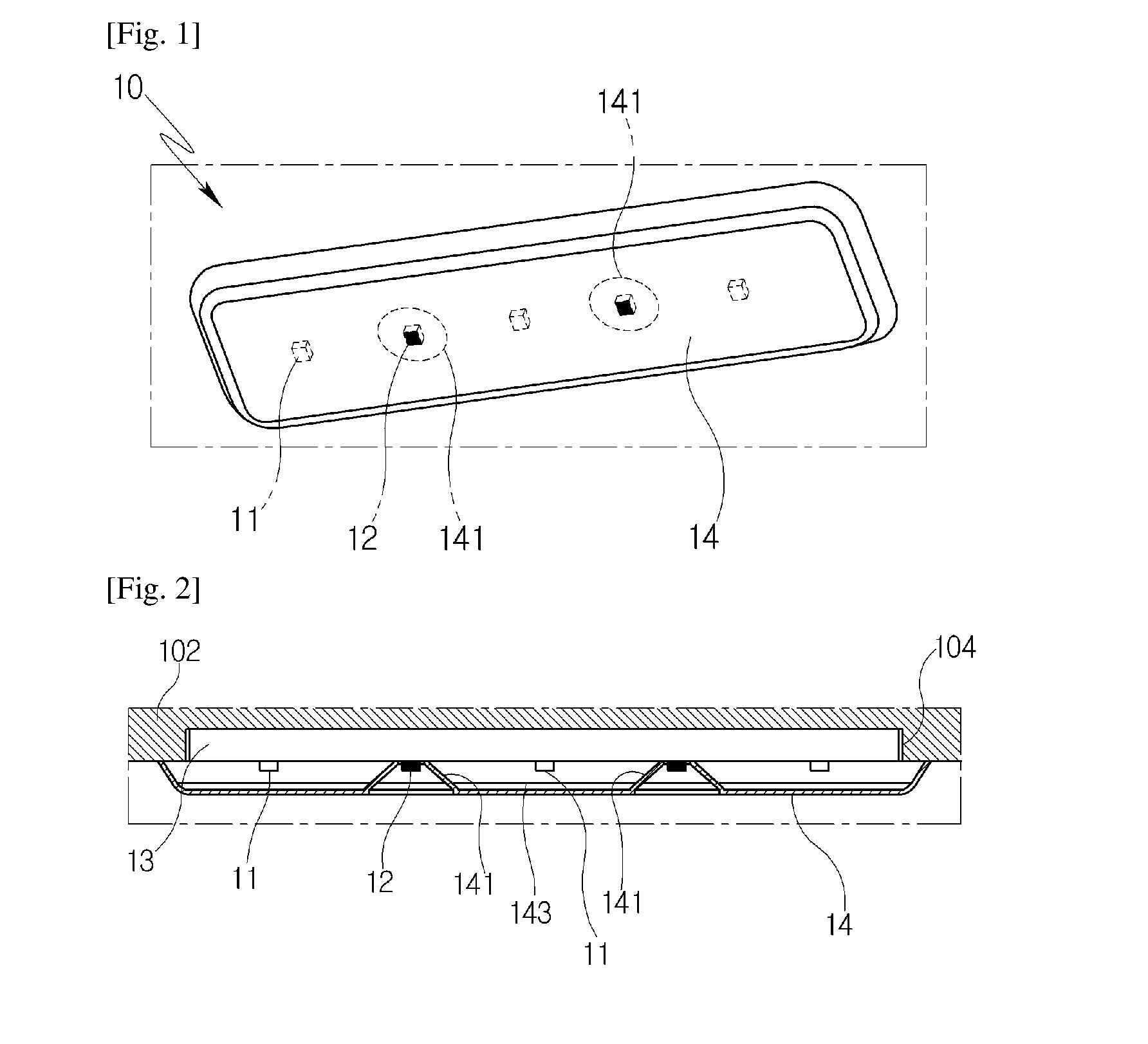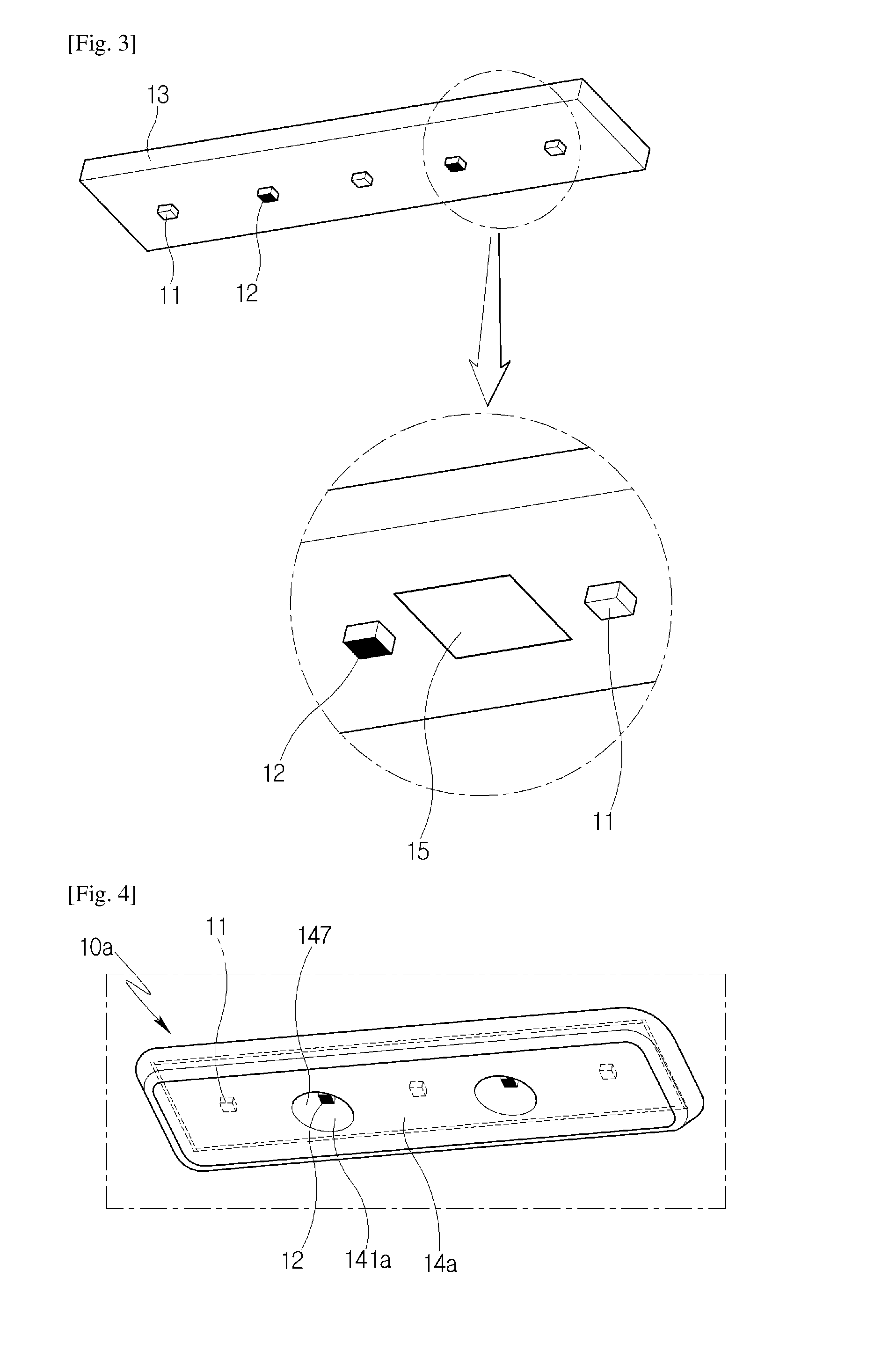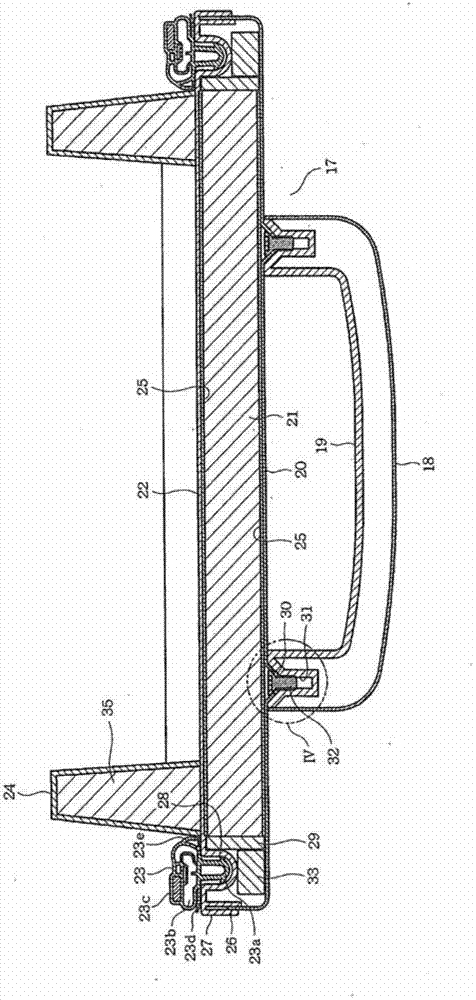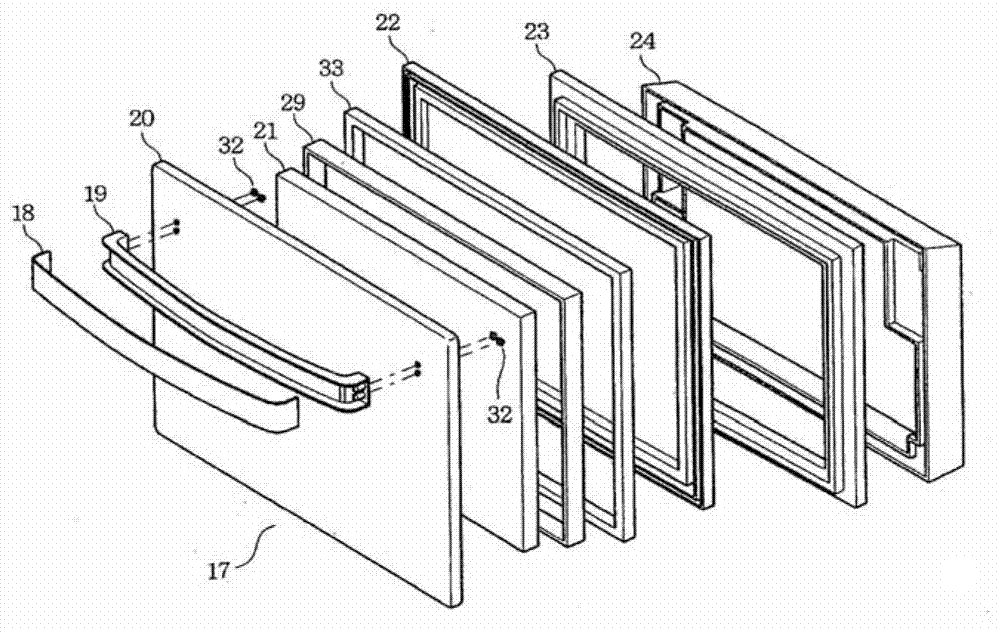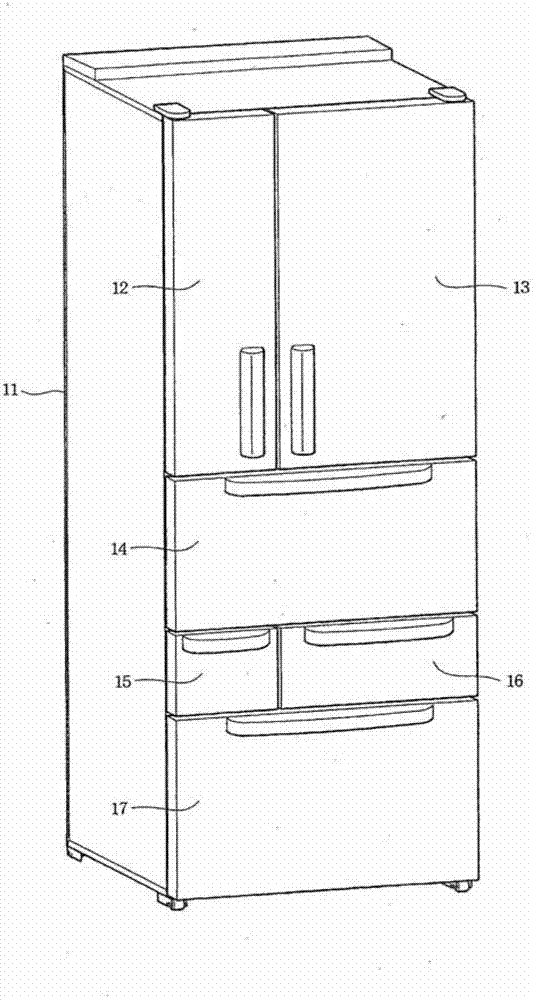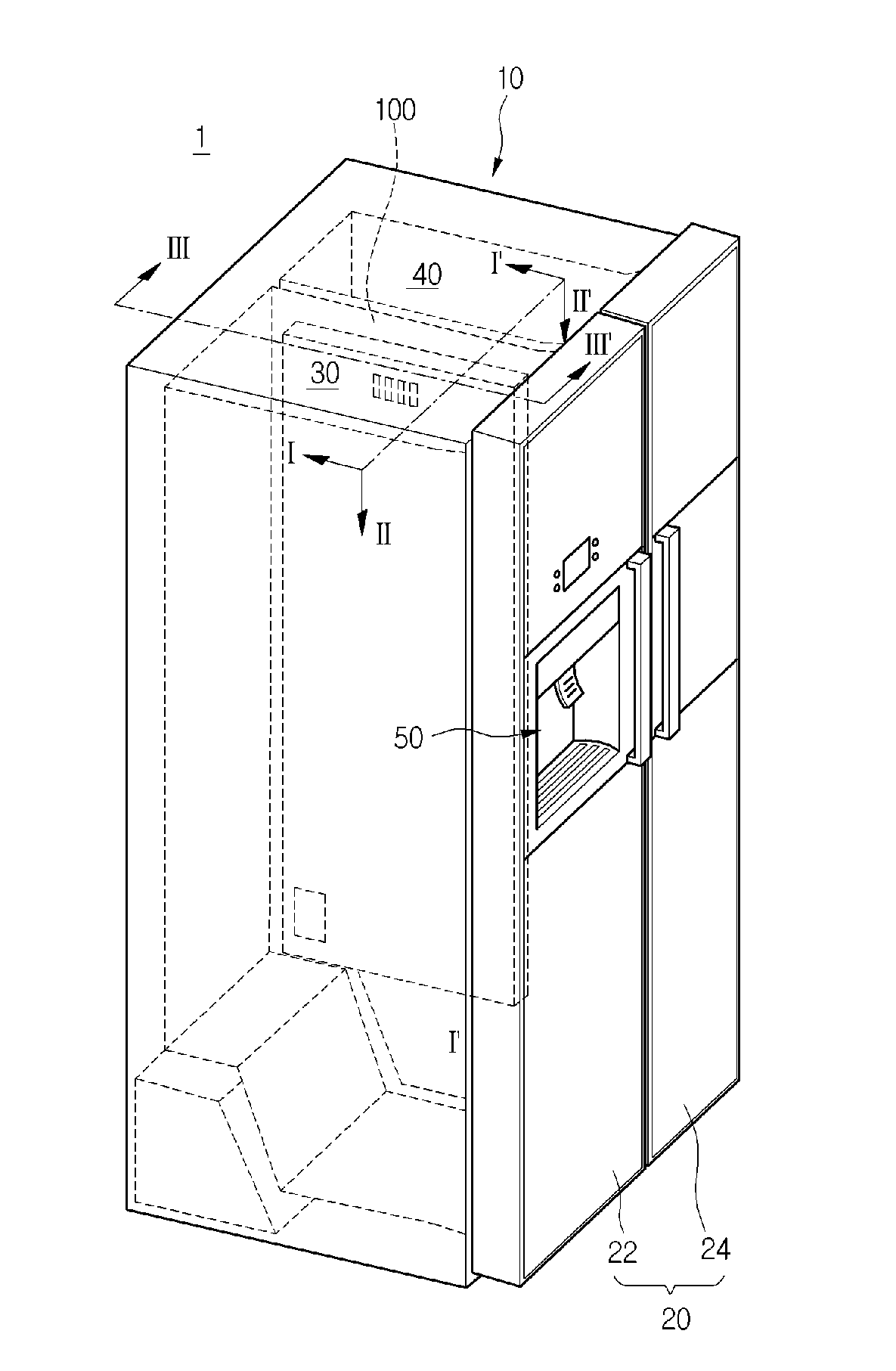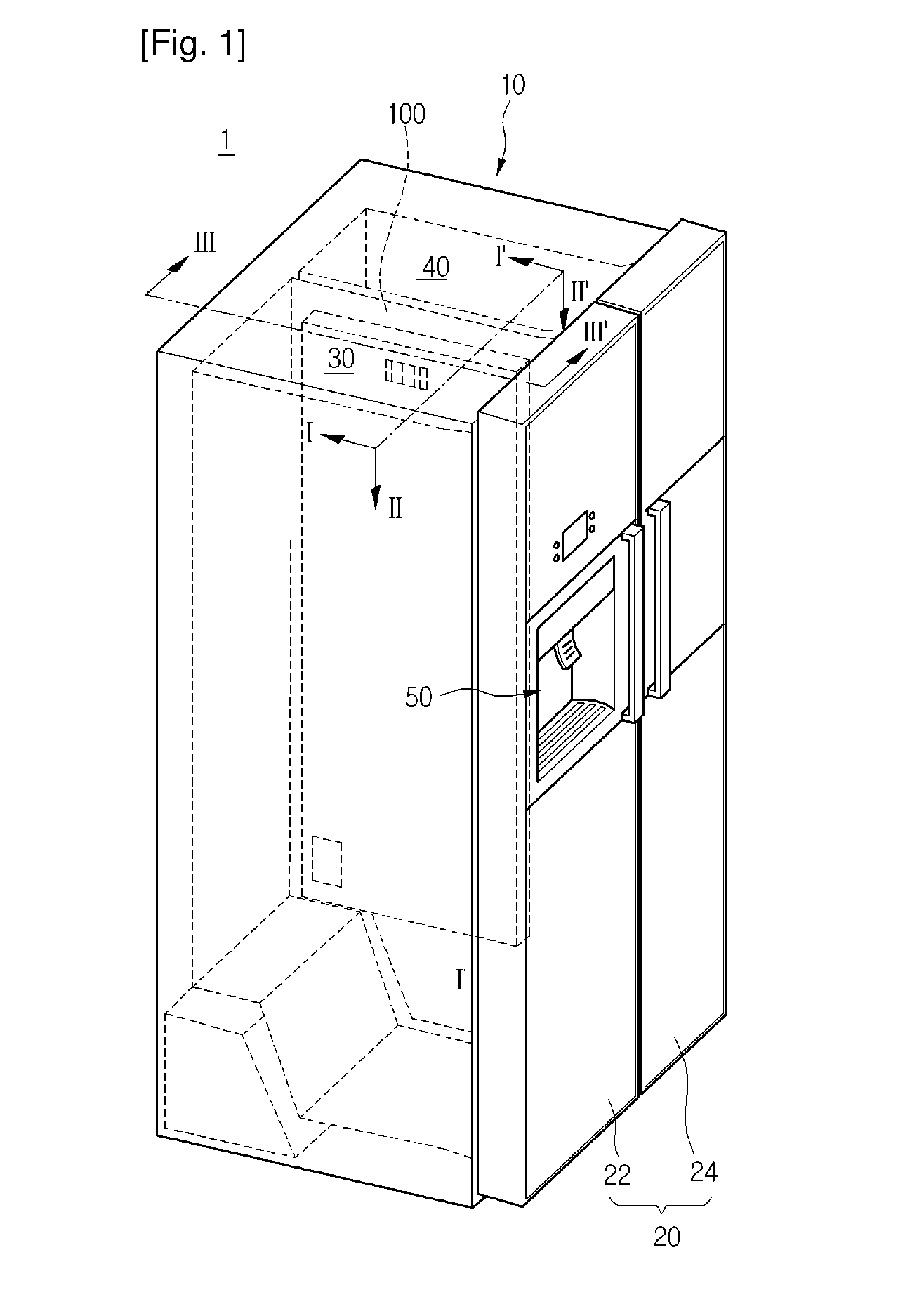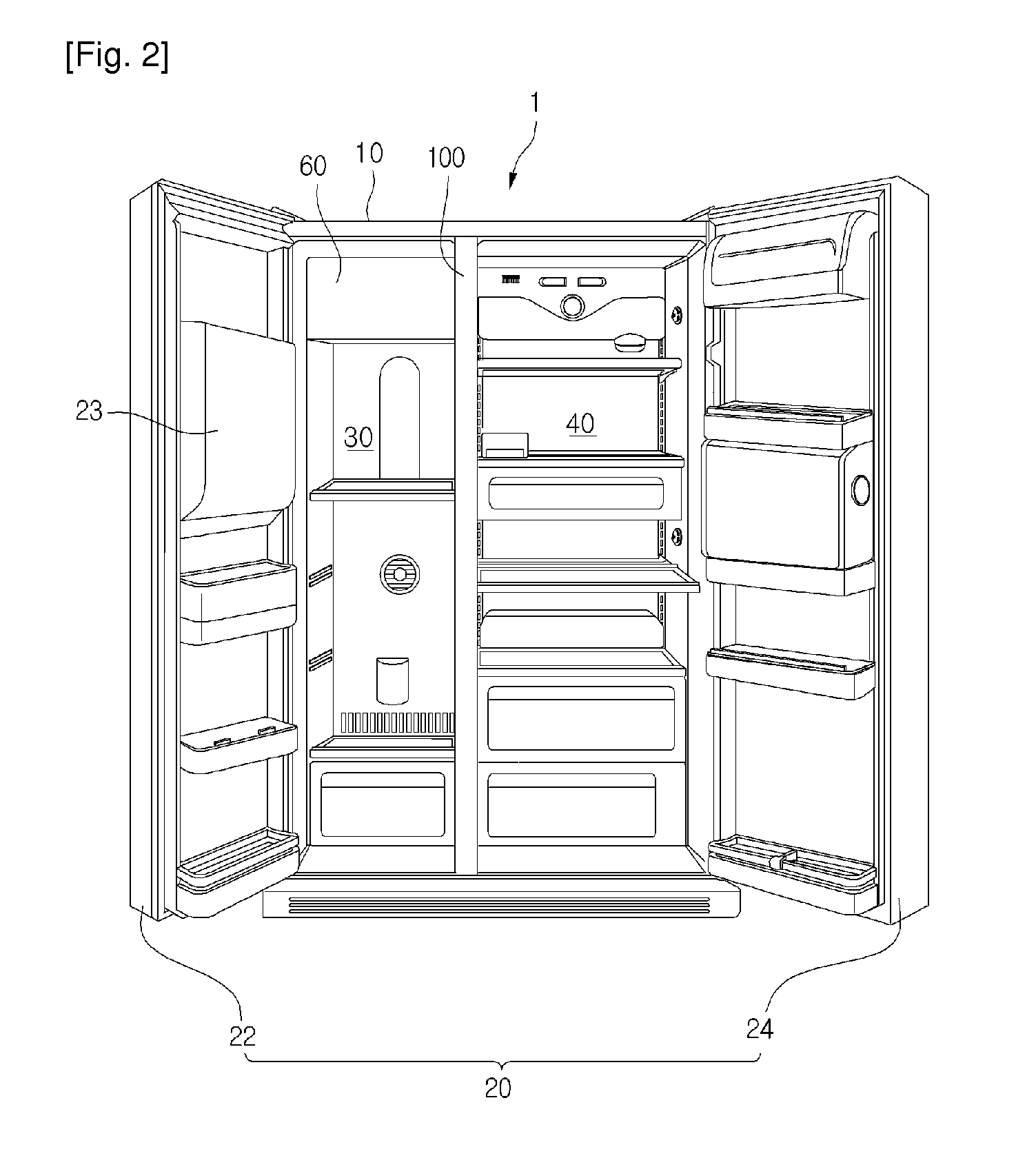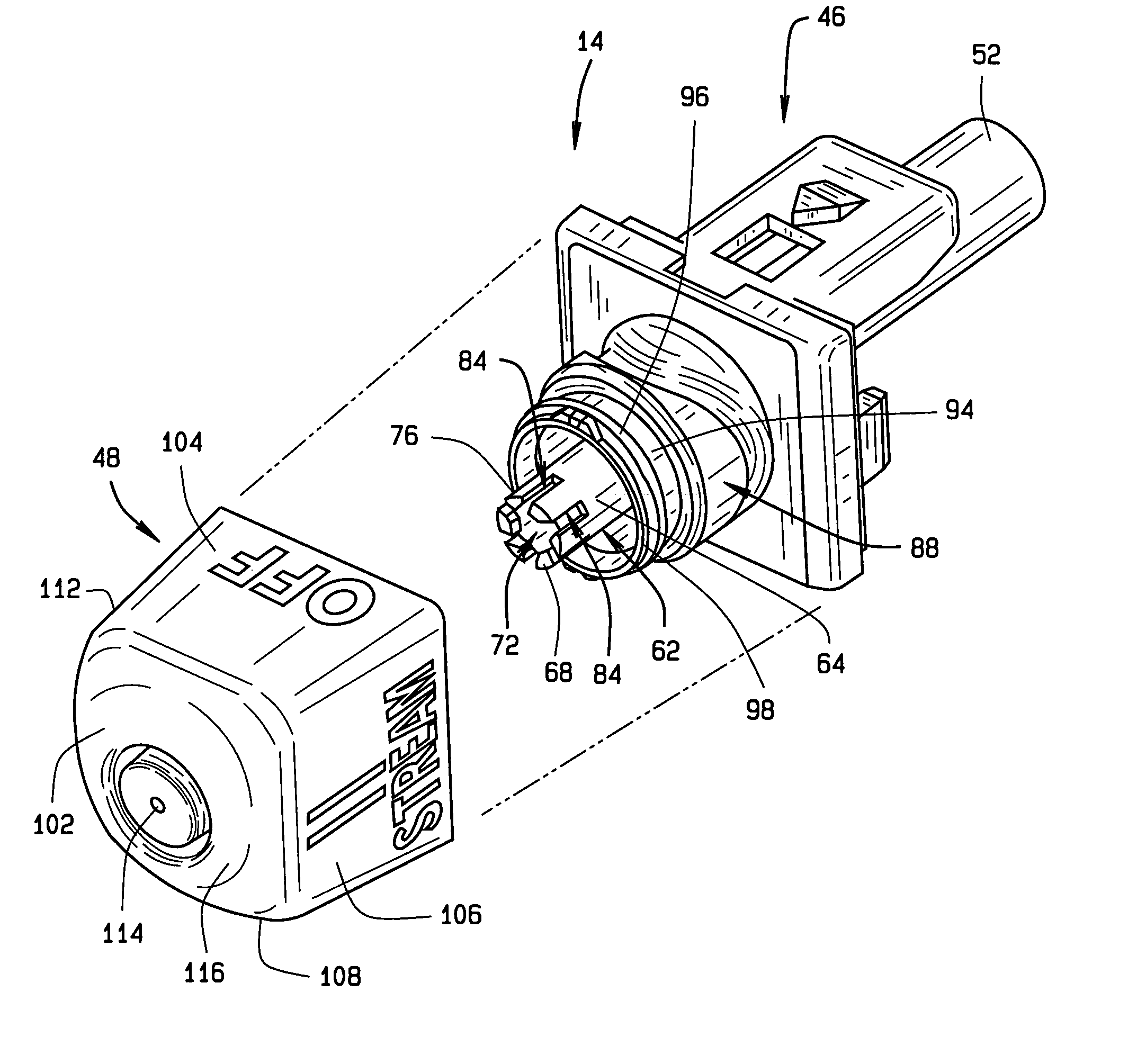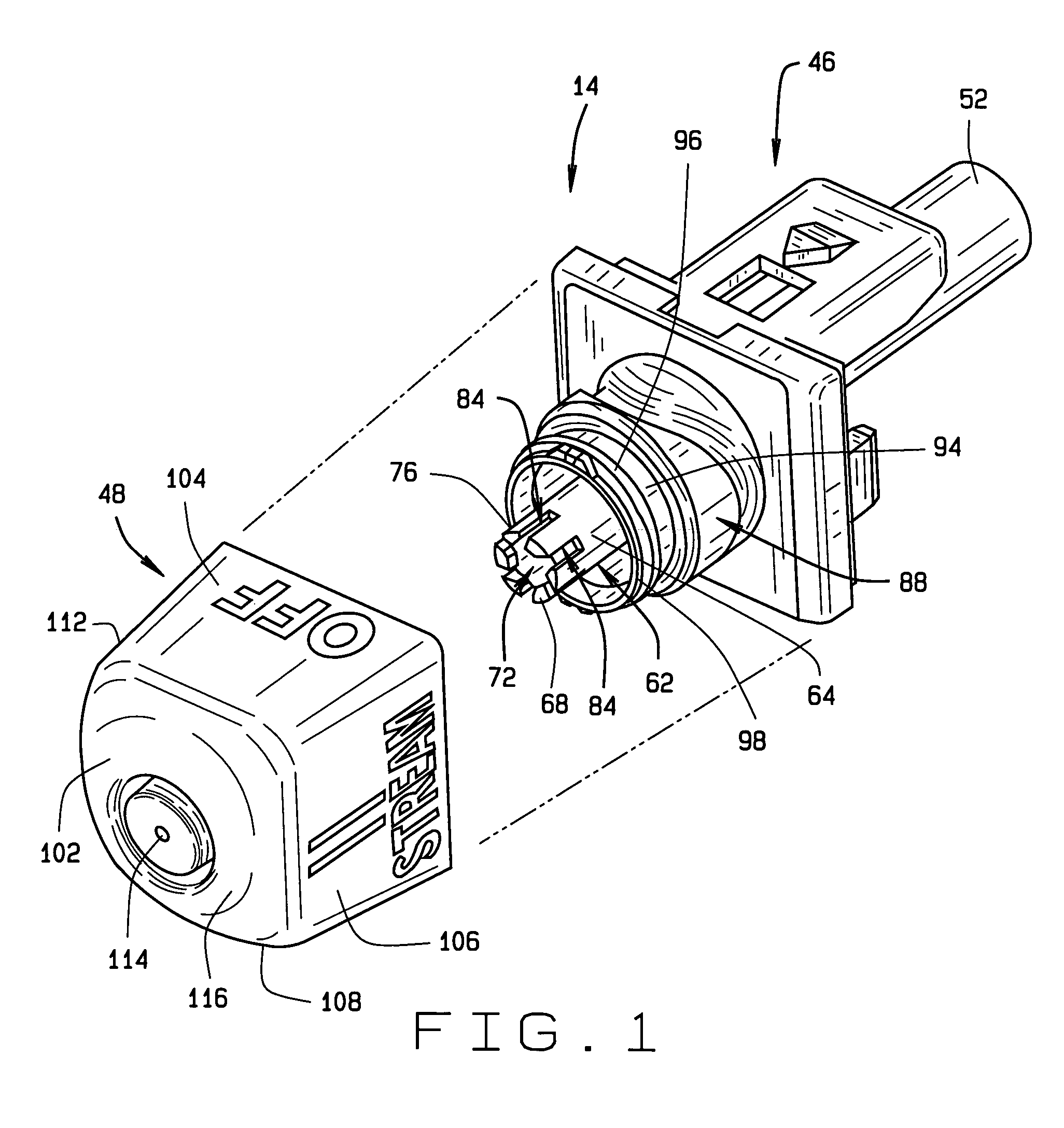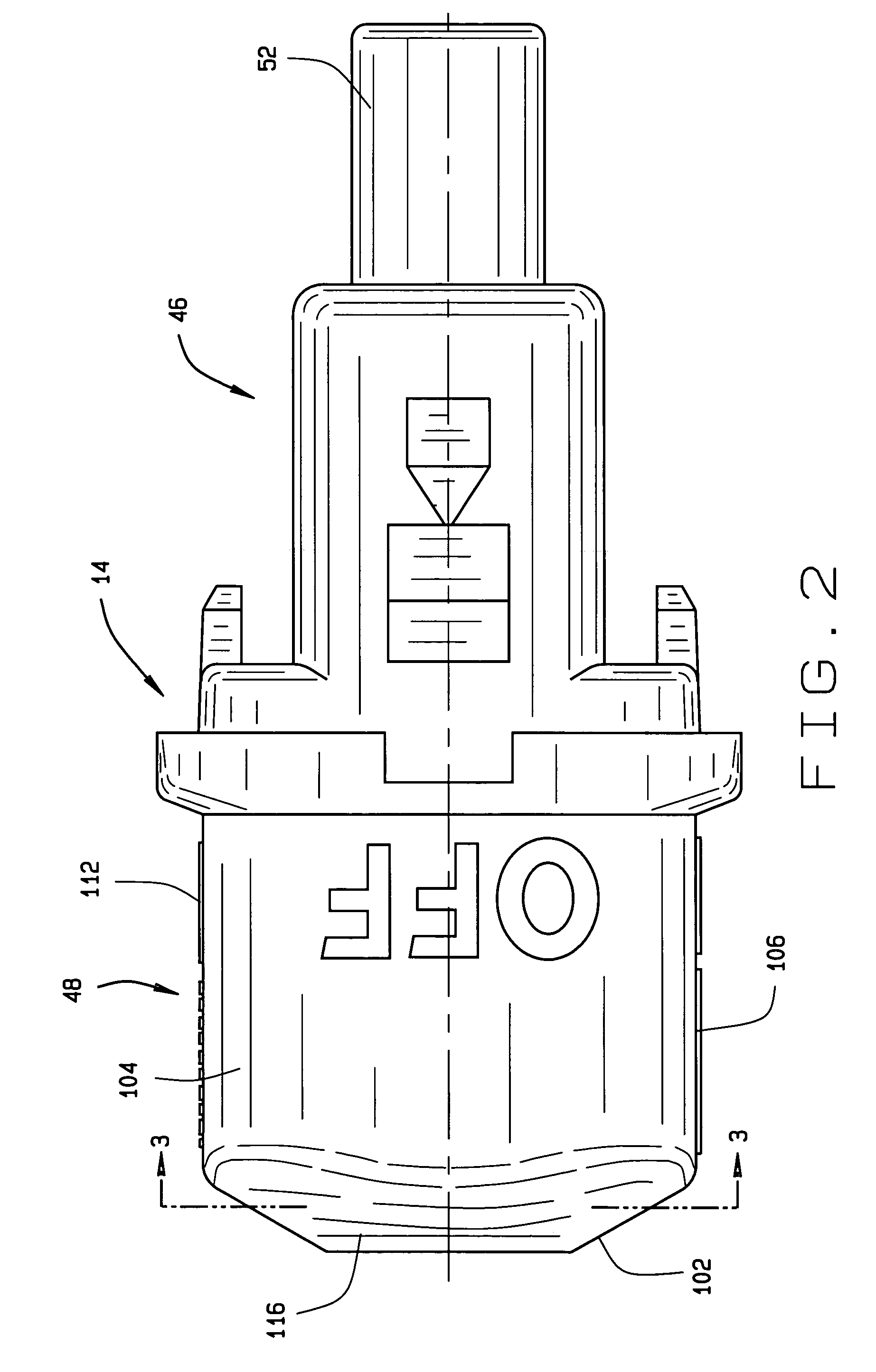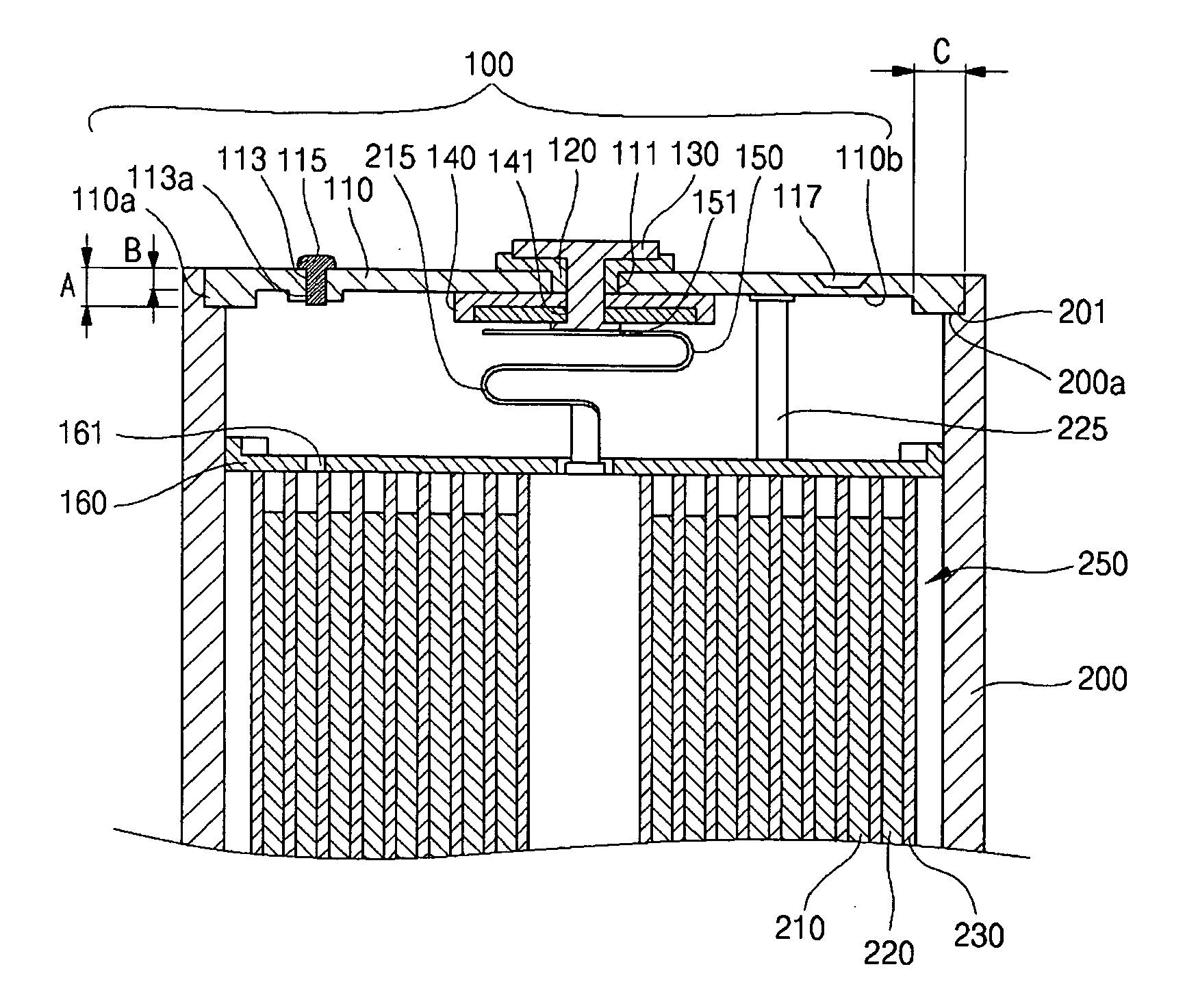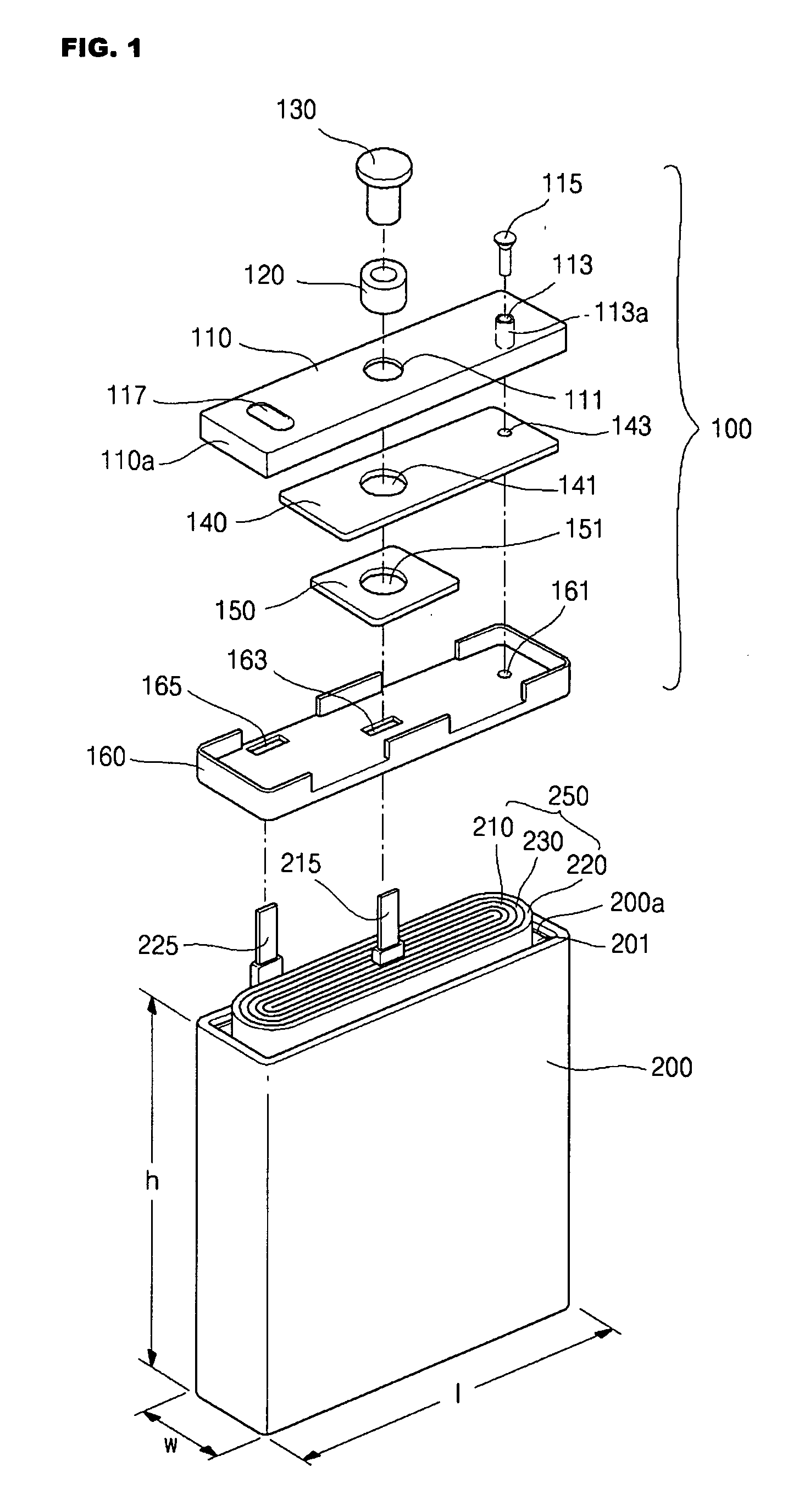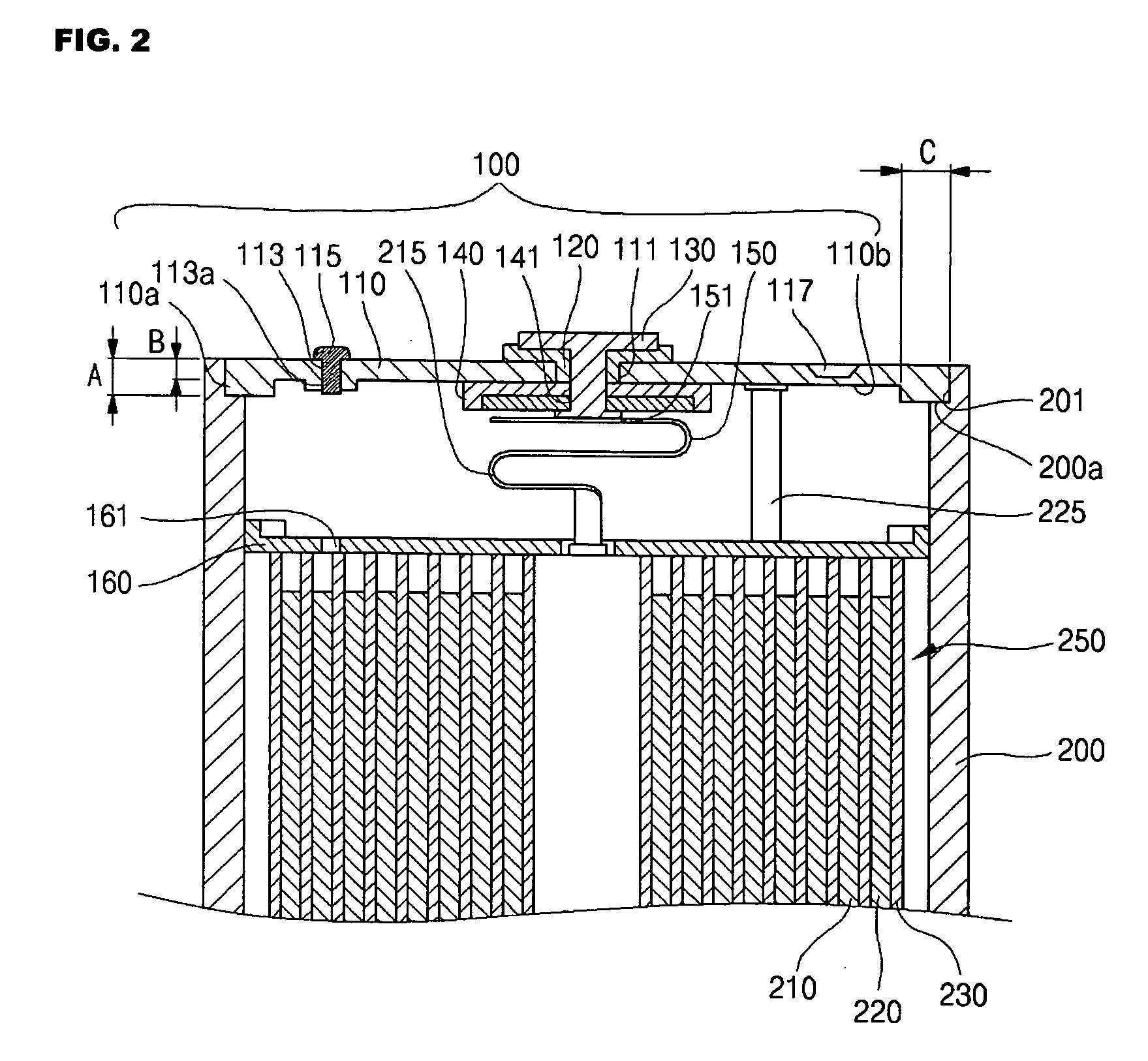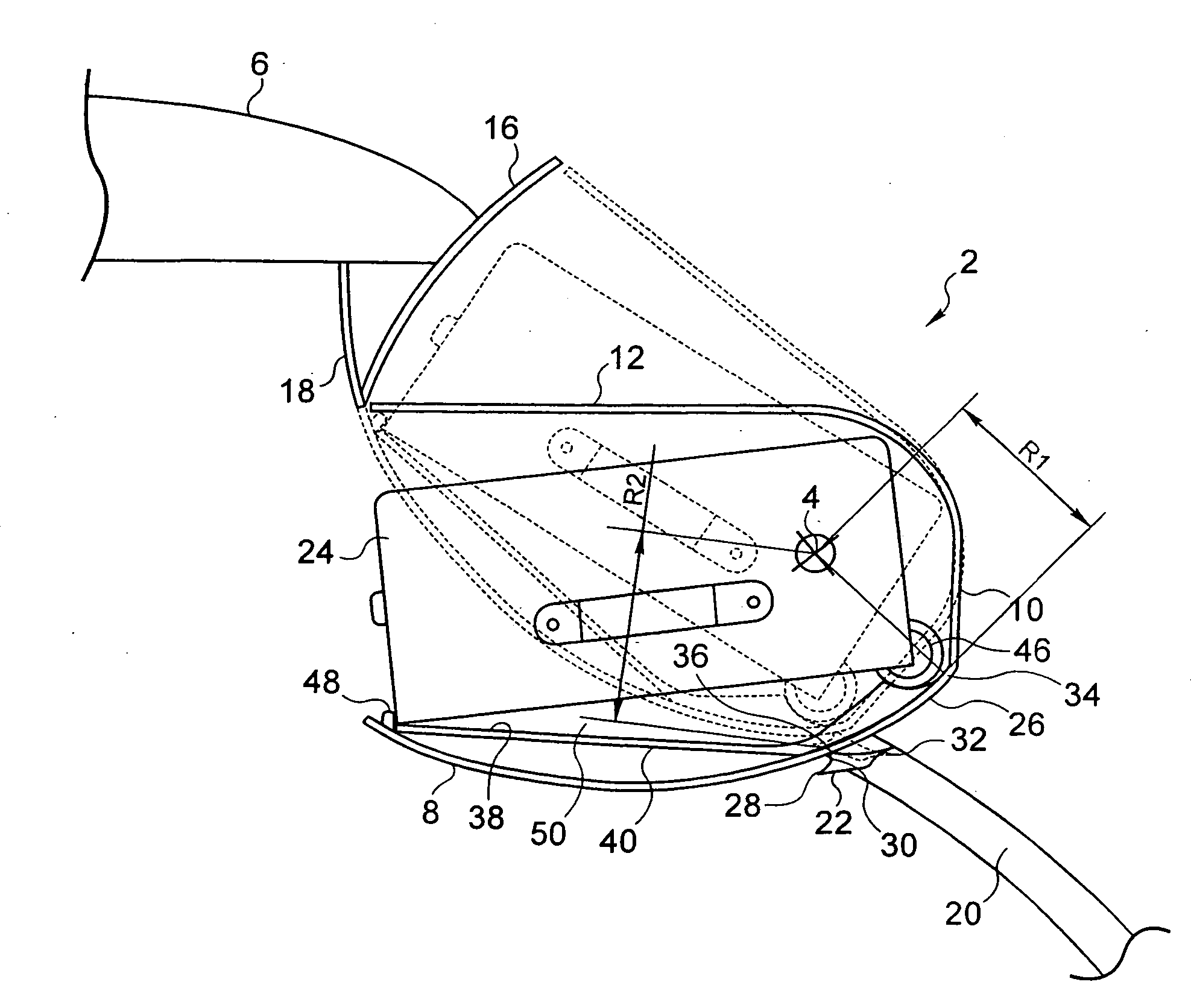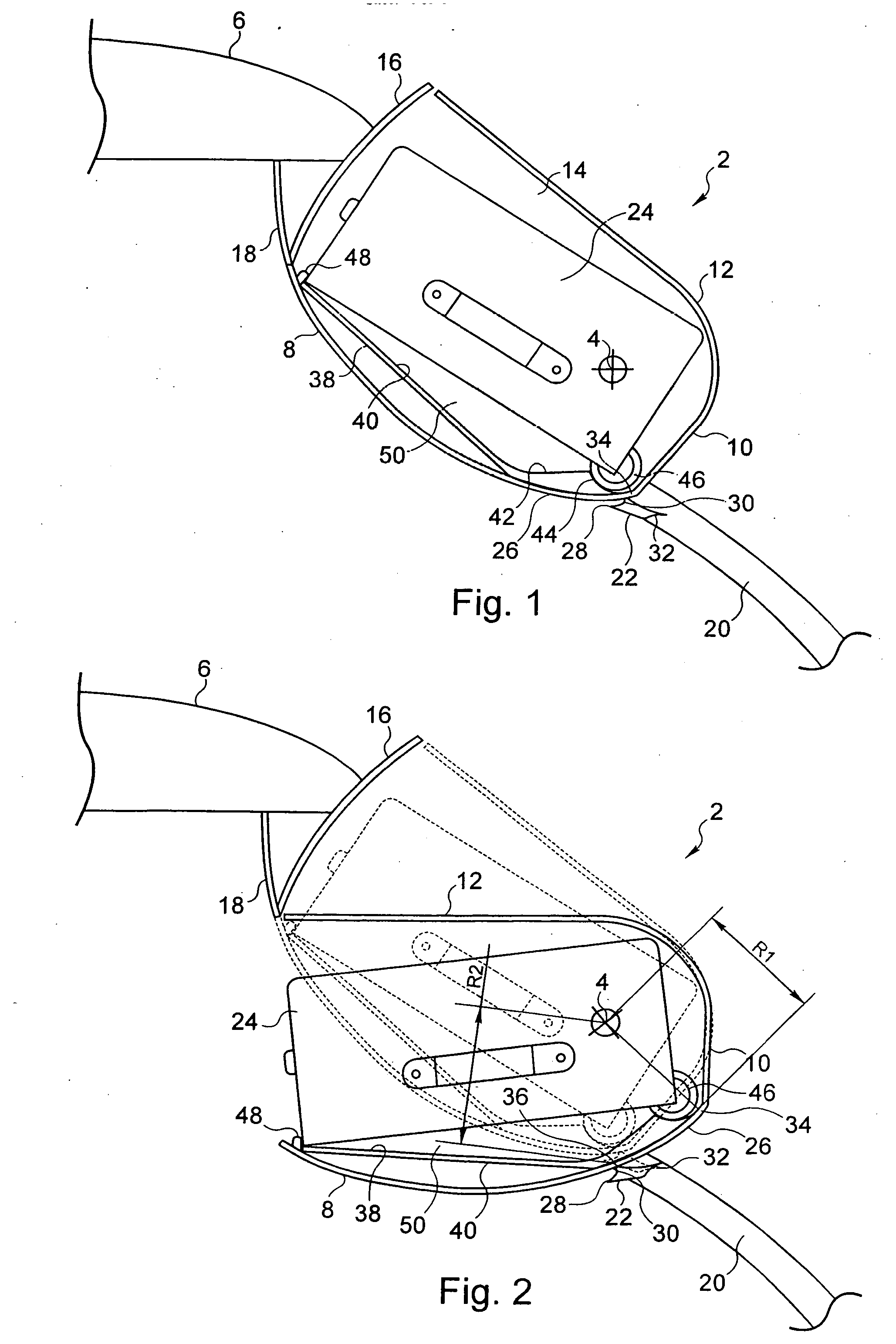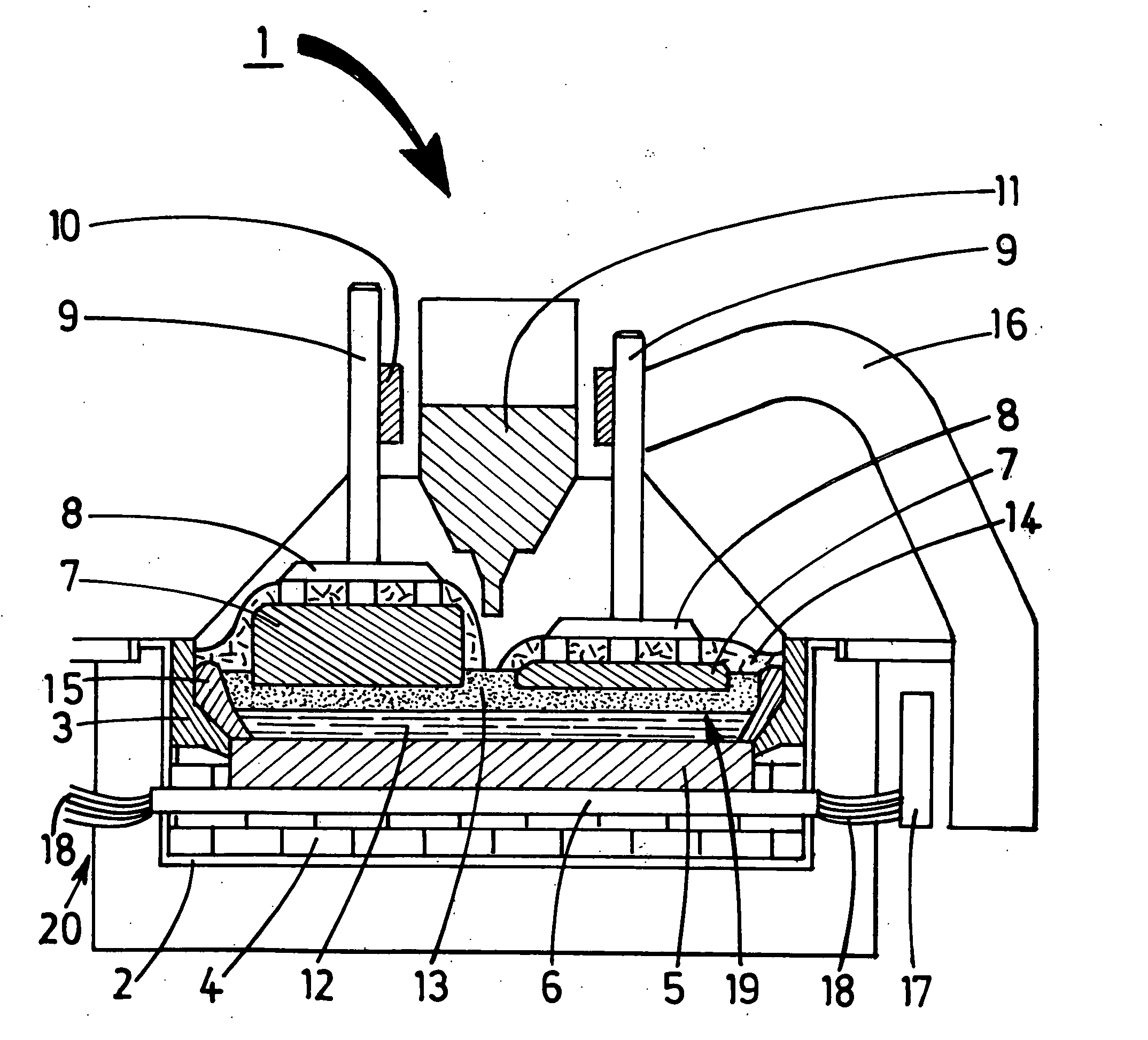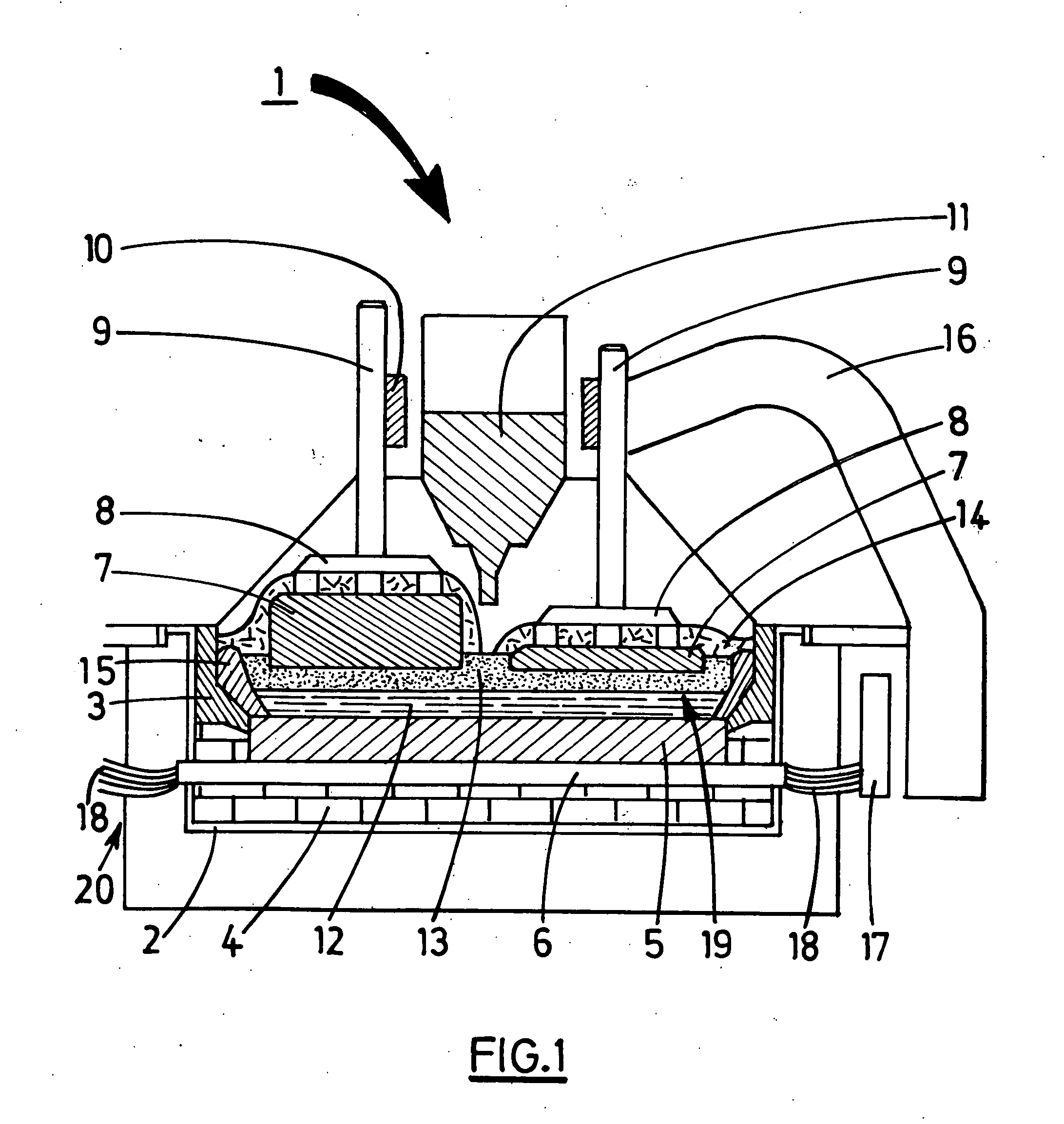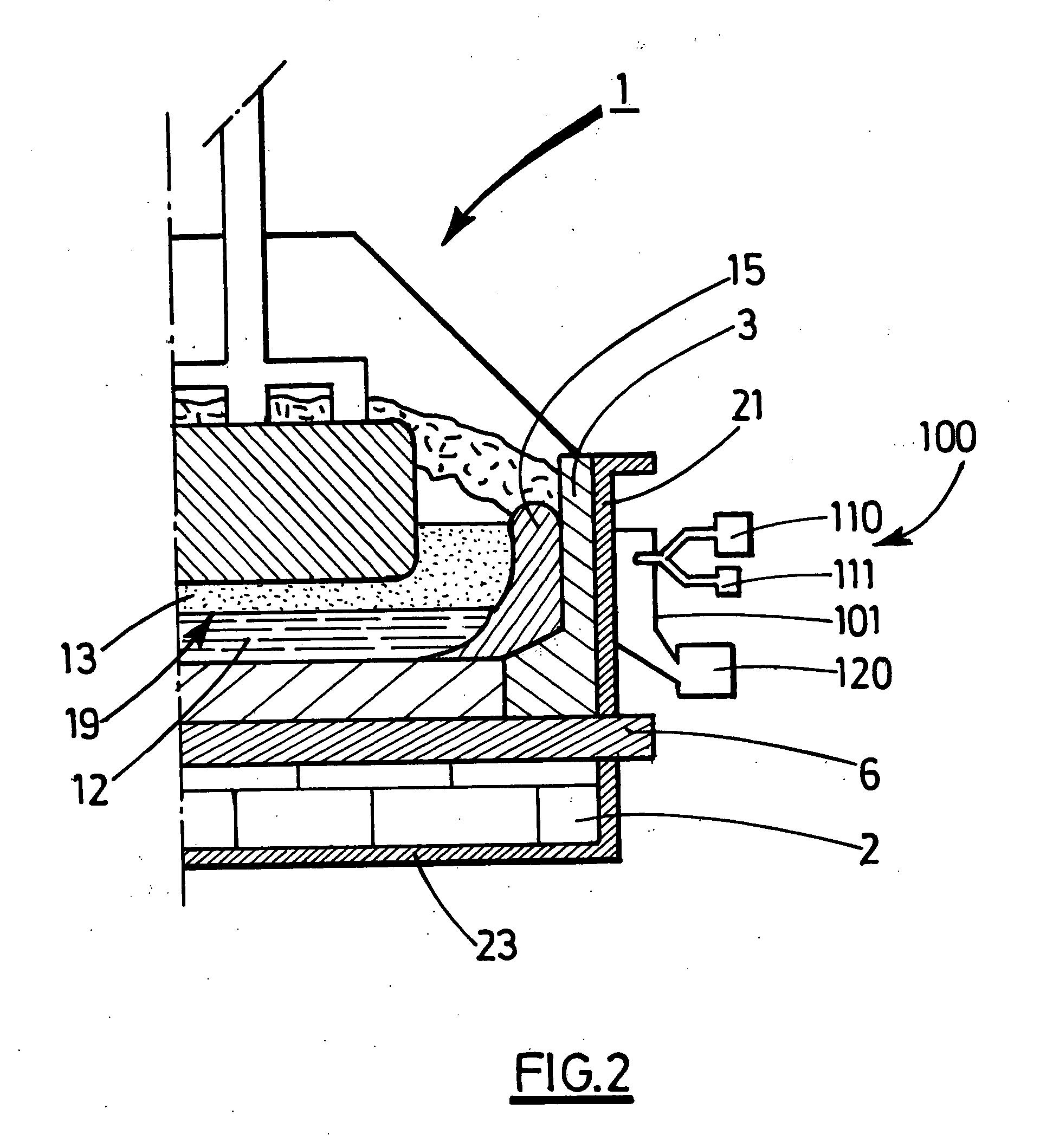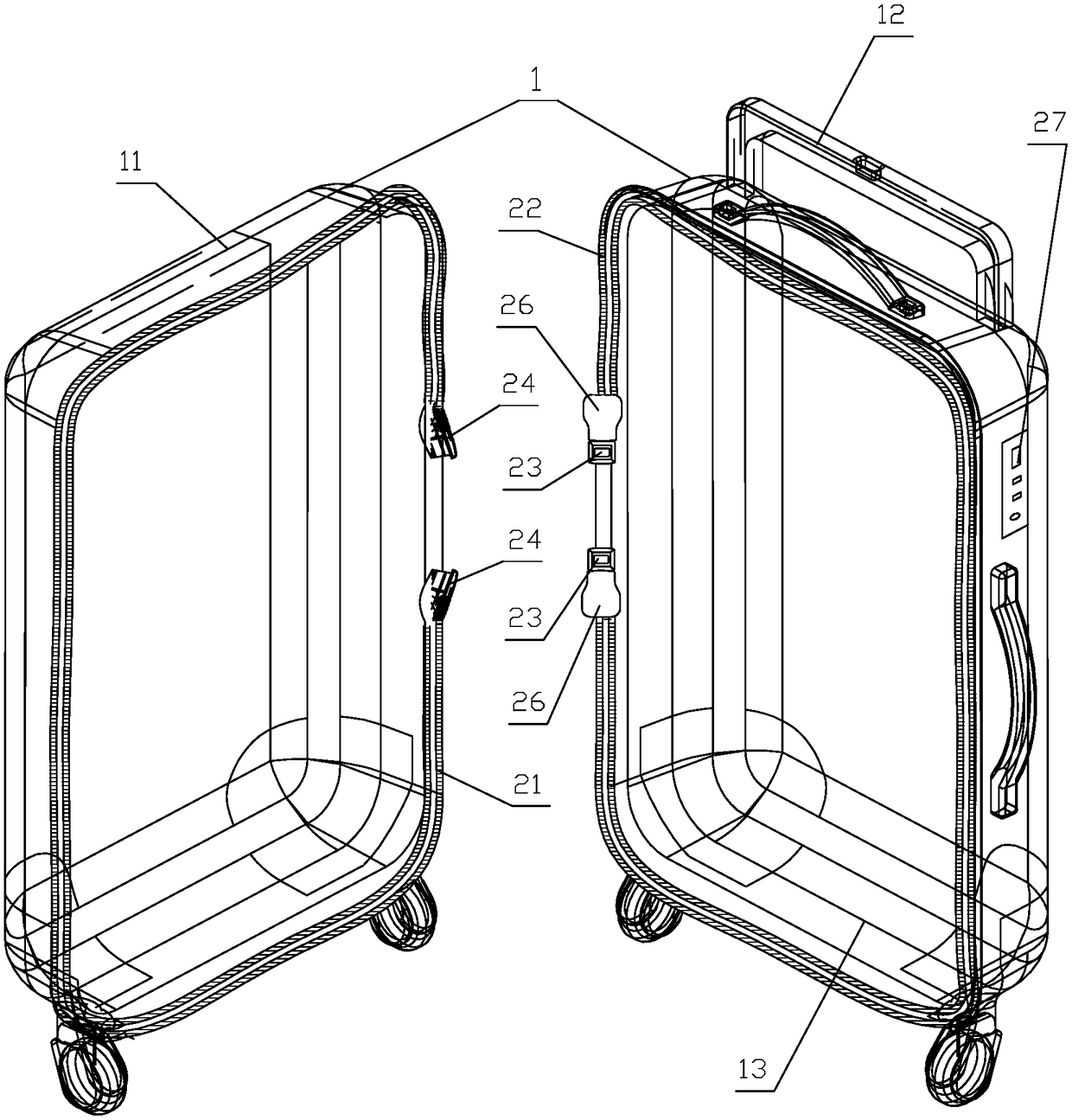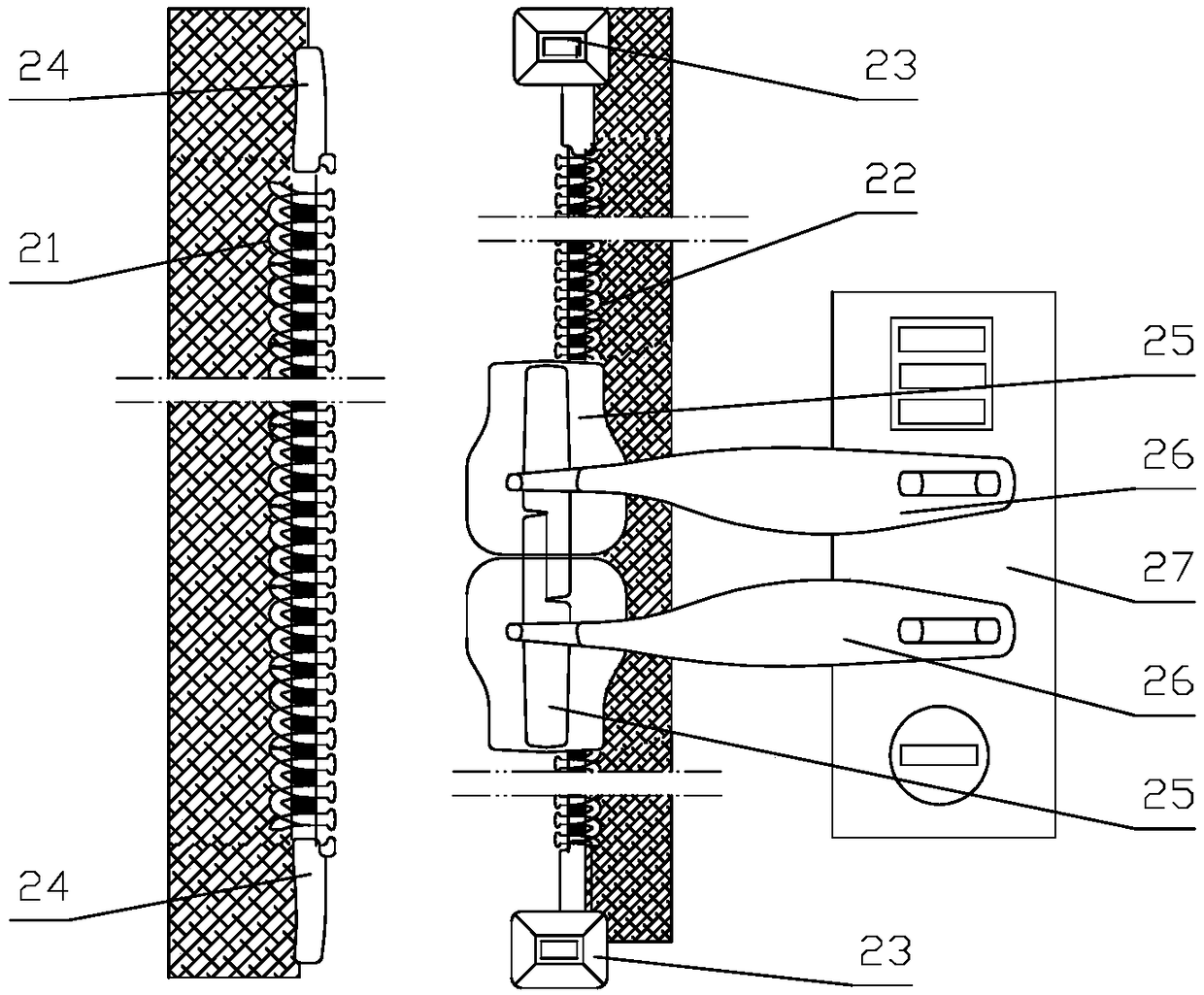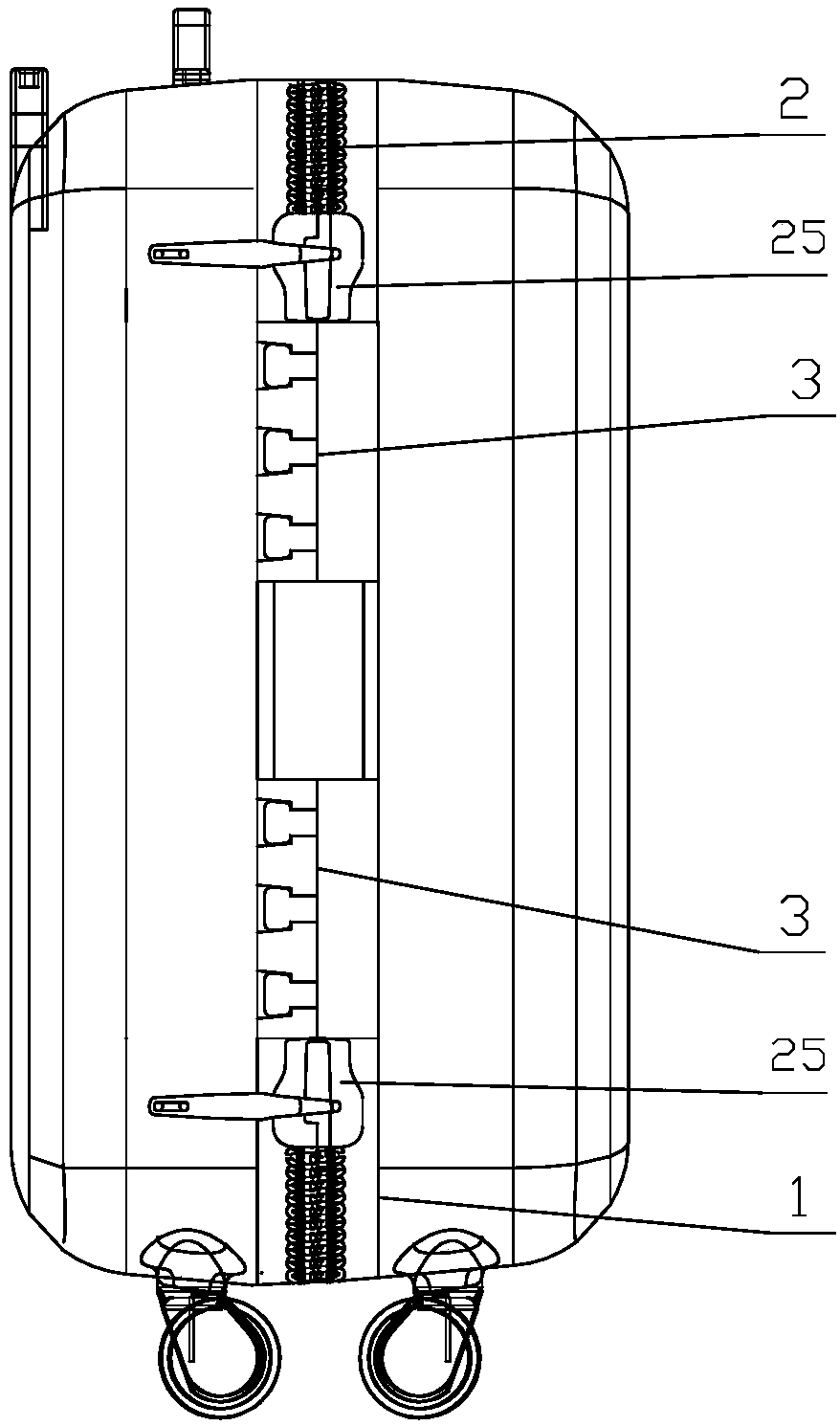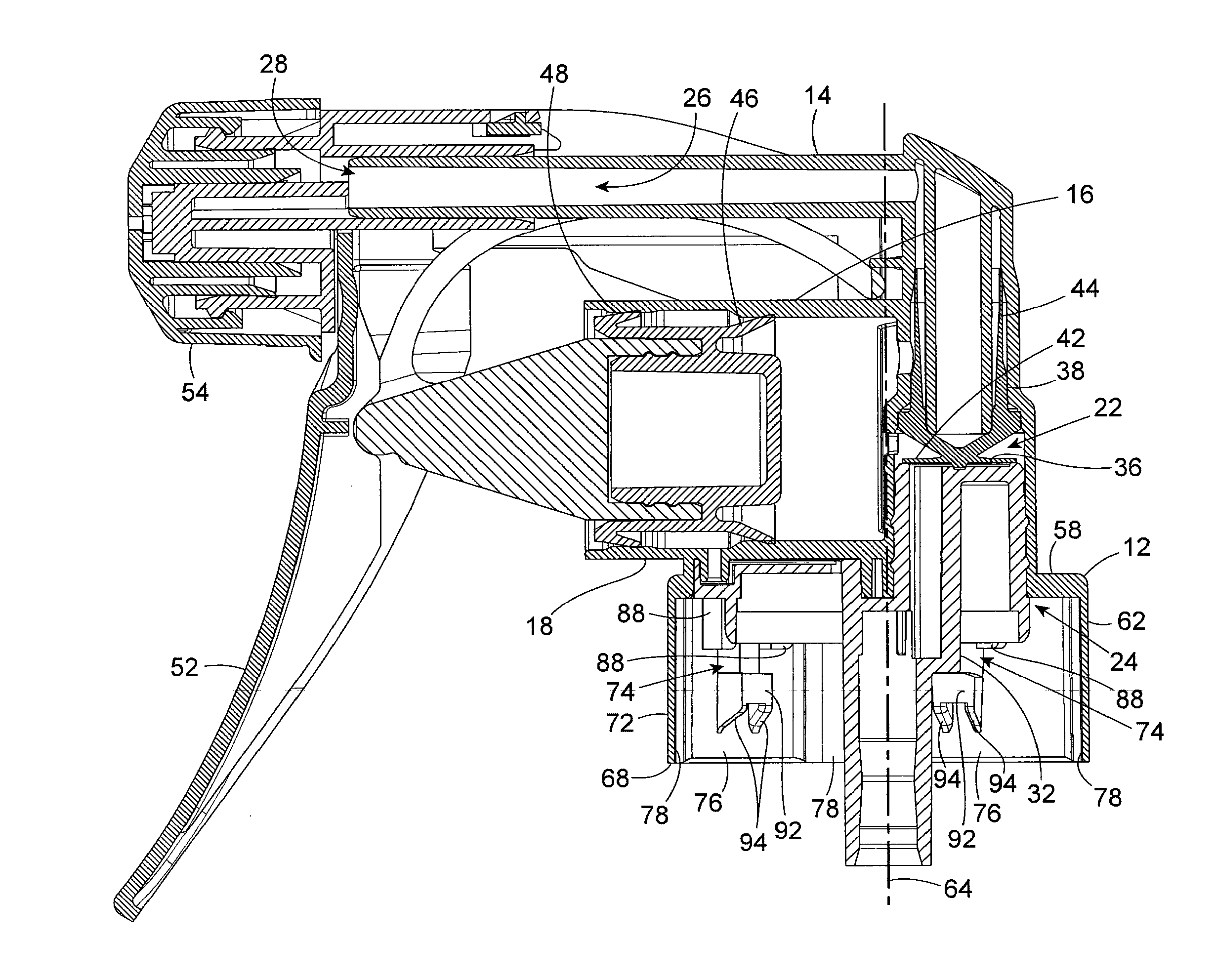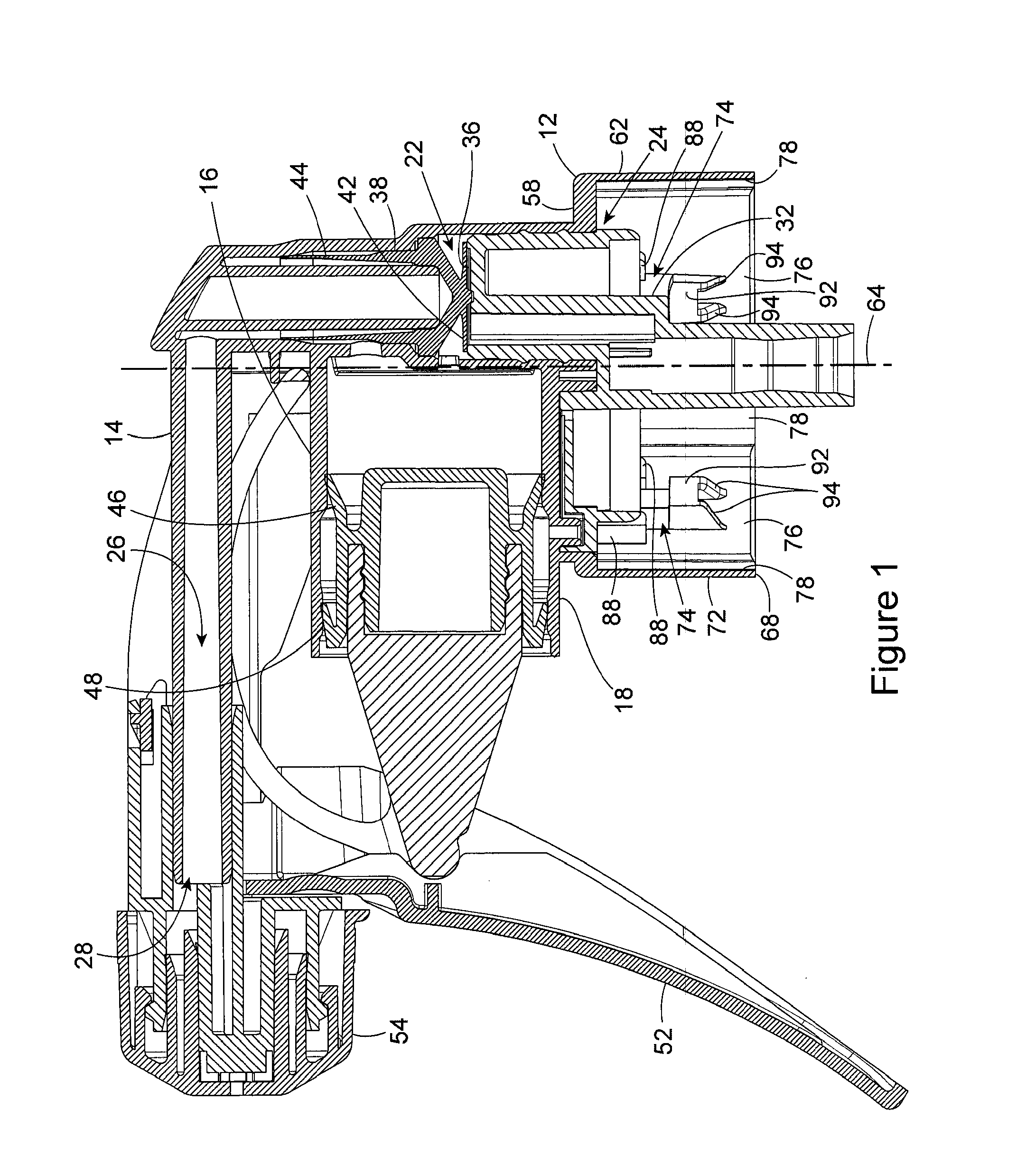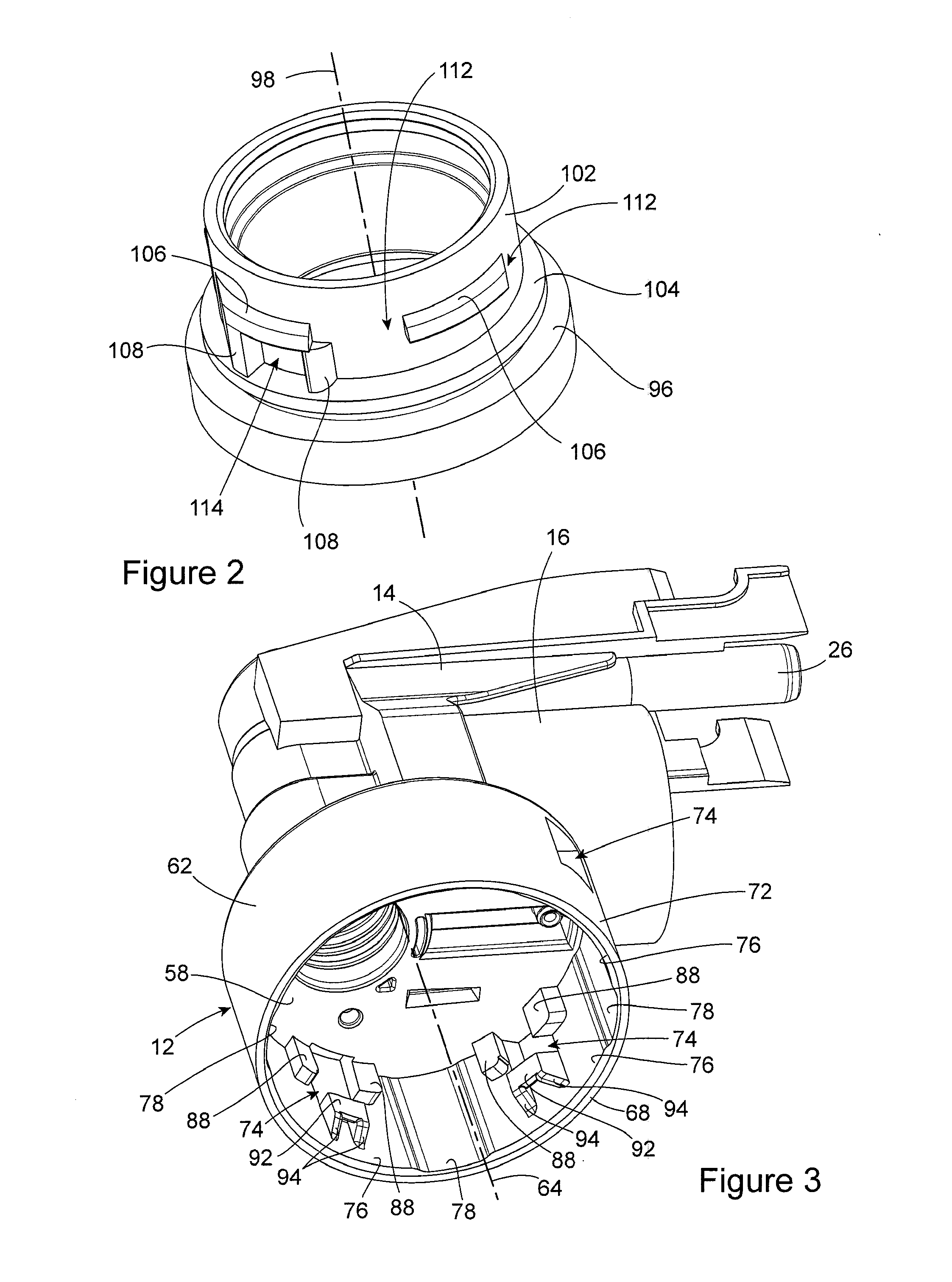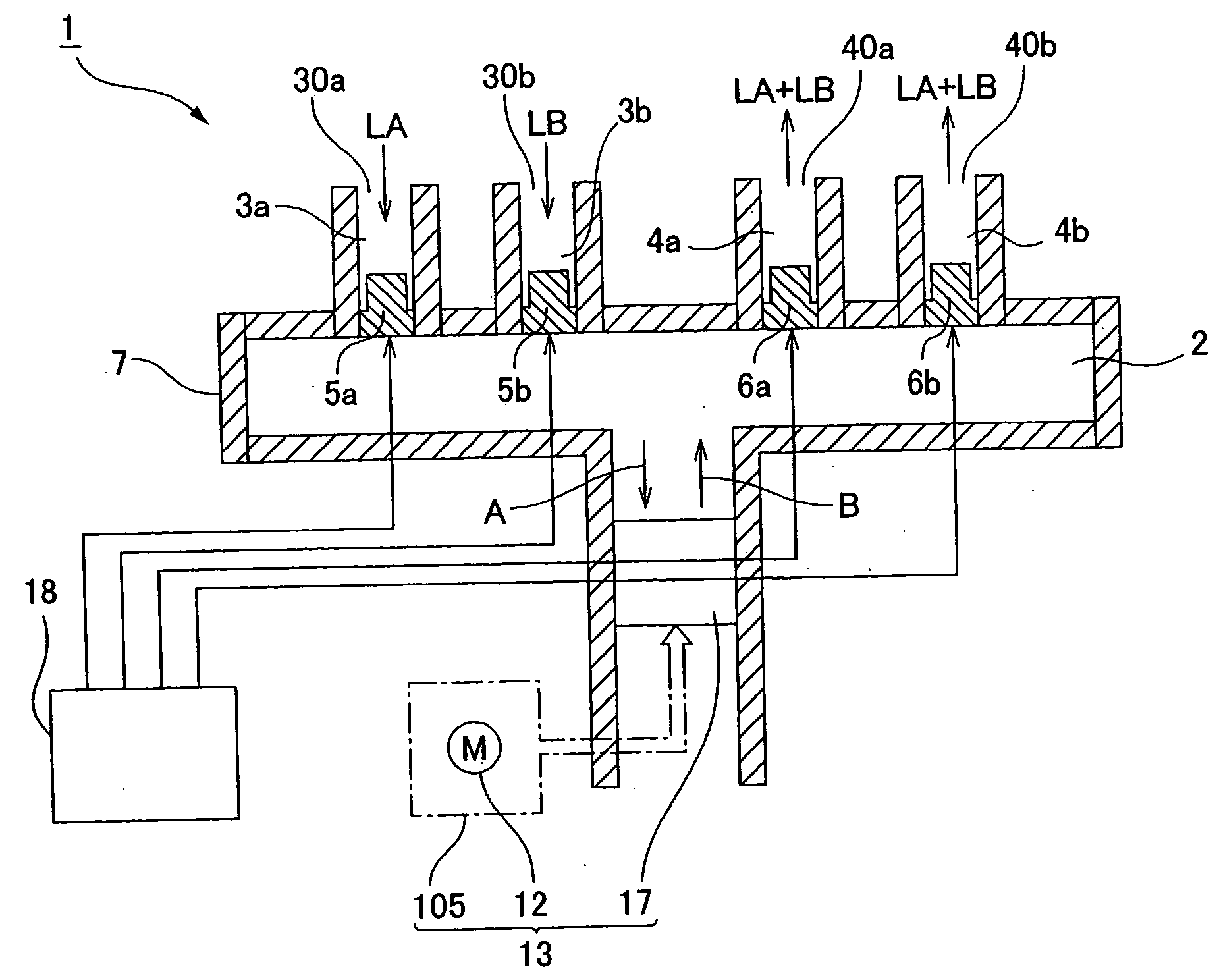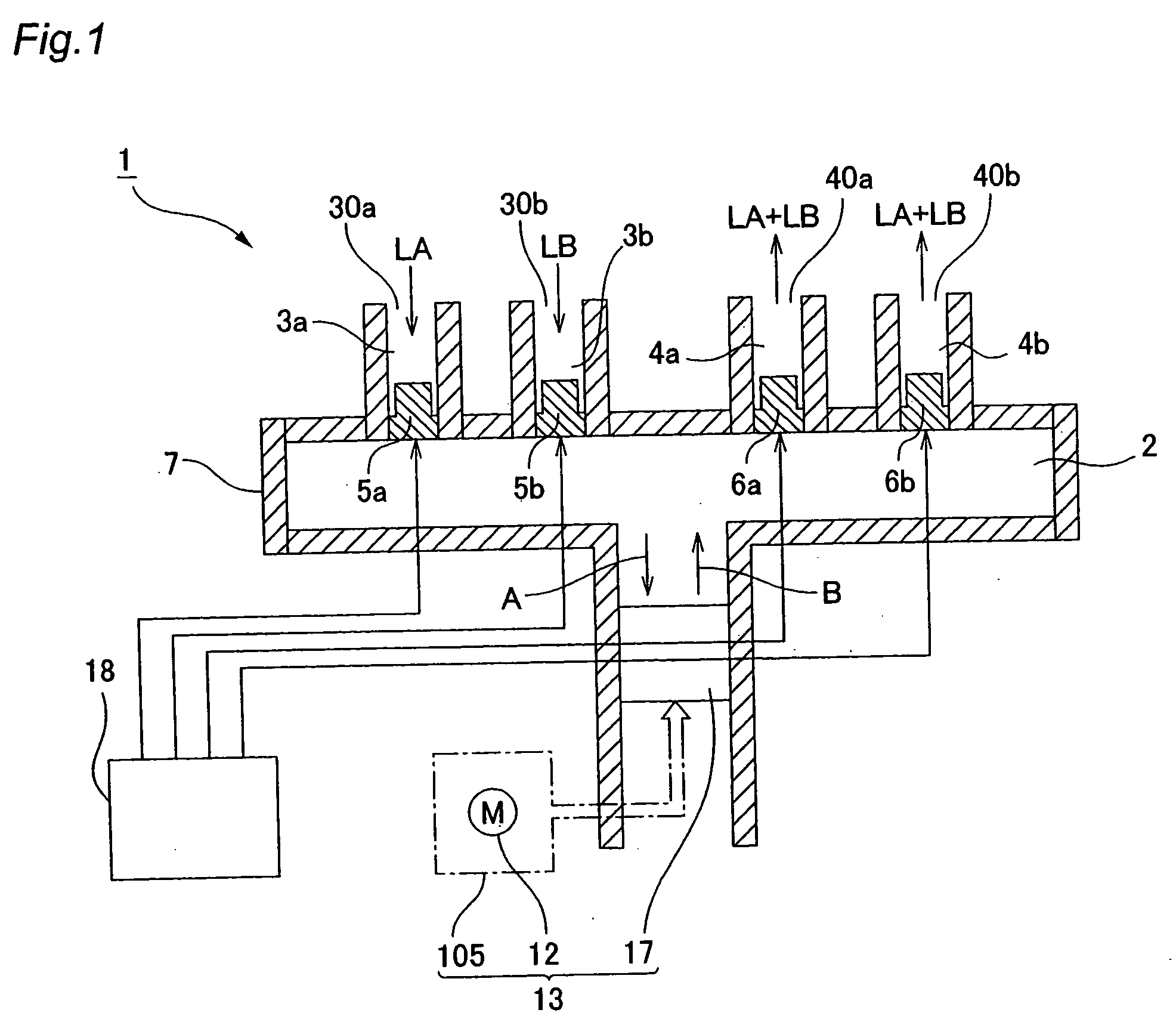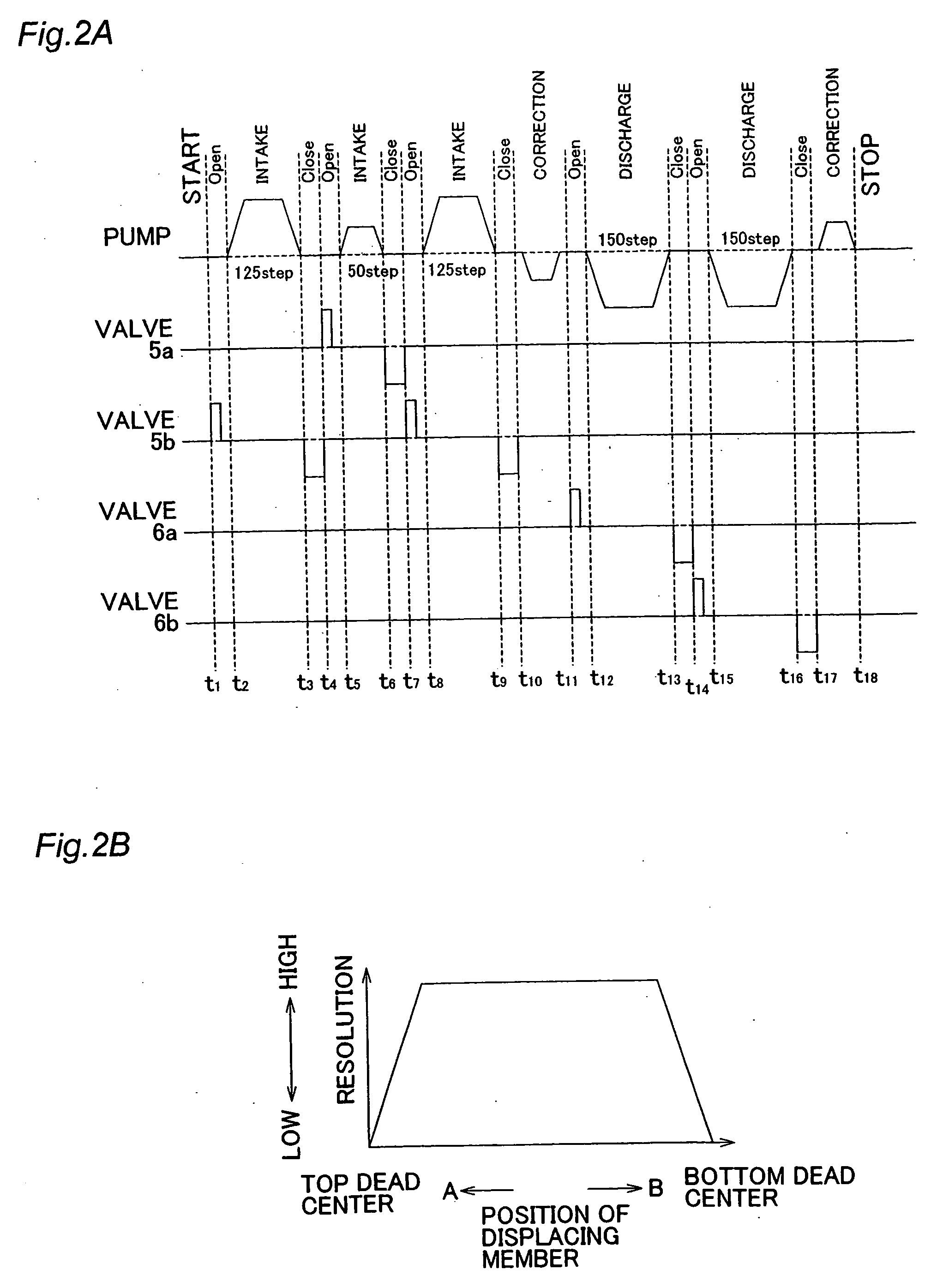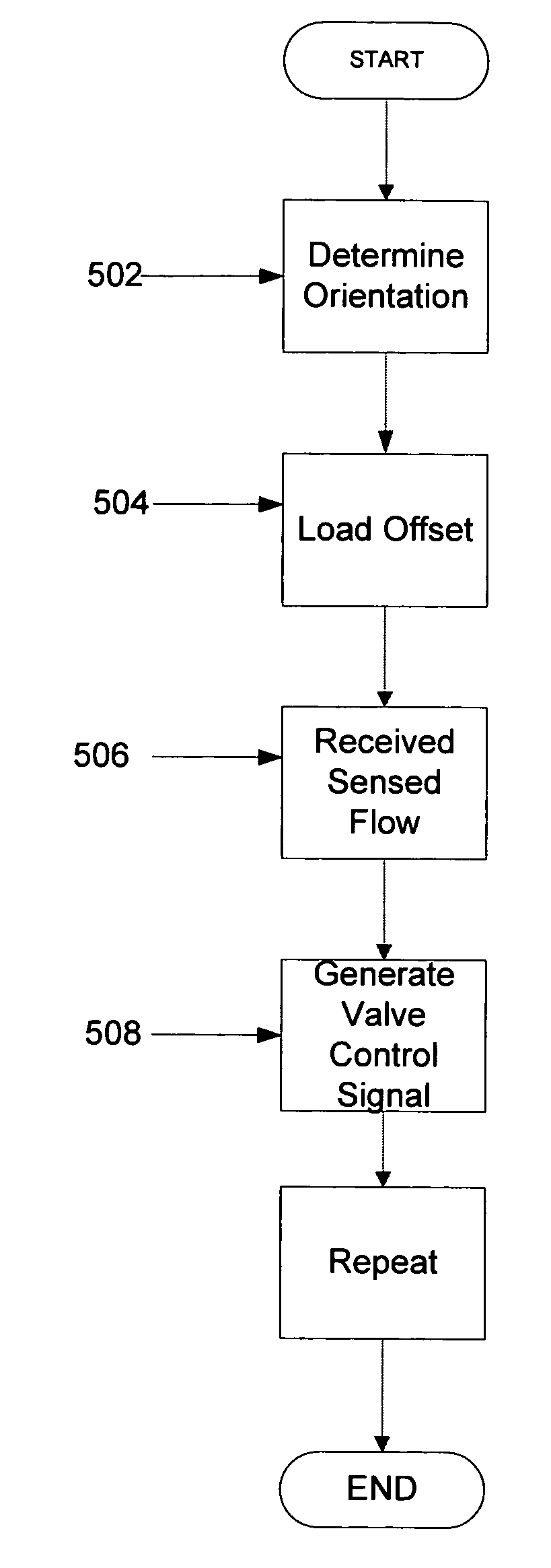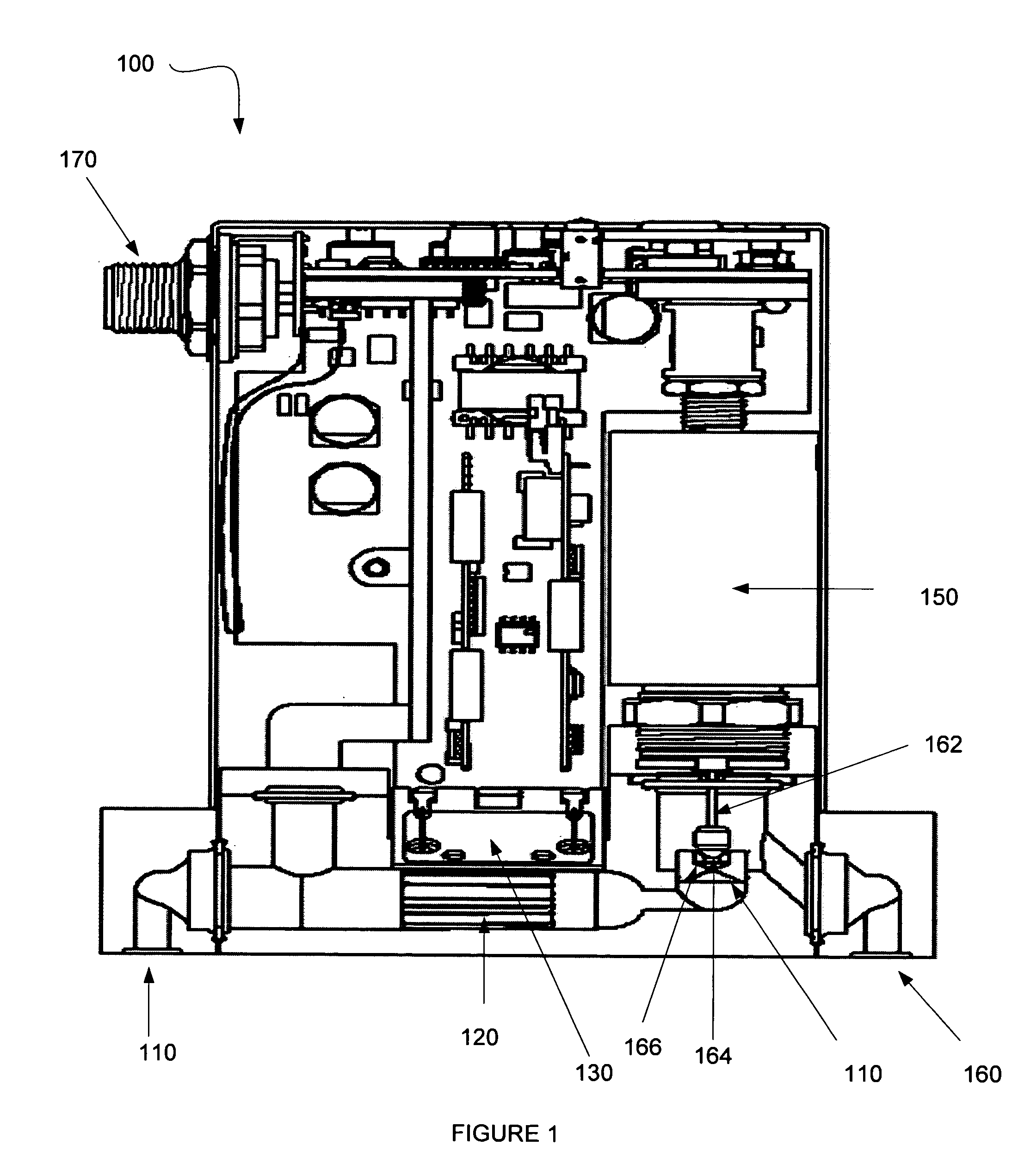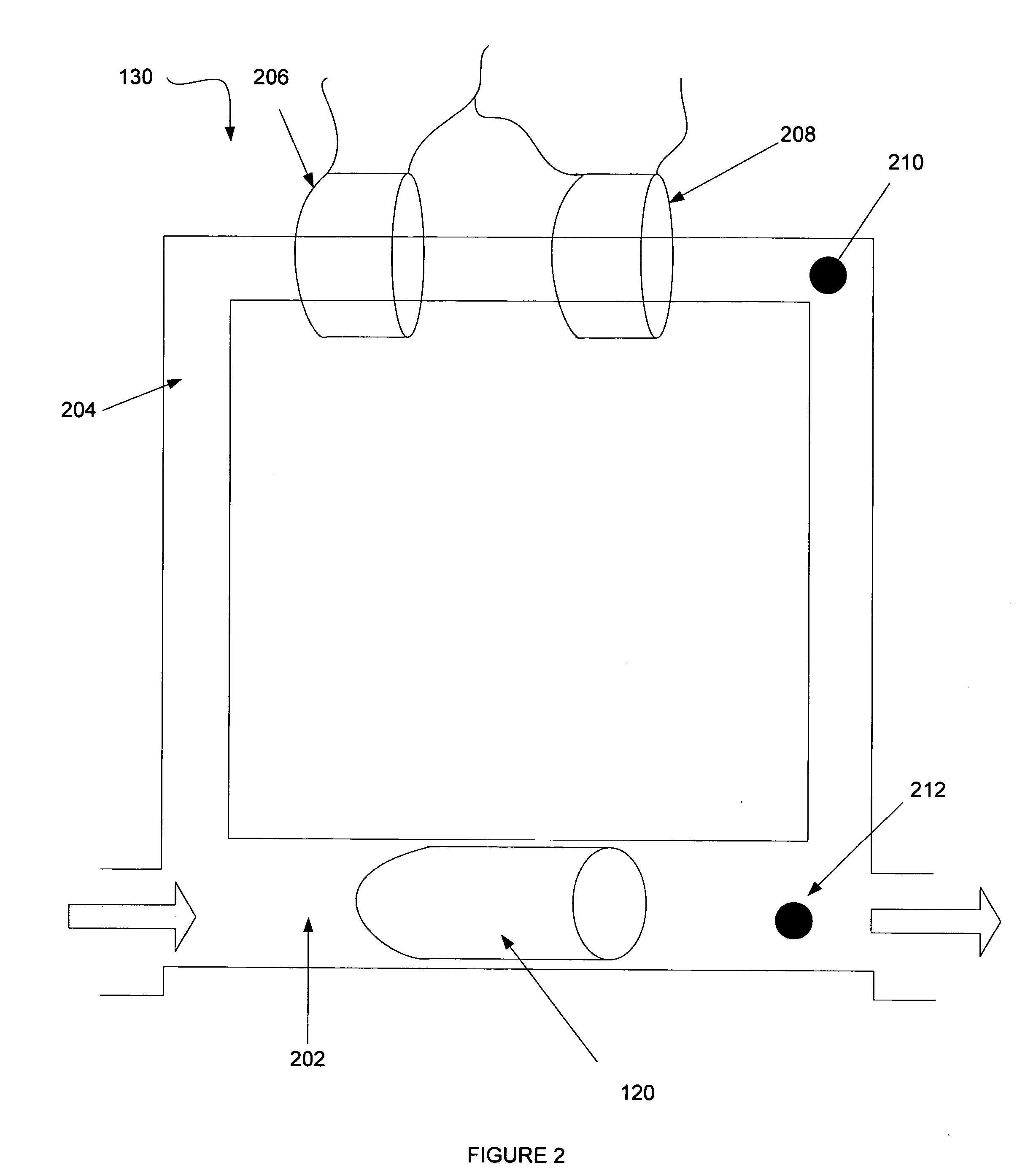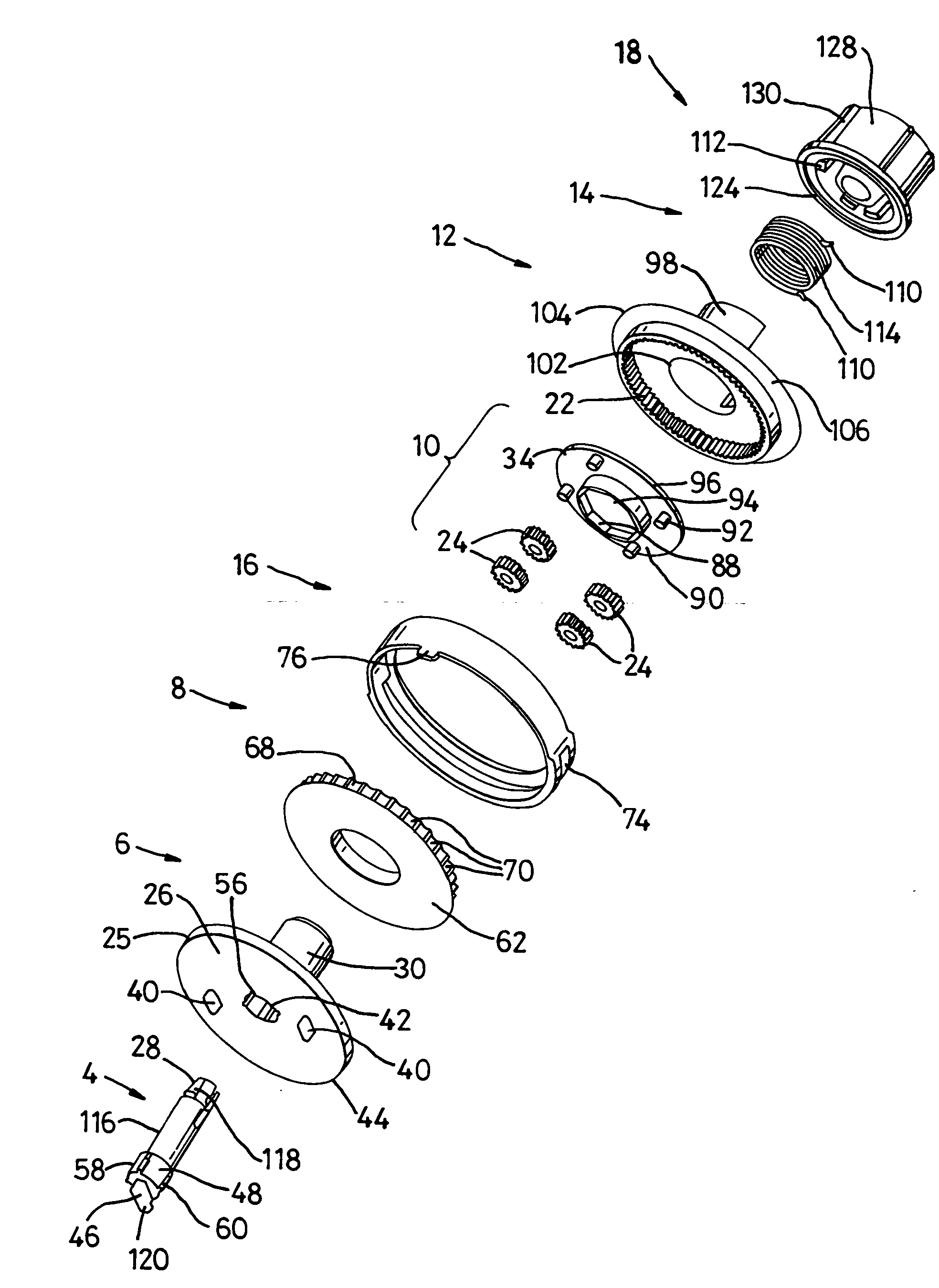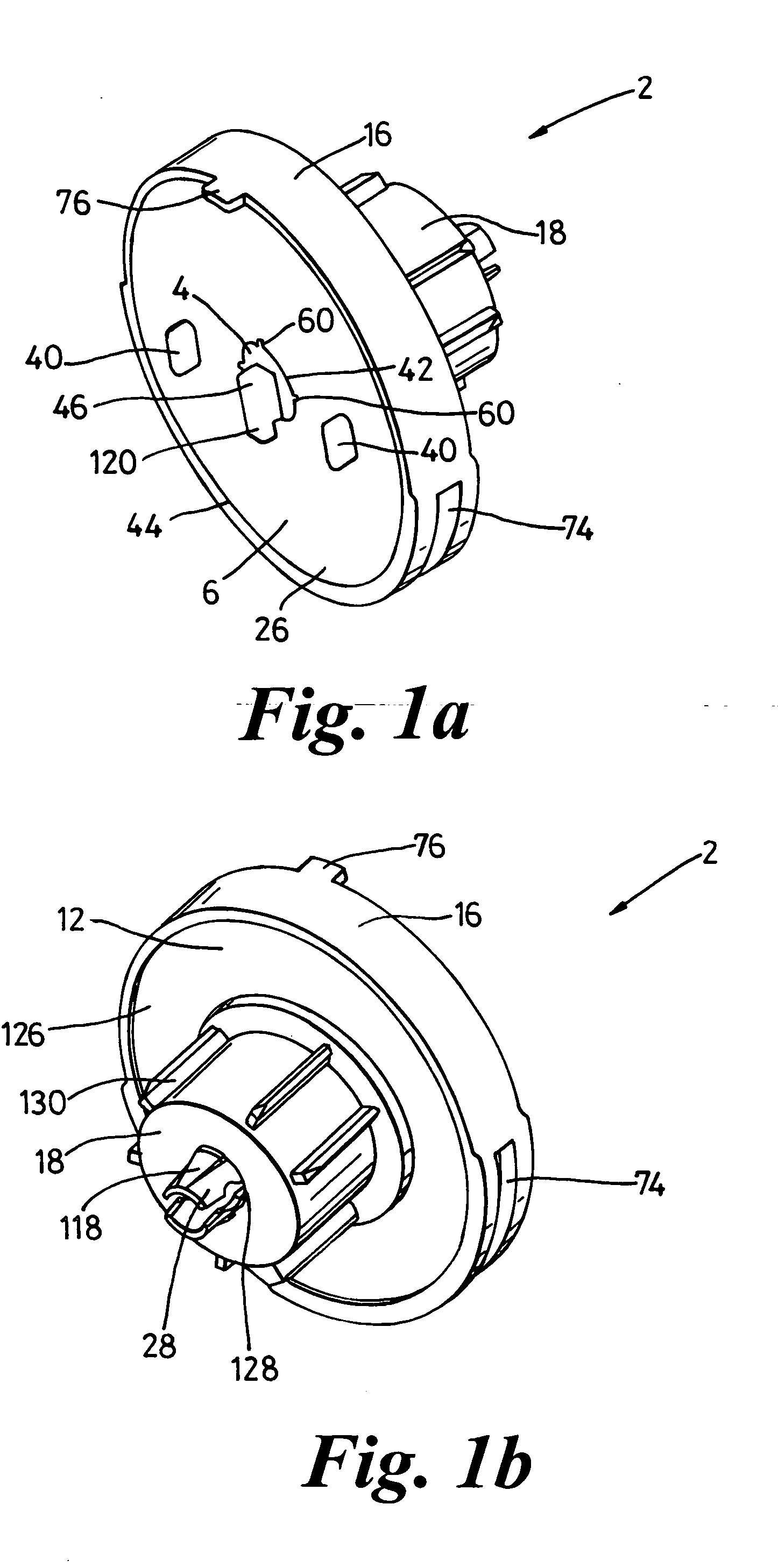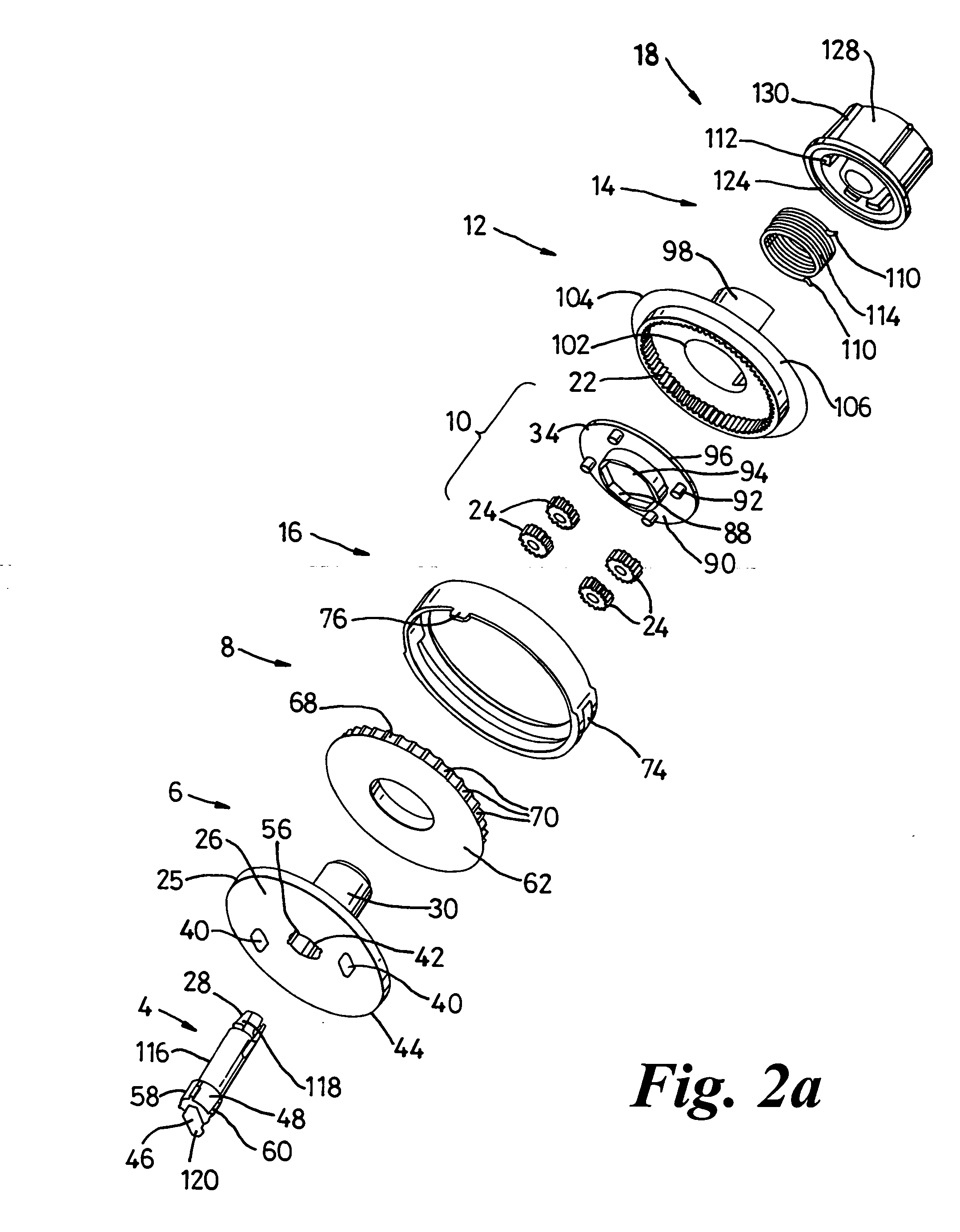Patents
Literature
203results about How to "Increase the internal volume" patented technology
Efficacy Topic
Property
Owner
Technical Advancement
Application Domain
Technology Topic
Technology Field Word
Patent Country/Region
Patent Type
Patent Status
Application Year
Inventor
Systems and methods allowing for reservoir filling and infusion medium delivery
ActiveUS7828764B2Reduce internal volumeIncrease the internal volumePharmaceutical containersMedical devicesSurgeryMechanical engineering
A system includes a durable portion with a durable housing and a separable disposable portion with a disposable housing that selectively engage with and disengage from each other. The disposable housing secures to a patient and may be disposed of after it has been in use for a prescribed period. Components that normally come into contact with a patient or with an infusion medium may be part of the disposable portion to allow for disposal after a prescribed use. A reservoir for holding the infusion medium may be part of the disposable portion, and may be supported by the disposable housing. The durable portion may include other components such as electronics for controlling delivery of the infusion medium from the reservoir, and a drive device including a motor and drive linkage.
Owner:MEDTRONIC MIMIMED INC
Everted filter device
Everting filter devices and methods for using the devices, including using the devices as intra-vascular filters to filter thrombus, emboli, and plaque fragments from blood vessels. The filter devices include a filter body nominally tubular in shape and having a large proximal opening. The filter body can extend from a proximal first end region distally over the non-everted exterior surface of the filter, further extending distally to a distal-most region, then converging inwardly and extending proximally toward the filter second end region, forming a distal everted cavity. The degree of eversion of the filter can be controlled by varying the distance between the filter first end region near the proximal opening and the closed second end region. Bringing the filter first and second end regions closer together can bring filter material previously on the non-everted filter exterior to occupy the distal-most region. The everting process can also bring filter material previously in the distal-most position further into the distal everted cavity. The filter devices can be used to remove filtrate from body vessels, with the filtrate eventually occluding the distal-most region. The filter can then be further everted, bringing fresh, unoccluded filter material into place to provide additional filter capacity. Some everting filters have the capability of switching between occluding and filtering modes of operation, thereby allowing a treating physician to postpone the decision to use filtering or occluding devices until well after insertion of the device into the patient's body.
Owner:TYCO HEALTHCARE GRP LP
Systems and methods allowing for reservoir filling and infusion medium delivery
ActiveUS20080097321A1Reduce internal volumeIncrease the internal volumeInfusion syringesPharmaceutical containersSurgeryMechanical engineering
A system includes a durable portion with a durable housing and a separable disposable portion with a disposable housing that selectively engage with and disengage from each other. The disposable housing secures to a patient and may be disposed of after it has been in use for a prescribed period. Components that normally come into contact with a patient or with an infusion medium may be part of the disposable portion to allow for disposal after a prescribed use. A reservoir for holding the infusion medium may be part of the disposable portion, and may be supported by the disposable housing. The durable portion may include other components such as electronics for controlling delivery of the infusion medium from the reservoir, and a drive device including a motor and drive linkage.
Owner:MEDTRONIC MIMIMED INC
Accommodating intraocular lens system having spherical aberration compensation and method
ActiveUS20070106377A1Small internal volumeIncrease the internal volumeIntraocular lensIntraocular lensOptical power
An accommodating intraocular lens includes an optic portion, a haptic portion. The optic portion of the lens includes an actuator that deflects a lens element to alter the optical power of the lens responsive to forces applied to the haptic portion of the lens by contraction of the ciliary muscles and a secondary deflection mechanism. Movement of the lens element by the actuator causes the lens element to deform and the secondary deflection mechanism causes the lens to further deform.
Owner:ALCON INC
Systems and methods allowing for reservoir filling and infusion medium delivery
ActiveUS20080097328A1Reduce internal volumeIncrease the internal volumePharmaceutical containersMedical devicesBiomedical engineeringControlled delivery
A system includes a durable portion with a durable housing and a separable disposable portion with a disposable housing that selectively engage with and disengage from each other. The disposable housing secures to a patient and may be disposed of after it has been in use for a prescribed period. Components that normally come into contact with a patient or with an infusion medium may be part of the disposable portion to allow for disposal after a prescribed use. A reservoir for holding the infusion medium may be part of the disposable portion, and may be supported by the disposable housing. The durable portion may include other components such as electronics for controlling delivery of the infusion medium from the reservoir, and a drive device including a motor and drive linkage.
Owner:MEDTRONIC MIMIMED INC
Anti-drawback medical valve
InactiveUS7014169B2Eliminate drawbackEnlarge volume of interiorValve arrangementsSurgeryMechanical engineeringMedical treatment
Owner:NP MEDICAL
Low-oil fryer and heating cover thereof
In a low-oil fryer (1), a heating cover (10) includes a cover body (11), an actuator (12), a heater (15), and a speed-reducing mechanism (14). The actuator (12) is mounted inside the cover body (11) and has a driving shaft (121). The heater (15) is mounted below the actuator (12) and has a partitioning disk (151) connected to the cover body (11) and a heating element (152) fixed to the partitioning disk (151). The speed-reducing mechanism (14) is disposed on the partitioning disk (151) and has a speed-reducing gear set (142) rotatably driven by the driving shaft (121) and a transmission shaft (143) rotatably driven by the speed-reducing gear set (142). The transmission shaft (143) is detachably assembled with a stirring member (30) for stirring food materials in pot (20). The structure is simple, easy to operate and clean, and efficient in reducing the accumulation of oil on the internal components. Thus, the lifetime thereof can be extended.
Owner:TALL & STOUT INDAL CORP
Accommodating intraocular lens system having circumferential haptic support and method
ActiveUS20070203578A1Reduce compressionIncrease the internal volumeIntraocular lensIntraocular lensOptical power
An accommodating intraocular lens includes an optic portion a haptic portion and a backstop. The optic portion of the lens includes an actuator that deflects a lens element to alter the optical power of the lens responsive to forces applied to the haptic portion of the lens by contraction of the ciliary muscles. Forces applied to the haptic portion may result in fluid displacements from or to the haptic portion from the actuator. The backstop provides support to the haptic so that bulk translation of the haptic is prevented in response to the forces applied by the capsular sac.
Owner:ALCON INC
Systems and methods allowing for reservoir filling and infusion medium delivery
ActiveUS20090171291A1Reduce internal volumeIncrease the internal volumeAutomatic syringesPharmaceutical containersBiomedical engineeringControlled delivery
A system includes a durable portion with a durable housing and a separable disposable portion with a disposable housing that selectively engage with and disengage from each other. The disposable housing secures to a patient and may be disposed of after it has been in use for a prescribed period. Components that normally come into contact with a patient or with an infusion medium may be part of the disposable portion to allow for disposal after a prescribed use. A reservoir for holding the infusion medium may be part of the disposable portion, and may be supported by the disposable housing. The durable portion may include other components such as electronics for controlling delivery of the infusion medium from the reservoir, and a drive device including a motor and drive linkage.
Owner:MEDTRONIC MIMIMED INC
Accommodating Intraocular Lenses
ActiveUS20110282442A1Speed up the conversion processEasy to adjustIntraocular lensIntraocular lensOptical power
An accommodating intraocular lens includes an optic portion a haptic portion and a backstop. The optic portion of the lens includes an actuator that deflects a lens element to alter the optical power of the lens responsive to forces applied to the haptic portion of the lens by contraction of the ciliary muscles. Forces applied to the haptic portion may result in fluid displacements from or to the haptic portion from the actuator. The backstop provides support to the haptic so that bulk translation of the haptic is prevented in response to the forces applied by the capsular sac.
Owner:ALCON INC
Mobile retail store structure with inventory system
ActiveUS20110313811A1Reduce interior noiseImprove ventilationHand manipulated computer devicesTents/canopiesTelecommunicationsComputer module
A mobile retail store structure transportable to a plurality of different locations includes a trailer construction configured both exteriorly and interiorly for housing a plurality of storage bins wherein products and / or parts can be stored. Each trailer is a self-sufficient module which includes doors at one end of the trailer unit for entry and exit thereto, portable stairs for providing access to the entry doors, opposed side doors and associated walkways for allowing coupling to additional similarly constructed trailers, extendable canopies for providing a secure passageway between the respective coupled trailers, and a generator / HVAC system for providing heating, cooling and electrical power to each trailer unit. In one embodiment, a terminal is provided to allow a user to either browse electronically various items for selection and / or sale, or access a self-service check-out station to complete a transaction. A plurality of terminals can be coupled to communicate with a master server terminal over a wired / wireless network.
Owner:SENCORPWHITE INC
Accommodating intraocular lens system having circumferential haptic support and method
ActiveUS8361145B2Speed up the conversion processEasy to adjustIntraocular lensIntraocular lensOptical power
An accommodating intraocular lens includes an optic portion a haptic portion and a backstop. The optic portion of the lens includes an actuator that deflects a lens element to alter the optical power of the lens responsive to forces applied to the haptic portion of the lens by contraction of the ciliary muscles. Forces applied to the haptic portion may result in fluid displacements from or to the haptic portion from the actuator. The backstop provides support to the haptic so that bulk translation of the haptic is prevented in response to the forces applied by the capsular sac.
Owner:ALCON INC
Systems and methods allowing for reservoir filling and infusion medium delivery
ActiveUS7794434B2Reduce internal volumeIncrease the internal volumeInfusion syringesPharmaceutical containersBiomedical engineeringControlled delivery
Owner:MEDTRONIC MIMIMED INC
Accommodating intraocular lens system having spherical aberration compensation and method
InactiveUS20160262875A1Speed up the conversion processEasy to adjustIntraocular lensIntraocular lensOptical power
An accommodating intraocular lens includes an optic portion, a haptic portion. The optic portion of the lens includes an actuator that deflects a lens element to alter the optical power of the lens responsive to forces applied to the haptic portion of the lens by contraction of the ciliary muscles and a secondary deflection mechanism. Movement of the lens element by the actuator causes the lens element to deform and the secondary deflection mechanism causes the lens to further deform.
Owner:POWERVISION
Systems and methods allowing for reservoir filling and infusion medium delivery
ActiveUS7811262B2Reduce internal volumeIncrease the internal volumeAmpoule syringesPharmaceutical containersBiomedical engineeringControlled delivery
A system includes a durable portion with a durable housing and a separable disposable portion with a disposable housing that selectively engage with and disengage from each other. The disposable housing secures to a patient and may be disposed of after it has been in use for a prescribed period. Components that normally come into contact with a patient or with an infusion medium may be part of the disposable portion to allow for disposal after a prescribed use. A reservoir for holding the infusion medium may be part of the disposable portion, and may be supported by the disposable housing. The durable portion may include other components such as electronics for controlling delivery of the infusion medium from the reservoir, and a drive device including a motor and drive linkage.
Owner:MEDTRONIC MIMIMED INC
Convertible combination utility/camper tow trailer
InactiveUS7165779B2Easy to useLittle effortCarriage/perambulator accessoriesVehicle with living accommodationSleep functionEngineering
The present invention features a combination utility / camper tow trailer capable of being converted between a first utility functioning configuration or position, a second utility functioning configuration or position, and a sleep functioning configuration or position via first and second configurable panel members. In the first utility functioning position, the combination utility / camper tow trailer is capable of supporting and carrying a load atop the panel members, while simultaneously providing storage in the trailer bed below. In the second utility functioning configuration, the trailer is configured to increase the volume of the interior storage portion of the trailer bed by positioning first and second configurable panel members in an upward extending manner. In the sleep functioning position, the combination utility / camper tow trailer is converted into a tent trailer by positioning first and second configurable panel members in an outward position and removably coupling a tent assembly to the combination utility / camper tow trailer to provide an enclosed sleeping area in which each panel member functions to provide a bed.
Owner:JUMPING JACK
Reconfigurable bag for carrying items
InactiveUS20060102673A1Increase the internal volumeIncrease profitTravelling sacksPursesEngineeringBiomedical engineering
A bag for carrying items includes a bag having an interior compartment and an exterior surface. An aperture is formed in the exterior surface of the bag with a closure panel releasably secured to the aperture when the bag is in a first configuration. A primary pocket is secured around a peripheral edge thereof to the aperture and to the closure panel, and extends into the interior compartment to form an interior pocket when the bag is in the first configuration. The primary pocket extends outwardly from the bag and is in communication with and expands the volume of the interior compartment when the bag is in a second configuration. The closure panel forms a portion of the primary pocket when the bag is in the second configuration.
Owner:NIKE INC
Multifunction light-emitting diode lighting apparatus
ActiveUS20160136312A1Increase the internal volumeSimple structureMechanical apparatusLight source combinationsUltravioletEffect light
The multifunction LED lighting apparatus of the present invention includes a least one lighting LED, at least one ultraviolet (UV) LED, a substrate configured to have the at least one lighting LED and the at least one UV LED mounted thereon, and a cover disposed to face the substrate at a specific interval and configured to cover the lighting LED and the UV LED. The at least one lighting LED and the at least one UV LED are integrally mounted on the substrate and configured to form a single module of a thin sheet form, and the cover is installed to cover and support the single module placed on the inside wall of an application.
Owner:SEOUL VIOSYS CO LTD
Heat insulation tank
InactiveCN102818421AIncrease the internal volumeFully thinDomestic cooling apparatusLighting and heating apparatusEngineeringRefrigerated temperature
The invention provides a heat insulation tank which can achieve fully thinning doors of refrigerators, etc., thereby enabling the expansion of the inside volume of the tank body. For an outer door plate (20), the outer side surface of a vacuum insulation panel (21) is enabled to abut the rear surface of the outer door plate (20), and the front surface of the inner door plate (22) is enabled to abut the inner side surface of the vacuum insulation panel (21), thereby forming a large refrigerating room door (17) (door) without using foamed polyurethane. According to this structure, the fully thinning of the large refrigerating room door (17) can be achieved, thereby enabling the expansion of the inside volume of the tank body.
Owner:TOSHIBA LIFESTYLE PROD & SERVICES CORP
Refrigerator and control method thereof
InactiveUS20120272670A1Thin thicknessAvoid thickness thinningLighting and heating apparatusCooling fluid circulationCold airEngineering
A refrigerator includes a cabinet having a storage space; a barrier to divide the storage space into a freezing compartment and a refrigerating compartment, filled with a heat insulator, and having a depression part formed on one side surface thereof; an evaporator accommodated in a part of the depression part; a blowing unit accommodated in another part of the depression part corresponding to a upper side of the evaporator; a barrier cover to shield the depression part by covering one side surface of the barrier. The depression part includes an evaporator accommodating part to accommodate the evaporator, a blowing unit accommodating part configured to accommodate the blowing unit, and a cold air passage extended from the blowing unit accommodating part to allow the cold air to be guided into the freezing compartment and to refrigerating compartment. The blowing unit accommodating part is depressed greater than the evaporator accommodating part.
Owner:LG ELECTRONICS INC
Trigger sprayer spray, off, stream, off indexing nozzle assembly
ActiveUS7017833B2Improves stream conditionOvercome disadvantagesSpray nozzlesFire rescueSprayerEngineering
An indexing nozzle assembly for a trigger sprayer has a manually rotatable cap mounted for rotation on a liquid spinner of the nozzle assembly. Rotation of a cap changes the nozzle assembly between an off condition, a spray condition, a second off condition, and a stream condition of the liquid discharged from the nozzle assembly. The cap can be rotated from the off position directly to either of the spray or stream positions by rotating the cap one-quarter turn in opposite directions. A spatial relationship between an end surface of the liquid spinner and an interior surface of the cap end wall that surrounds the assembly discharge orifice improves the stream configuration of liquid discharged by the nozzle assembly.
Owner:WESTROCK DISPENSING SYST
Battery
ActiveUS20060263685A1Increase internal volumeIncrease the internal volumeCell component detailsEngineeringMechanical engineering
Owner:SAMSUNG SDI CO LTD
Pivoting baggage rack intended for an aircraft cabin
ActiveUS20070095980A1Easy to implementIncrease the internal volumeAir-treatment apparatus arrangementsFuselagesNacelleBiomedical engineering
Owner:AIRBUS
Method and system for cooling an electrolytic cell for aluminum production
InactiveUS20060118410A1Increase heating powerIncrease heating capacityCellsLighting and heating apparatusElectrical batteryHeat transfer fluid
The invention relates to a cooling method of a igneous electrolytic cell for aluminium production wherein heat transfer fluid droplets (or “divided heat transfer fluid”) are produced, preferentially in a confined volume in contact with a specified surface of at least one wall of the shell of the pot of the electrolytic cell, so as to induce the evaporation of all or part of said droplets by contact with said surface and remove the heat from said surface. The invention also relates to a cooling system capable of implementing the cooling method. The invention makes it possible to obtain a high cooling efficiency due to the latent heat of vaporisation of the heat transfer fluid.
Owner:ALUMINUM PECHLNEY
Pixel demarcation layer and OLED (organic light emitting diode) device
ActiveCN104638147AConsistent attenuation stateIncrease the internal volumeSolid-state devicesSemiconductor/solid-state device manufacturingUltrasound attenuationLight-emitting diode
The embodiment of the invention provides a pixel demarcation layer and an OLED (organic light emitting diode) device, and relates to the technical field of display. The attenuation state of luminous materials of each pixel unit can be identical, and in addition, the color staining caused by solution overflow can be avoided. The pixel demarcation layer comprises a plurality of openings, wherein each opening comprises a bottom surface opening, a top surface opening and a side wall, the openings at least comprise a first opening for limiting a first pixel unit and a second opening for limiting a second pixel unit, the first opening is filled with first pixel luminous materials, the second opening is filled with second pixel luminous materials, the attenuation speed of the first pixel luminous materials is lower than the attenuation speed of the second pixel luminous materials, the bottom surface opening area of the first opening is smaller than the bottom surface opening area of the second opening, the side wall of each opening is provided with a preset reference surface, the space limited by each opening comprises a main body space in the reference surface and an expansion space outside the reference surface; the expansion space size of the first opening is greater than the expansion space size of the second opening. The pixel demarcation layer is used for preparing the OLED device.
Owner:BOE TECH GRP CO LTD
Coupling structure and use method of combined type trolley case
PendingCN109497673AReduce packaging costsReduce shipping costsLuggageOther accessoriesCouplingEngineering
The invention discloses a coupling structure and a using method of a combined type trolley case. The combined type trolley case comprises an upper casing with a soft cloth box shell or a hard shell trolley box, and a lower casing with a pull rod, wherein a unilateral zipper belt A and a unilateral zipper belt B of a two open ends zipper, which are opened or closed to each other, are sewed at the periphery of the edges of the upper casing and the lower casing; lower gears are mounted at two ends of the unilateral zipper belt B; bolts matched with the lower gears are mounted at the two ends of the unilateral zipper belt A; two opposite pull heads are mounted on the unilateral zipper belt B; a zipper pull on each pull head can be turned to one side of a customs lock to be locked with the customs lock; two soft fastening components that are fastened to each other are respectively fixed on the two ends of a joint part of the upper casing and the lower casing; detachable hinges are fixed onthe upper casing and the lower casing between the two fastening components, so as to connect the upper casing and the lower casing together, and shield gaps at the two ends of the two open ends zipper. The rework caused by a mistake after the sewing and threading of the unilateral zipper belt can be avoided.
Owner:芊茂(浙江)拉链有限公司
Trigger sprayer venting apparatus
InactiveUS20070290005A1Reduce manufacturing costEasy to assembleLiquid transferring devicesSingle-unit apparatusSprayerEngineering
A trigger sprayer has a venting apparatus with a unique construction that is formed by the combination of a sprayer housing of the trigger sprayer and a plug seal assembled to the sprayer housing. The plug seal includes a dip tube connector, a valve seat, an annular rim seal, and a portion of the air vent baffle apparatus that are combined as one integral piece.
Owner:CONTINENTALAFA DISPENSING CO
Mixing Pump Device and Fuel Cell
InactiveUS20090130532A1Efficient reuseEliminate dischargeReactant parameters controlFlow mixersFuel cellsPump chamber
In a mixing pump device (1), during an suctioning step a stepping motor (12) rotates in a first direction, so that during this time, a plurality of fluids can be drawn in prescribed proportions into a pump chamber (2), by sequentially opening and closing active valves (5a, 5b) situated in inflow passages (3a, 3b) while active valves (6a, 6b) situated in outflow passages (4a, 4b) are in a closed state. During the discharging step the stepping motor (12) rotates in a second direction, so that during this time, a mixed fluid can be discharged from the pump chamber (2) simply by sequentially opening the active valves (6a, 6b) situated in the outflow passages (4a, 4b), while the active valves (5a, 5b) situated in the inflow passages (3a, 3b) are in a closed state. It is possible thereby to achieve a mixing pump device capable of mixing a plurality of fluids in prescribed proportions, without detecting the operating stage of the pump.
Owner:SANKYO SEIKI MFG CO LTD +1
Attitude insensitive flow device system and method
ActiveUS20060009926A1Increase the internal volumeFlow propertiesVolume/mass flow measurementComputer science
Embodiments of the present invention provide systems and methods for attitude insensitive flow devices. One embodiment of the present invention can include a flow device comprising a processor and a computer readable medium accessible by the processor that stores a set of computer instructions executable by the processor. The computer instructions can comprise instructions executable to receive an orientation, receive a sensed flow, and determine a flow through the flow device based on the sense flow and the orientation.
Owner:BROOKS INSTRUMENT
Control units
InactiveUS20060068962A1Easy to operateSubstantial gear reduction ratioGearingLight protection screensGear systemEngineering
A control unit for use in a window blind head rail assembly including a system of transfer gears coupled to a driving member, the transfer gear system comprising a rotatable inner ring gear; one or more intermediate gears having fixed positions relative to the sprocket support and being rotatable about their own axes; a rotatable outer ring gear connected to a driven member; wherein rotation of the inner ring gear causes rotation of the one or more intermediate gears about their own axes, which causes rotation of the outer ring gear. The driving member has a driving pulley so that force applied to the driving member will cause rotation of the driving pulley and then the gears. A sprocket support and braking means to prevent the control unit from rotating other than in response to force applied via the driving member are also essential as is a splined bush.
Owner:LOUVER LITE
Features
- R&D
- Intellectual Property
- Life Sciences
- Materials
- Tech Scout
Why Patsnap Eureka
- Unparalleled Data Quality
- Higher Quality Content
- 60% Fewer Hallucinations
Social media
Patsnap Eureka Blog
Learn More Browse by: Latest US Patents, China's latest patents, Technical Efficacy Thesaurus, Application Domain, Technology Topic, Popular Technical Reports.
© 2025 PatSnap. All rights reserved.Legal|Privacy policy|Modern Slavery Act Transparency Statement|Sitemap|About US| Contact US: help@patsnap.com
